#I think he saved my life via martyr
Explore tagged Tumblr posts
Text
This is it; this is the Big 'Un that's been knocking around in my head since the bookclub's inception.
When it comes to mentions of the biblical parallels in Trigun, I've seen that Wolfwood is most frequently discussed as a Judas figure. I think it's important, though, to note that carrying out the Judas role to Vash's Jesus was a job he was ordered to take, and it's one he went through the motions of following while having the ulterior motive of killing the one who gave him the order in the first place. In fact, when Wolfwood does turn traitor, it's actually Knives and the GHG he chooses to betray. He ends up Judas-ing the guys who assigned him to the Judas mission - that's some sweet irony!
And as Wolfwood's time in the story draws to an end, he takes the path completely contrary to Judas' ignominious end by suicide. He instead takes a leap of faith and dares to place his trust in Vash's vision for humanity's future. His faith remains imperfect, but in the midst of all his doubt and uncertainty, he persists anyway.


This last stand of his becomes Wolfwood's ultimate affirmation of his devotion to Vash's ideals, and he effectively becomes a martyr, which places him far outside the image of Judas. In fact, I think that when we look back on his character arc as a whole, we can see how it more neatly lines up in trajectory with the story of another apostle: Peter.
Like Peter in the gospel narratives, Wolfwood finds it difficult to have the kind of faith that is asked of him. Vash goes into his battle with Rai Dei insisting to Wolfwood that he can finish the conflict without taking a life, but Wolfwood intervenes against Vash's wishes because he was worried about Rai Dei's next move. Peter sees Jesus walking on water and goes out to join him, but with the rough winds blowing around him, Peter becomes overwhelmed by fear and begins to sink. After these failures of faith in their respective stories, Peter and Wolfwood are then chastised by the men they follow.
Matthew 14:31 (NRSV) - Immediately Jesus reached out his hand and caught him. "You of little faith," he said, "why did you doubt?"
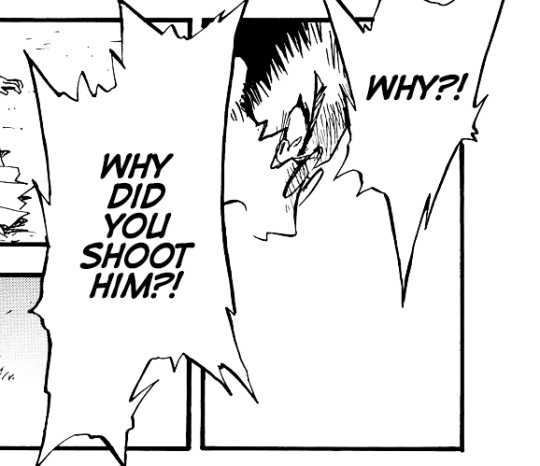

And it's these struggles with doubt, these moments of fear and cynicism overtaking faith that are so instrumental to the Christian perspective on salvation with its message of "You are flawed by nature, but you are loved beyond all comprehension nonetheless. Accept this love that it may save you and change you."
In Peter's case, although he is singled out multiple times for his failures (e.g. denying Jesus three times), he still holds a special place of prominence among Jesus' disciples. The 21st chapter of John features a conversation between Peter and the resurrected Jesus in which Peter affirms his love for Jesus three times (a reversal of the three times he denied Jesus), and Jesus responds by instructing Peter to care for his flock. After Jesus ascends to Heaven, Peter continues the work set out for him in building the early church until his eventual martyrdom, which, according to church tradition, occurs via upside-down crucifixion (see Caravaggio's rendition here). Interestingly, Wolfwood's martyrdom also involves lots of grievous bodily harm being dealt by crosses.

So the saint gets brought to death's doorstep, and that brings us to the infamous whiskey bottle

Others have already pointed out that "The Bride" likely refers to the Bride of Christ. This excerpt from the Catechism of the Catholic Church sums up the concept:
The unity of Christ and the Church, head and members of one Body, also implies the distinction of the two within a personal relationship. This aspect is often expressed by the image of bridegroom and bride. The theme of Christ as Bridegroom of the Church was prepared for by the prophets and announced by John the Baptist. The Lord referred to himself as the "bridegroom." The Apostle speaks of the whole Church and of each of the faithful, members of his Body, as a bride "betrothed" to Christ the Lord so as to become but one spirit with him. The Church is the spotless bride of the spotless Lamb.
Now Peter is of particular importance when talking about the Church as an institution, because in the Catholic tradition, Peter is believed to have been granted a distinguished position of authority as the very foundation of Jesus' church, and every Pope is considered a successor to Peter in their occupation of the Church's highest office.
So Peter = Pope = the head of the Bride of Christ. And if we take the reading of Wolfwood as a Peter analogue.... you see where we're going. The Bride of Christ has been sanctified through a powerful demonstration of sacrificial love and prepared for the wedding to the bridegroom, but right here Yasuhiro Nightow subverts the biblical metaphor to devastating effect. The wedding doesn't come to fruition, because Vash can't bring himself to step into the role of the heavenly bridegroom. In this moment, he just feels all too painfully human in his grief. Wolfwood ascends - celebrated across the sky by those he saved with his selfless love, but Vash descends - acting as an ordinary person mourning the loss of a loved one.

John 13:36 (NRSV) - Simon Peter said to him, “Lord, where are you going?” Jesus answered, “Where I am going, you cannot follow me now...."
#trigun#trigun maximum#trigun spoilers#trigun maximum spoilers#suicide mention#cw suicide mention#religion mention#christianity mention#trigunbookclub#the bookclub is a funeral procession this week#hugs going out to all of you#Guns&God meta
314 notes
·
View notes
Text
Keeping Them In Character...
It’s so interesting what you wrote about fixing Morpheus in the other post, @rriavian. I didn't want to take that one too off topic, hence I made a new one. I hope this is okay, because I love talking about these things, especially with other writers (everyone who reads this, writer or not, feel free to join in). I think I’ve said this somewhere else before (can’t remember where): If we keep him in character, there is no fixing him anyway.
But fanfic wouldn’t be fanfic without those attempts, and I totally get why. I want a different ending for him, too, alas, not in canon, even if that might sound contradictory. If they touched the ending in the show, I’d honestly be pissed off, but that’s my personal problem, and Neil can do with it whatever he wants—it’s his story. So I guess every fic that sees him alive at the end starts with the premise that we have to bend him into shape ever so slightly to make it possible. To me though, there’s a world of a difference between that and basically turning him into an OC with no resemblance to Morpheus bar name and looks (not saying that isn’t fair, it’s just not for me because if I wanted that, I’d write an OC, because that’s what he would be to me).
Morpheus is not weak. I even get why some people who mainly came to the Sandman via the show might be drawn into that direction initially, because we obviously see him very low at the beginning (I’m hesitant to say “at his lowest”). But after that, he pretty much stands in his power again (with ups and down obvs)—a power that burdens him for a multitude of reasons I don’t want to go into now, otherwise I’ll still sit here tomorrow. Wrote about it a million times though.
I think the fundamental misunderstanding is that anyone can fix him. So whoever we pair up with him can only walk with him, but he’ll need to take the steps himself, and more importantly: He would need a reason to want to do that. And yes, that’s exactly what my OC tells him at some point because she suffers, and she’s done with it despite understanding him on a deep level and accepting who and what he is—I think you're right when you say there’s a tendency in fandom to turn one half of the relationship into some kind of martyr and/or “void filler” to save someone. And the tricky thing about Morpheus is: He actually is looking for something to fill a void (which, to stress that again, doesn't mean he isn't powerful, so it's not to be mistaken for general weakness). And both in The Sandman and in real life, that never leads to anything good, but I can see why it's tempting to fall into that trap because his character lends itself particularly well to that type of trope (and I even play around with that in the first part of my fic, but it was also clear to me that it won't end there).
Now, this obviously isn’t real life, a story doesn’t necessarily have to lead to something good, but the most important question, to me, was always: What would make him take said steps himself, and above all: WANT to take them? Because truly, that’s where it all falls down in canon. And there is enough scope to explore that in quite a few different ways in my view.
For me, it was always clear that it can never be through wanting to change who or what he is on a fundamental level (that’s why I’m not into retired!Dream AUs, because they would fundamentally change who he is. Again, totally fine if people want to explore that, it's just not for me). I honestly believe he would bristle at that and recoil/retreat. Because it would just add to what is at the core of his very dilemma: If you want to change who and what he is, you basically admit you don’t truly understand him (not even those closest to him truly do), and that’s part of what breaks him (I say “part”, because there are more things in the mix than one can shake a stick at). And there is a clear difference between his being capable of change (we all know he is) and wanting to change him. They are not one and the same, but sometimes, fandom treats them as if they were.
Misunderstanding him, misinterpreting him is inherent to his being: He is Dream—forever out of reach, forever nebulous and unreal and weird and prone to be misunderstood/misinterpreted unless you stop trying and just trust the process/intuition--otherwise, it wouldn’t be (a) D/dream. It truly applies to all that he is. And you see what happens when he tries to rationalise things himself: Although he understands the boundaries between dreams and reality and keeps them in place, he is UNreality, and forever will be. And the way that gets ignored in fandom sometimes baffles me. Although it also doesn’t, because of course we’re human, and we want things to be real.
Back to those steps: I personally think he would never take them for himself because he doesn’t believe he has a story, and outright centring himself as the main character who is in charge of his own story is something he will always deny himself. But I think that’s also the way in? Because if he could perceive, at least initially, that he is part of someone else’s story and that they WANT him in that story (all that he is and isn’t, including all that is broken) with full acceptance but without complete self-denial. That they don’t try to change him, because they understand what the unreal is (and that requires a very particular type of person). That he would want to try because the love he has for them weighs heavier than how little he loves himself (was it you, @stellerssong who recently also wrote something along those lines, or am I making that up?). And that by doing that, he gradually learns to see himself through someone else's eyes. And once on that path, he would maybe, just maybe, start to understand that indeed he has a story of his own, and that he might be able if not to entirely rewrite, but at least to keep on writing it from this moment onward. Like everyone who believes (because believing something is possible means trusting in it despite it not being real, and trusting in the process rather than the result. He knows the power this wields over everyone but himself--not because it’s not true for him but because he won’t allow it. But maybe he could get himself to a stage where he allows it). That it's not about fixing anything really, but growing enough around what's broken and always will be, instead of trying to make it smaller or go away.
Yes, I do believe that might be possible, although there's much more to it than I've written here because it's incredibly complex, and it requires a lot of give and take, compromise and yes, pain along the way. And maybe it might not work at all (I never really 100% know where I end up when I write because my characters always, always make those decisions for me, and despite setting out with a plan, I almost never end up where I had initially intended to go. So if you asked me today, I couldn’t promise that I truly know where my current WiP is going and who will be where at its end, and it is very frustrating at times because I’m not always happy with what these guys are doing. At the moment, I'm truly not). But I believe he would at least try if someone who allowed for those dynamics were around. And that’s why I wrote an OC, because while I can see one or two canon characters that get fairly close to what I'd envision (and none of them are one half of the bigger ships), I ultimately couldn’t do it with them because there was something in their established dynamics that threw it off for me. Unless I would have pulled at least one of them (probably both) OOC to a degree that felt too much for me. But I'm always super interested in other people's process and line of thinking.
But yeah, that’s the precarious dance between trying to keep him in character while also working towards a different ending (that's obviously far less of a problem in one-shots). If that will ever work—who knows…
#sandman fanfic#the sandman#sandman#dream of the endless#morpheus#fanfic writing process#also somewhat of a >>>#sandman meta#trying to keep them in character#and it's hard
46 notes
·
View notes
Text
Anonymous asked: I have always appreciated your thoughtful views on the defence of the British monarchy, and as a university historian it’s reassuring to see someone using history to make invalubale insights to a controversial institution. I wonder what are your own thoughts on the passing of Prince Philip and what his legacy might be? Was he a gaffe prone racist and a liability to the Queen?
I know you kindly got in touch and identified yourself when you felt I was ignoring your question. I’m glad we cleared that up via DM. The truth is as I said and I’m saying here is that I had to let some time pass before I felt I could reasonably answer this question. Simply because - as you know as someone who teaches history at university - distance is good to make a sober appraisal rather than knee jerk in the moment judgements.
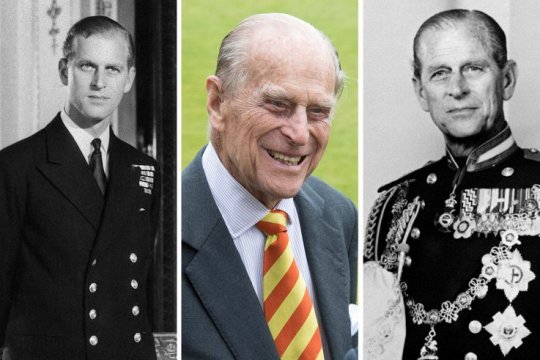
Contrary to what some might think I’m not really a fan girl when it comes to the royal family. I don’t religiously follow their every movement or utterance especially as I live in Paris and therefore I don’t really care about tabloid tittle tattle. I only get to hear of anything to do with the royal family when I speak to my parents or my great aunts and uncles for whom the subject is closer to their heart because of the services my family has rendered over past generations to the monarchy and the older (and dying) tight knit social circles they travel in.
Like Walter Bagehot, I’m more interested in the monarchy as an institution and its constitutional place within the historical, social, and political fabric of Britain and its continued delicate stabilising importance to that effect. It was Walter Bagehot, the great constitutional scholar and editor the Economist magazine, who said, “The mystic reverence, the religious allegiance, which are essential to a true monarchy, are imaginative sentiments that no legislature can manufacture in any people.” In his view, a politically-inactive monarchy served the best interests of the United Kingdom; by abstaining from direct rule, the monarch levitated above the political fray with dignity, and remained a respected personage to whom all subjects could look to as a guiding light.
Even as a staunch monarchist I freely confess that there has always been this odd nature of the relationship between hereditary monarchy and a society increasingly ambivalent about the institution. To paraphrase Bagehot again, there has been too much ‘daylight’ shone onto the ‘magic’ of the monarchy because we are obsessed with personalities as celebrities.
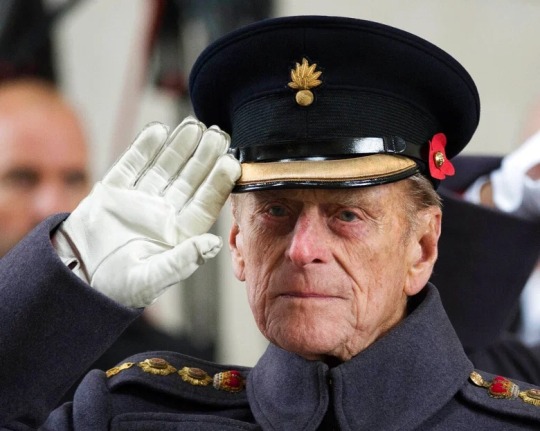
Having said that I did feel saddened by the passing of Prince Philip, the Duke of Edinburgh. After the Queen, he was my favourite royal. Anne, Princess Royal, would come next because she is very much like her father in temperament, humour, and character, so unlike her other brothers.
I have met the late Prince Philip when I was serving in the army in a few regimental meet-and-greet situations - which as you may know is pretty normal given that members of the royal family serve as honorary colonel-in-chiefs (patrons in effect) of all the British army regiments and corps.I also saw him at one or two social events such the annual charitable Royal Caledonian Ball (he’s an expert scottish reeler) and the Guards Polo Club where my older brothers played.
I’ll will freely confess that he was the one royal I could come close to identify with because his personal biography resonated with me a great deal.
Let’s be honest, the core Windsor family members, born to privilege, are conditioned and raised to be dull. Perhaps that’s a a tad harsh. I would prefer the term ‘anonymously self-effacing’, just another way of saying ‘for God’s sake don’t draw attention to yourself by saying or doing anything even mildly scandalous or political lest it invites public opprobrium and scrutiny’. The Queen magnificently succeeds in this but the others from Charles down just haven’t (with the exception of Princess Anne).
However, many people forget this obvious fact that it’s the incoming husbands and wives who marry into the Windsor family who are relied upon to bring colour and even liven things up a little. And long before Kate Middleton, Meghan Markle (very briefly), or Lady Diana Spencer, were the stars of ‘The Firm’- a phrase first coined by King George VI, Queen Elizabeth II's father who ruled from 1936 to 1952, who was thought to have wryly said, "British royals are 'not a family, we're a firm,” - it was Prince Philip who really livened things up and made the greater impact on the monarchy than any of them in the long term.
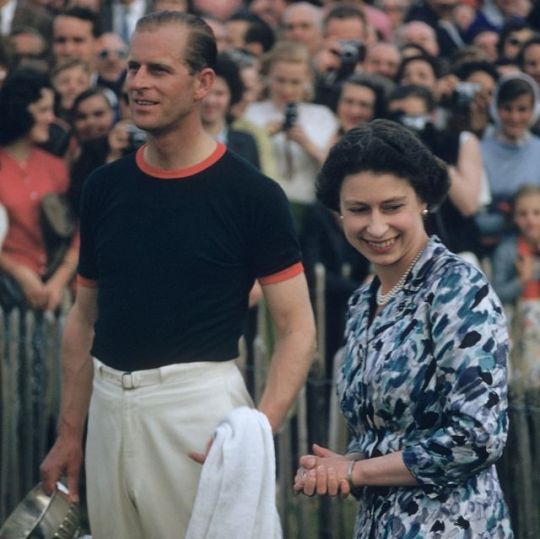
Prince Philip’s passing belied the truth of a far more complex individual: a destitute and penniless refugee Greek-Danish prince with a heart breaking backstory that could have been penned by any 19th Century novelist, and also eagle eyed reformer who tried to drag the royal family into the 20th century. At the core of the man - lost scion of a lost European royal dynasty, a courageous war veteran, and Queen’s consort - were values in which he attempted to transform and yet maintain much older inherited traditions and attitudes. Due to his great longevity, Philip’s life came to span a period of social change that is almost unprecedented, and almost no one in history viewed such a transformation from the front row.
Prince Philip would seem to represent in an acute form the best of the values of that era, which in many ways jar with today’s. He had fought with great courage in the war as a dashing young naval officer; he was regularly rude to foreigners, which was obviously a bonus to all Brits. He liked to ride and sail and shoot things. He was unsentimental almost to a comic degree, which felt reassuring at a time when a new-found emotional incontinence made many feel uncomfortable. Outrageous to some but endearing to others, he was the sort of man you’d want to go for a pint with, perhaps the ultimate compliment that an Englishman can pay to another Englishman. This has its own delicious irony as he wasn’t really an Englishman.
There are 4 takeways I would suggest in my appraisal of Prince Philip that stand out for me. So let me go through each one.
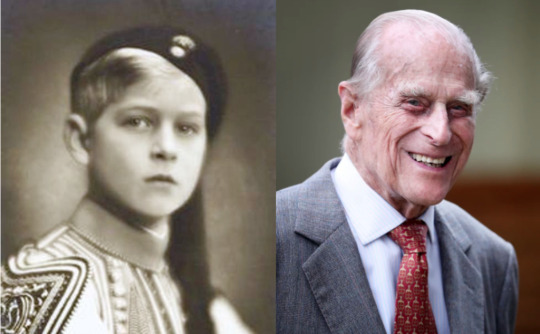
1. Prince Philip’s Internationalism
It may seem odd for me to say that Prince Philip wasn’t English but he wasn’t an Englishman in any real sense. He was a wretch of the world - stateless, homeless, and penniless. That the Prince of Nowhere became the British Monarchy’s figurehead was more than fitting for a great age of migration and transition in which the Royal Family survived and even flourished. That he was able to transform himself into the quintessential Englishman is testimony not just to his personal determination but also to the powerful cultural pull of Britishness.
He was born on a kitchen table in Corfu in June 1921. A year later in 1922, Philip, as the the great-great-grandson of Queen Victoria and nephew of Constantine I of Greece, was forced to flee with his family after the abdication of Constantine. He grew up outside Paris speaking French; ethnically he was mostly German although he considered himself Danish, his family originating from the Schleswig border region. He was in effect, despite his demeanour of Royal Navy officer briskness, a citizen of nowhere in an age of movement. From a very young age he was a stateless person, nationally homeless. Indeed, Philip was an outsider in a way that even Meghan Markle could never be; at his wedding in 1947, his three surviving sisters and two brothers-in-law were not permitted to attend because they were literally Britain’s enemies, having fought for the Germans. A third brother-in-law had even been in the SS, working directly for Himmler, but had been killed in the conflict.
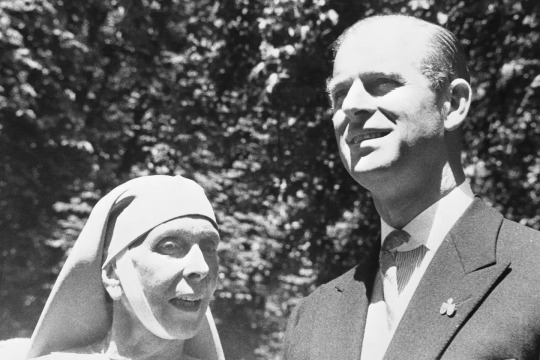
Even his religion was slightly exotic. He was Greek Orthodox until he converted to Anglicanism on marrying Elizabeth - what with his wife due to become supreme head of the Church and everything - but his ties with eastern Christianity remained. His great-aunts Princess Elisabeth of Hesse and by Rhine and Tsarina Alexandra are both martyrs of the Russian Orthodox Church, having been murdered by the Bolsheviks; Philip’s mother went on to become an Orthodox nun and a “Righteous Among the Nations” for saving a Jewish family during the Nazi occupation of Greece, spending much of her time in squalid poverty.
His parents were part of the largely German extended aristocracy who ruled almost all of Europe before it all came crashing down in 1918. When he died, aged 99, it marked a near-century in which all the great ideological struggles had been and gone; he had been born before the Soviet Union but outlived the Cold War, the War on Terror and - almost - Covid-19.
The world that Philip was born into was a far more violent and dangerous place than ours. In the year he was born, Irish rebels were still fighting Black and Tans; over the course of 12 months the Spanish and Japanese prime ministers were assassinated, there was a coup in Portugal and race riots in the United States. Germany was rocked by violence from the far-Left and far-Right, while in Italy a brutal new political movement, the Fascists, secured 30 seats in parliament, led by a trashy journalist called Benito Mussolini.
The worst violence, however, took place in Greece and Turkey. Following the defeat of the Ottoman Empire, what remained of Turkey was marked for permanent enfeeblement by the Allies. But much to everyone’s surprise the country’s force were roused by the brilliant officer Mustafa Kemal, who led the Turks to victory. Constantinople was lost to Christendom for good and thousands of years of Hellenic culture was put to the flames in Smyrna.
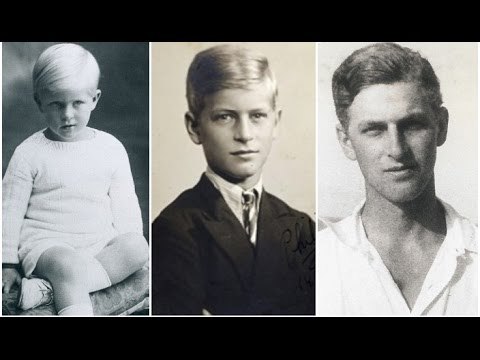
The Greek royal family, north German imports shipped in during the 19th century, bore much of the popular anger for this disaster. King Constantine fled to Italy, and his brother Andrew was arrested and only escaped execution through the intervention of his relative Britain’s George V. Andrew’s wife Alice, their four daughters and infant son Philip fled to France, completely impoverished but with the one possession that ensures that aristocrats are never truly poor: connections.
Philip had a traumatic childhood. He was forged by the turmoil of his first decade and then moulded by his schooling. His early years were spent wandering, as his place of birth ejected him, his family disintegrated and he moved from country to country, none of them ever his own. When he was just a year old, he and his family were scooped up by a British destroyer from his home on the Greek island of Corfu after his father had been condemned to death. They were deposited in Italy. One of Philip's first international journeys was spent crawling around on the floor of the train from an Italian port city, "the grubby child on the desolate train pulling out of the Brindisi night," as his older sister Sophia later described it.
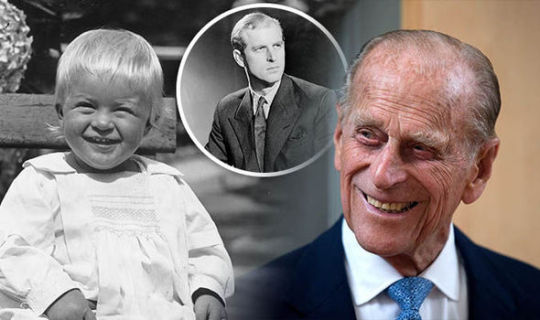
In Paris, he lived in a house borrowed from a relative; but it was not destined to become a home. In just one year, while he was at boarding school in Britain, the mental health of his mother, Princess Alice, deteriorated and she went into an asylum; his father, Prince Andrew, went off to Monte Carlo to live with his mistress. "I don't think anybody thinks I had a father," he once said. Andrew would die during the war. Philip went to Monte Carlo to pick up his father's possessions after the Germans had been driven from France; there was almost nothing left, just a couple of clothes brushes and some cuff-links.
Philip’s four sisters were all much older, and were soon all married to German aristocrats (the youngest would soon die in an aeroplane crash, along with her husband and children). His sisters became ever more embroiled in the German regime. In Scotland going to Gordonstoun boarding school, Philip went the opposite direction, becoming ever more British. Following the death of his sister Cecilie in a plane crash in 1937, the gulf widened. As the clouds of conflict gathered, the family simply disintegrated. With a flash of the flinty stoicism that many would later interpret, with no little justification, as self-reliance to the point of dispassion, the prince explained: “It’s simply what happened. The family broke up… I just had to get on with it. You do. One does.”
In the space of 10 years he had gone from a prince of Greece to a wandering, homeless, and virtually penniless boy with no-one to care for him. He got through it by making a joke of everything, and by being practical.
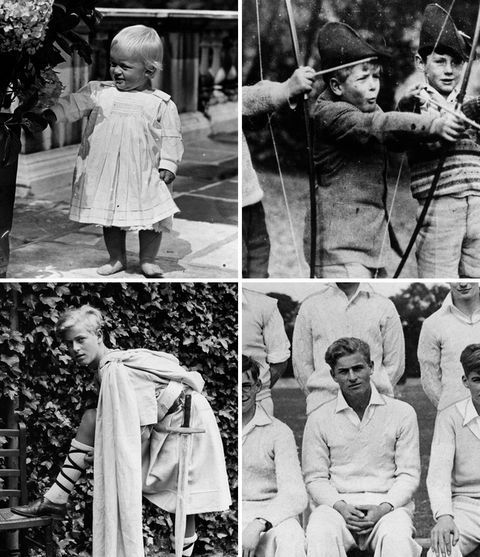
By the time he went to Gordonstoun, a private boarding school on the north coast of Scotland, Philip was tough, independent and able to fend for himself; he'd had to be. Gordonstoun would channel those traits into the school's distinct philosophy of community service, teamwork, responsibility and respect for the individual. And it sparked one of the great passions of Philip's life - his love of the sea. It was Gordonstoun that nurtured that love through the maturation of his character.
Philip adored the school as much as his son Charles would despise it. Not just because the stress it put on physical as well as mental excellence - he was a great sportsman. But because of its ethos, laid down by its founder Kurt Hahn, a Jewish exile from Nazi Germany.
Hahn first met Philip as a boy in Nazi Germany. Through a connection via one of his sister’s husbands, Philip, the poor, lonely boy was first sent off to a new school - in Nazi Germany. Which was as fun as can be imagined. Schloss Salem had been co-founded by stern educator called Kurt Hahn, a tough, discipline-obsessed conservative nationalist who saw civilisation in inexorable decline. But by this stage Hahn, persecuted for being Jewish in Nazi Germany, had fled to Britain, and Philip did not spend long at the school either, where pressure from the authorities was already making things difficult for the teachers. Philip laughed at the Nazis at first, because their salute was the same gesture the boys at his previous school had to make when they wanted to go to the toilet, but within a year he was back in England, a refugee once again.
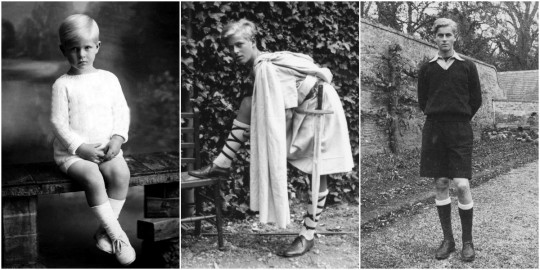
Philip happily attended Hahn’s new school, Gordonstoun, which the strict disciplinarian had set up in the Scottish Highlands. Inspired by Ancient Sparta, the boys (and then later girls) had to run around barefoot and endure cold showers, even in winter, the whole aim of which was to drive away the inevitable civilisational decay Hahn saw all around him. To 21st century ears it sounds like hell on earth, yet Philip enjoyed it, illustrating just what a totally alien world he came from.
That ethos became a significant, perhaps the significant, part of the way that Philip believed life should be lived. It shines through the speeches he gave later in his life. "The essence of freedom," he would say in Ghana in 1958, "is discipline and self-control." The comforts of the post-war era, he told the British Schools Exploring Society a year earlier, may be important "but it is much more important that the human spirit should not be stifled by easy living". And two years before that, he spoke to the boys of Ipswich School of the moral as well as material imperatives of life, with the "importance of the individual" as the "guiding principle of our society".
It was at Gordonstoun one of the great contradictions of Philip's fascinating life was born. The importance of the individual was what in Kurt Hahn's eyes differentiated Britain and liberal democracies from the kind of totalitarian dictatorship that he had fled. Philip put that centrality of the individual, and individual agency - the ability we have as humans to make our own moral and ethical decisions - at the heart of his philosophy.
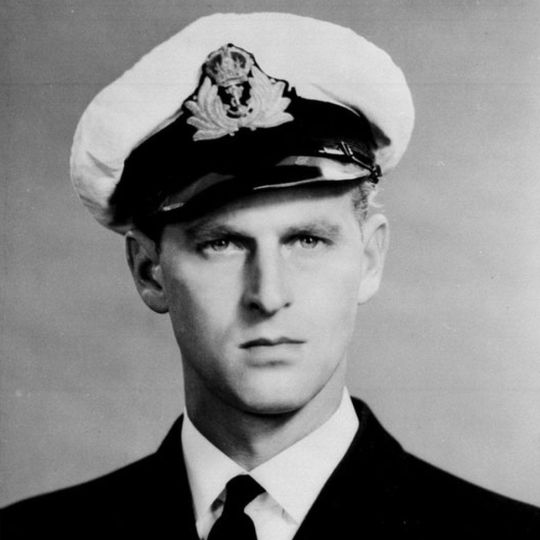
At Dartmouth Naval College in 1939, the two great passions of his life would collide. He had learned to sail at Gordonstoun; he would learn to lead at Dartmouth. And his driving desire to achieve, and to win, would shine through. Despite entering the college far later than most other cadets, he would graduate top of his class in 1940. In further training at Portsmouth, he gained the top grade in four out of five sections of the exam. He became one of the youngest first lieutenants in the Royal Navy.
The navy ran deep in his family. His maternal grandfather had been the First Sea Lord, the commander of the Royal Navy; his uncle, "Dickie" Mountbatten, had command of a destroyer while Philip was in training. In war, he showed not only bravery but guile. It was his natural milieu. "Prince Philip", wrote Gordonstoun headmaster Kurt Hahn admiringly, "will make his mark in any profession where he will have to prove himself in a trial of strength".
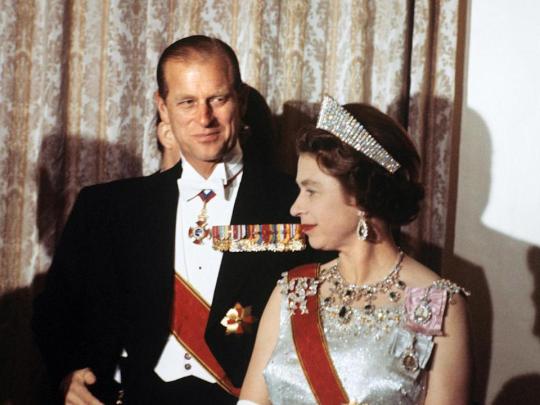
2. Prince Philip and the modernisation of the monarchy
In his own words, the process of defining what it meant to be a royal consort was one of “trial and error.” Speaking with BBC One’s Fiona Bruce in 2011, Philip explained, “There was no precedent. If I asked somebody, 'What do you expect me to do?' they all looked blank. They had no bloody idea, nobody had much idea.” So he forged for himself a role as a moderniser of the monarchy.
He could not have had much idea back in 1939. Back then in Dartmouth in 1939, as war became ever more certain, the navy was his destiny. He had fallen in love with the sea itself. "It is an extraordinary master or mistress," he would say later, "it has such extraordinary moods." But a rival to the sea would come.
When King George VI toured Dartmouth Naval College, accompanied by Philip's uncle, he brought with him his daughter, Princess Elizabeth. Philip was asked to look after her. He showed off to her, vaulting the nets of the tennis court in the grounds of the college. He was confident, outgoing, strikingly handsome, of royal blood if without a throne. She was beautiful, a little sheltered, a little serious, and very smitten by Philip.
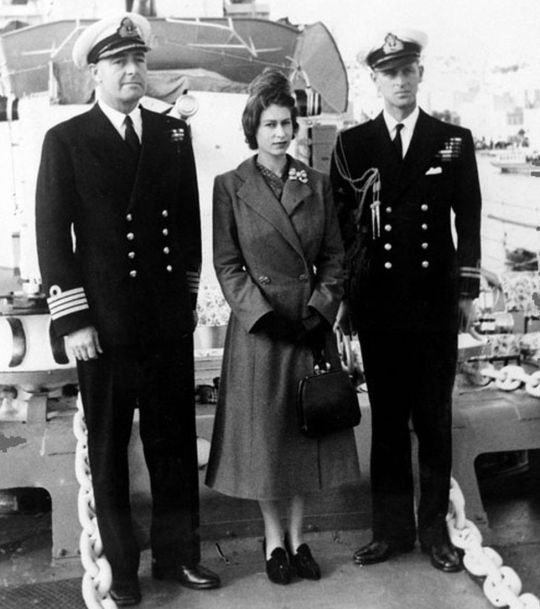
Did he know then that this was a collision of two great passions? That he could not have the sea and the beautiful young woman? For a time after their wedding in 1948, he did have both. As young newlyweds in Malta, he had what he so prized - command of a ship - and they had two idyllic years together. But the illness and then early death of King George VI brought it all to an end.
He knew what it meant, the moment he was told. Up in a lodge in Kenya, touring Africa, with Princess Elizabeth in place of the King, Philip was told first of the monarch's death in February 1952. He looked, said his equerry Mike Parker, "as if a ton of bricks had fallen on him". For some time he sat, slumped in a chair, a newspaper covering his head and chest. His princess had become the Queen. His world had changed irrevocably.
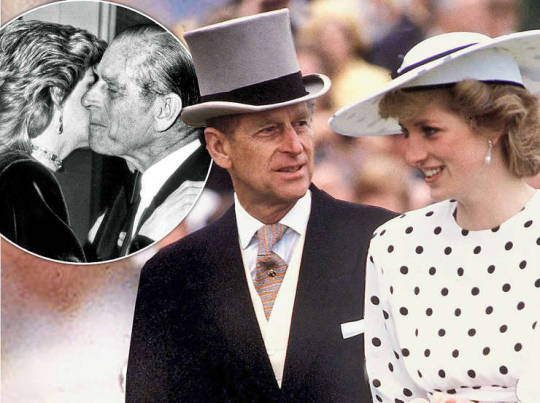
While the late Princess Diana was later to famously claim that there were “three people” in her marriage - herself, Prince Charles and Camilla - there were at least 55 million in Philip and Elizabeth’s. As Elizabeth dedicated her life to her people at Westminster Abbey at the Coronation on June 2, 1953, it sparked something of an existential crisis in Philip. Many people even after his death have never really understood this pivotal moment in Philip’s life. All his dreams of being a naval officer and a life at sea as well as being the primary provider and partner in his marriage were now sacrificed on the altar of duty and love.
With his career was now over, and he was now destined to become the spare part. Philip, very reasonably, asked that his future children and indeed his family be known by his name, Mountbatten. In effect he was asking to change the royal family’s name from the House of Windsor to the House of Mountbatten. But when Prime Minister Winston Churchill got wind of it as well as the more politically agile courtiers behind the Queen, a prolonged battle of wits ensued, and it was one Philip ultimately lost. It was only in 1957 that he accepted the title of “Prince.”
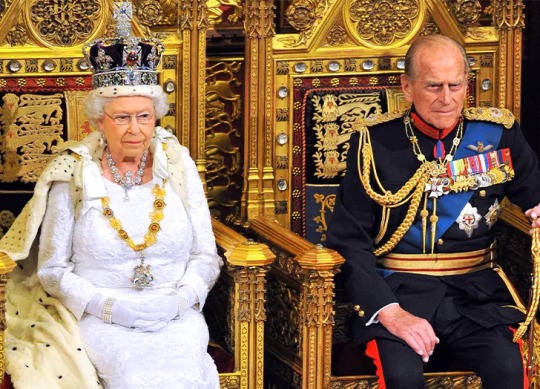
Even though he had almost lost everything dear to him and his role now undefined, he didn’t throw himself a pity party. He just got on with it. Philip tried to forge his own distinct role as second fiddle to the woman who had come to represent Great Britain. He designated himself the First Officer of the Good Ship Windsor. He set about dusting off some of the cobwebs off the throne and letting some daylight unto the workings of the monarchy by advocating reasonable amount of modernisation of the monarchy.
He had ideas about modernising the royal family that might be called “improving optics” today. But in his heart of hearts he didn’t want the monarchy to become a stuffy museum piece. He envisaged a less stuffy and more popular monarchy, relevant to the lives of ordinary people. Progress was always going to be incremental as he had sturdy opposition from the old guard who wanted to keep everything as it was, but nevertheless his stubborn energy resulted in significant changes.
When a commission chaired by Prince Philip proposed broadcasting the 1953 investiture ceremony that formally named Elizabeth II as queen on live television, Prime Minister Winston Churchill reacted with outright horror, declaring, “It would be unfitting that the whole ceremony should be presented as if it were a theatrical performance.” Though the queen had initially voiced similar concerns, she eventually came around to the idea, allowing the broadcast of all but one segment of the coronation. Ultimately, according to the BBC, more than 20 million people tuned in to the televised ceremony - a credit to the foresight of Philip.
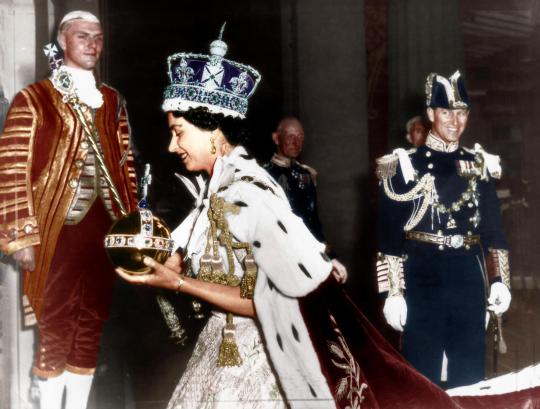
Elizabeth’s coronation marked a watershed moment for a monarchy that has, historically, been very hands off, old-fashioned and slightly invisible. Over the following years, the royals continued to embrace television as a way of connecting with the British people: In 1957, the queen delivered her annual Christmas address during a live broadcast. Again, this was Philip’s doing when he cajoled the Queen to televise her message live. He even helped her in how to use the teleprompter to get over her nerves and be herself on screen.
Four years later, in 1961, Philip became the first family member to sit for a television interview. It is hard for us to imagine now but back then it was huge. For many it was a significant step in modernising the monarchy.
Though not everything went to plan. Toward the end of the decade, the Windsors even invited cameras into their home. A 1969 BBC fly-on-the-wall documentary, instigated by Philip to show life behind the scenes, turned into an unmitigated disaster: “The Windsors” revealed the royals to be a fairly normal, if very rich, British upper-class family who liked barbecues, ice cream, watching television and bickering. The mystery of royalty took a hit below the waterline from their own torpedo, a self-inflicted wound from which they took a long time to recover. Shown once, the documentary was never aired again. But it had an irreversible effect, and not just by revealing the royals to be ordinary. By allowing the cameras in, Philip opened the lid to the prying eyes of the paparazzi who could legitimately argue that since the Royals themselves had sanctioned exposure, anything went. From then on, minor members of the House of Windsor were picked off by the press, like helpless tethered animals on a hunting safari.
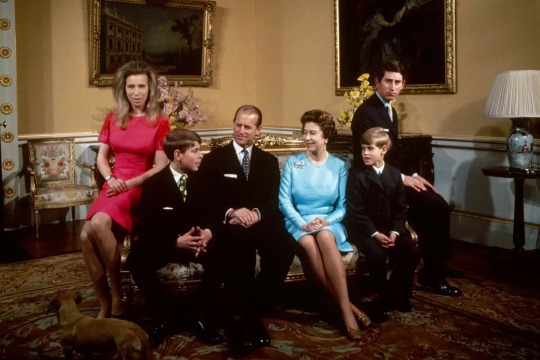
Prince Philip also took steps to reorganise and renovate the royal estates in Sandringham and Balmoral such as intercoms, modern dish washers, generally sought to make the royal household and the monarchy less stuffy, not to have so much formality everywhere.
Philip helped modernised the monarchy in other ways to acknowledge that the monarchy could be responsive to changes in society. It was Prince Philip - much to the chagrin of the haughty Princess Margaret and other stuffy old courtiers - who persuaded the Queen to host informal lunches and garden parties designed to engage a broader swath of the British public. Conversely, Prince Philip heartily encouraged the Queen (she was all for it apparently but was still finding her feet as a new monarch) to end the traditional practice of presenting debutantes from aristocratic backgrounds at court in 1952. For Philip and others it felt antiquated and out of touch with society. I know in speaking to my grandmother and others in her generation the decision was received with disbelief at how this foreign penniless upstart could come and stomp on the dreams of mothers left to clutch their pearls at the prospect there would be no shop window for their daughter to attract a suitable gentleman for marriage. One of my great aunts was over the moon happy that she never would have to go through what she saw as a very silly ceremony because she preferred her muddy wellies to high heels.
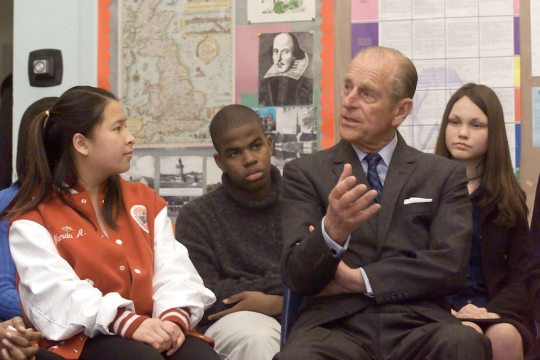
A former senior member of the royal household, who spent several years working as one of Prince Philip’s aides, and an old family friend, once told us around a family dinner table that the Duke of Edinburgh was undoubtedly given a sense of permanence by his marriage into the Royal Family that was missing from earlier years. But the royal aide would hastily add that Prince Philip, of course, would never see it that way.
Prince Philip’s attitude was to never brood on things or seek excuses. And he did indeed get on with the job in his own way - there should be no doubt that when it came to building and strengthening the Royal Family it was a partnership of equals with the Queen. Indeed contrary to Netflix’s hugely popular series ‘The Crown’ and its depiction of the royal marriage with Philip’s resentment at playing second fiddle, the prince recognised that his “first duty was to serve the Queen in the best way I could,” as he told ITV in 2011. Though this role was somewhat ill-suited to his dynamic, driven, and outspoken temperament, Philip performed it with utter devotion.
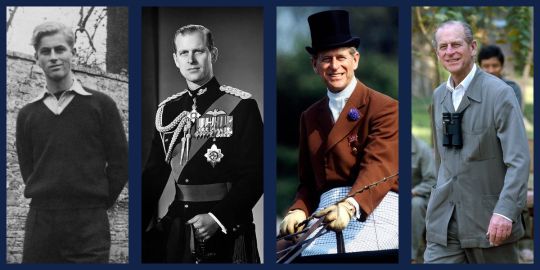
3. Prince Philip’s legacy
One could argue rightly that modernising the monarchy was his lasting legacy achievement. But he also tried to modernise a spent and exhausted Britain as it emerged from a ruinous war. When peace came, and with it eventual economic recovery, Philip would throw himself into the construction of a better Britain, urging the country to adopt scientific methods, embracing the ideas of industrial design, planning, education and training. A decade before Harold Wilson talked of the "white heat of the technological revolution", Philip was urging modernity on the nation in speeches and interviews. He was on top of his reading of the latest scientific breakthroughs and well read in break out innovations.
This interest in modernisation was only matched by his love for nature. As the country and the world became richer and consumed ever more, Philip warned of the impact on the environment, well before it was even vaguely fashionable. As president of the World Wildlife Fund (WWF) in the UK for more than 20 years from 1961, he was one of the first high-profile advocates of the cause of conservation and biological diversity at a time when it was considered the preserve of an eccentric few.
For a generation of school children in Britain and the Commonwealth though, his most lasting legacy and achievement will be the Duke of Edinburgh Awards (DofE). He set up the Duke of Edinburgh award, a scheme aimed at getting young people out into nature in search of adventure or be of service to their communities. It was a scheme that could match the legacy of Baden Powell’s scouts movement.
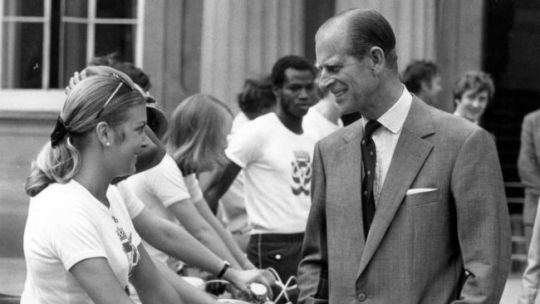
When Prince Philip first outlined his idea of a scheme to harness the values of his education at Gordonstoun by bringing character-building outdoor pursuits to the many rather than the fee-paying few, he received short shrift from the government of the day. The then minister of education, Sir David Eccles responded to the Duke’s proposal by saying: “I hear you’re trying to invent something like the Hitler Youth.” Undeterred he pushed on until it came to fruition.
I’m so glad that he did. I remember how proud I was for getting my DofE Awards while I was at boarding school. With the support of great mentors I managed to achieve my goals: collecting second-hand English books for a literacy programme for orphaned street children in Delhi, India with a close Indian school friend and her family; and completing a 350 mile hike following St. Olav’s Pilgrimmage Trail from Selånger, on the east coast of Sweden, and ending at Nidaros Cathedral in Trondheim, on the west coast of Norway.
It continues to be an enduring legacy. Since its launch in 1956, the Duke of Edinburgh awards have been bestowed upon some 2.5 million youngsters in Britain and some eight million worldwide. For a man who once referred to himself as a “Greek princeling of no consequence”, his pioneering tutelage of these two organisations (alongside some 778 other organisations of which he was either president or a patron) would be sufficient legacy for most.
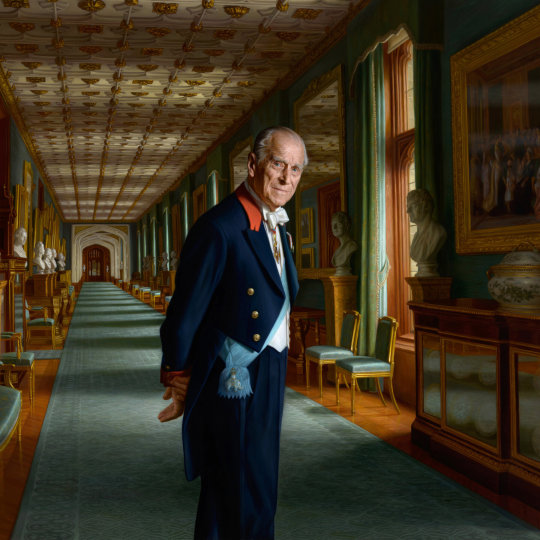
4. Prince Philip’s character
It may surprise some but what I liked most about Prince Philip was the very thing that helped him achieve so much and leave a lasting legacy: his character.
It is unhelpful to the caricature of Prince Philip as an unwavering but pugnacious consort whose chief talent was a dizzying facility in off-colour one-liners that he was widely read and probably the cleverest member of his family.
His private library at Windsor consists of 11,000 tomes, among them 200 volumes of poetry. He was a fan of Jung, TS Eliot, Shakespeare and the cookery writer Elizabeth David. As well as a lifelong fascination with science, technology and sport, he spoke fairly fluent French, painted and wrote a well received book on birds. It’s maddening to think how many underestimated his genuine intellect and how cultured he was behind the crusty exterior.
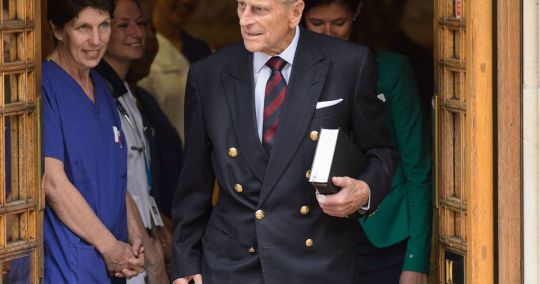
He didn’t have an entourage to fawn around him. He was the first to own a computer at Buckingham Palace. He answered his own phone and wrote and responded to his own correspondence. By force of character he fought the old guard courtiers at every turn to modernise the monarchy against their stubborn resistance.
Prince Philip was never given to self-analysis or reflection on the past. Various television interviewers tried without success to coerce him in to commenting on his legacy.But once when his guard was down he asked on the occasion of his 90th birthday what he was more proud of, he replied with characteristic bluntness: “I couldn’t care less. Who cares what I think about it, I mean it’s ridiculous.”
All of which neatly raises the profound aversion to fuss and the proclivity for tetchiness often expressed in withering put-downs that, for better or worse, will be the reflex memory for many of the Duke of Edinburgh. If character is a two edged sword so what of his gaffes?
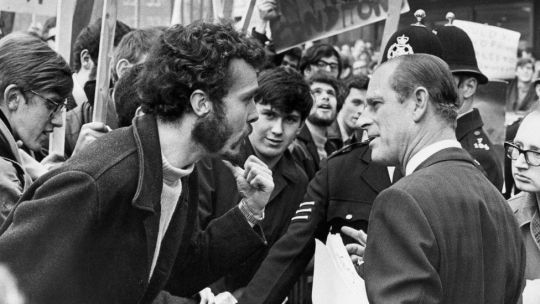
There is no doubt his cult status partly owed to his so-called legendary gaffes, of which there are enough to fill a book (indeed there is a book). But he was no racist. None of the Commonwealth people or foreign heads of state ever said this about him. Only leftist republicans with too much Twitter time on their hands screamed such a ridiculous accusation. They’re just overly sensitive snowflakes and being devoid of any humour they’re easily triggered.
There was the time that Philip accepted a gift from a local in Kenya, telling her she was a kind woman, and then adding: “You are a woman, aren’t you?” Or the occasion he remarked “You managed not to get eaten, then?” to a student trekking in Papua New Guinea. Then there was his World Wildlife Fund speech in 1986, when he said: “If it has got four legs and it is not a chair, if it has got two wings and it flies but is not an aeroplane, and if it swims and it is not a submarine, the Cantonese will eat it.” Well, he wasn’t wrong.
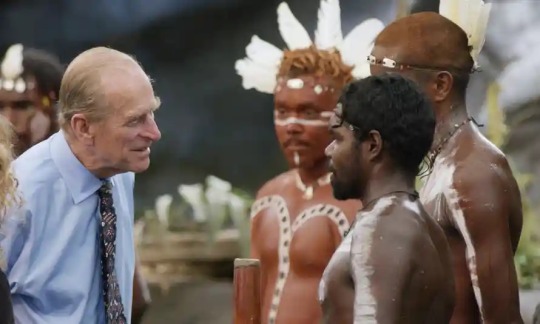
Philip quickly developed a reputation for what he once defined, to the General Dental Council, as “dentopedology – the science of opening your mouth and putting your foot in it”. Clearly he could laugh at himself as he often did as an ice breaker to put others at ease.
His remarking to the president of Nigeria, who was wearing national dress, “You look like you’re ready for bed”, or advising British students in China not to stay too long or they would end up with “slitty eyes”, is probably best written off as ill-judged humour. Telling a photographer to “just take the fucking picture” or declaring “this thing open, whatever it is”, were expressions of exasperation or weariness with which anyone might sympathise.
Above all, he was also capable of genuine if earthy wit, saying of his horse-loving daughter Princess Anne: “If it doesn’t fart or eat hay she isn’t interested.” Many people might have thought it but few dared say it. If Prince Philip’s famous gaffes provoked as much amusement as anger, it was precisely because they seem to give voice to the bewilderment and pent-up frustrations with which many people viewed the ever-changing modern world.
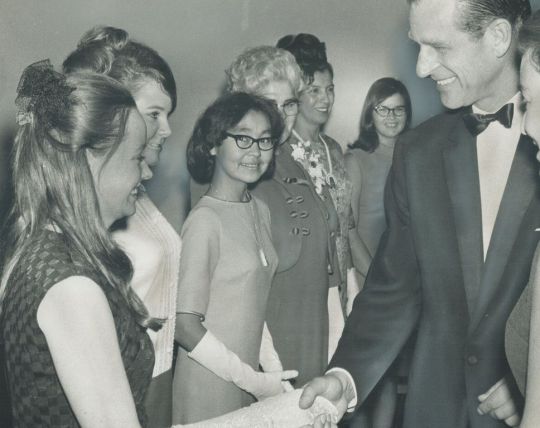
A former royal protection officer recounts how while on night duty guarding a visiting Queen and consort, he engaged in conversation with colleagues on a passing patrol. It was 2am and the officer had understood the royal couple to be staying elsewhere in the building until a window above his head was abruptly slammed open and an irate Prince Philip stuck his head out of the window to shout: “Would you fuck off!” Without another word, he then shut the window.
The Duke at least recognised from an early age that he was possessed of an abruptness that could all too easily cross the line from the refreshingly salty to crass effrontery.
One of his most perceptive biographers, Philip Eade, recounted how at the age of 21 the prince wrote a letter to a relation whose son had recently been killed in combat. He wrote: “I know you will never think much of me. I am rude and unmannerly and I say things out of turn which I realise afterwards must have hurt someone. Then I am filled with remorse and I try to put matters right.”
In the case of the royal protection officer, the Duke turned up in the room used by the police officers when off duty and said: “Terribly sorry about last night, wasn’t quite feeling myself.”
Aides have also ventured to explain away some of their employer’s more outlandish remarks - from asking Cayman islanders “You are descended from pirates aren’t you?” to enquiring of a female fashion writer if she was wearing mink knickers - as the price of his instinctive desire to prick the pomposity of his presence with a quip to put others at ease.
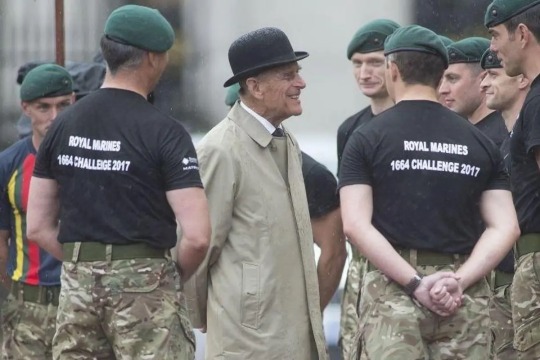
Indeed many people forget that his ‘gaffes’ were more typical of the clubbish humour of the British officer class – which of course would be less appreciated, sometimes even offensive, to other ears. It’s why he could relate so well to veterans who enjoyed his bonhomie company immensely.
But behind the irascibility, some have argued there also lay a darker nature, unpleasantly distilled in his flinty attitude to his eldest son. One anecdote tells of how, in the aftermath of the murder of the Duke’s uncle and surrogate father, Lord Mountbatten, Philip lectured his son, who was also extremely fond of his “honorary grandfather”, that he was not to succumb to self-pity. Charles left the room in tears and when his father was asked why he had spoken to his son with so little compassion, the Duke replied: “Because if there’s any crying to be done I want it to happen within this house, in front of his family, not in public. He must be toughened up, right now.”
But here I would say that Prince Philip’s intentions were almost always sincere and in no way cruel. He has always tried to protect his family - even from their own worst selves or from those outside the family ‘firm’ who may not have their best interest at heart.
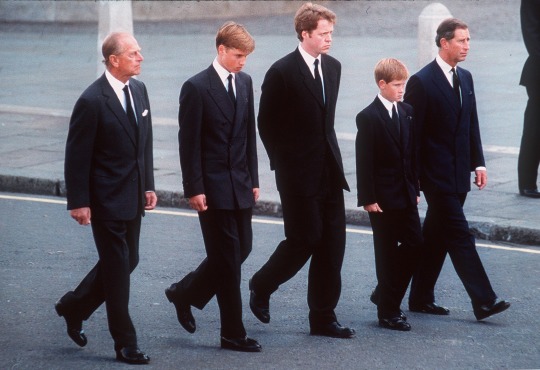
In 1937, a 16-year-old Prince Philip had walked behind his elder sister Cecile’s coffin after she was killed in a plane crash while heavily pregnant. The remains of newly-born infant found in the wreckage suggested the aircraft had perished as the pilot sought to make an emergency landing in fog as the mother entered childbirth. It was an excruciating taste of tragedy which would one day manifest itself in a very princely form of kindness that was deep down that defined Philip’s character.
When about 60 years later Prime Minister Tony Blair’s spin doctors in Downing Street tried to strong arm the Queen and the royal household over the the arrangements for the late Prince Diana’s funeral, it was Philip who stepped in front to protect his family. The Prime Minister and his media savvy spin doctors wanted the two young princes, William and Harry, to walk behind the coffin.
The infamous exchange was on the phone during a conference call between London and Balmoral, and the emotional Philip was reportedly backed by the Queen. The call was witnessed by Anji Hunter, who worked for Mr Blair. She said how surprised she was to hear Prince Philip’s emotion. ‘It’s about the boys,” he cried, “They’ve lost their mother”. Hunter thought to herself, “My God, there’s a bit of suffering going on up there”.’
Sky TV political commentator Adam Boulton (Anji Hunter’s husband) would write in his book Tony’s Ten Years: ‘The Queen relished the moment when Philip bellowed over the speakerphone from Balmoral, “Fuck off. We are talking about two boys who have just lost their mother”. Boulton goes on to say that Philip: ‘…was trying to remind everyone that human feelings were involved. No 10 were trying to help the Royals present things in the best way, but may have seemed insensitive.’
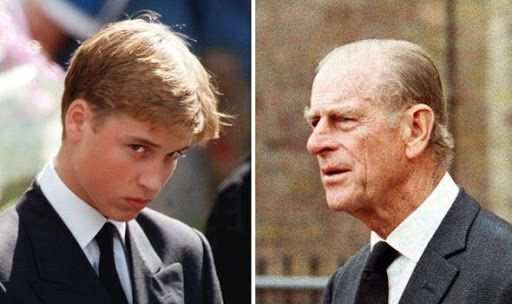
In the end the politicians almost didn’t get their way. Prince Philip stepped in to counsel his grandson, Prince William, after he had expressed a reluctance to follow his mother’s coffin after her death in Paris. Philip told the grieving child: “If you don’t walk, I think you’ll regret it later. If I walk, will you walk with me?”
It’s no wonder he was sought as a counsellor by other senior royals and especially close to his grandchildren, for whom he was a firm favourite. His relationship with Harry was said to have become strained, however, following the younger Prince’s decision to reject his royal inheritance for a life away from the public eye in America with his new American wife, Meghan Markle. For Prince Philip I am quite sure it went against all the elder Prince had lived his life by - self-sacrifice for the greater cause of royalty.
This is the key to Philip’s character and in understanding the man. The ingrained habits of a lifetime of duty and service in one form or another were never far away.
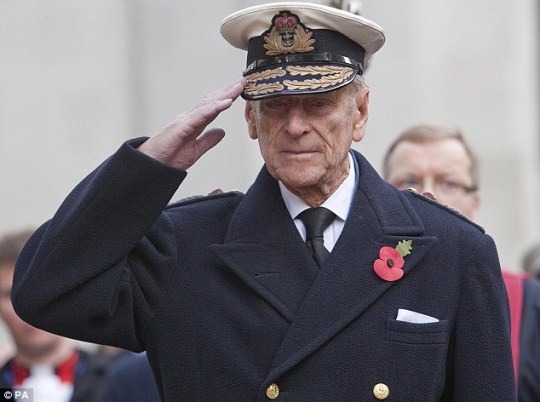
In conclusion then....
After more time passes I am sure historians will make a richer reassessment of Prince Philip’s life and legacy. Because Prince Philip was an extraordinary man who lived an extraordinary life; a life intimately connected with the sweeping changes of our turbulent 20th Century, a life of fascinating contrast and contradiction, of service and some degree of solitude. A complex, clever, eternally restless man that not even the suffocating protocols of royalty and tradition could bind him.
Although he fully accepted the limitations of public royal service, he did not see this as any reason for passive self-abnegation, but actively, if ironically, identified with his potentially undignified role. It is this bold and humorous embrace of fated restriction which many now find irksome: one is no longer supposed to mix public performance with private self-expression in quite this manner.
Yet such a mix is authentically Socratic: the proof that the doing of one’s duty can also be the way of self-fulfilment. The Duke’s sacrifice of career to romance and ceremonial office is all the more impressive for his not hiding some annoyance. The combination of his restless temperament and his deeply felt devotion to duty found fruitful expression; for instance, in the work of Saint George’s House Windsor - a centre and retreat that he created with Revd. Robin Woods - in exploring religious faith, philosophy, and contemporary issues.
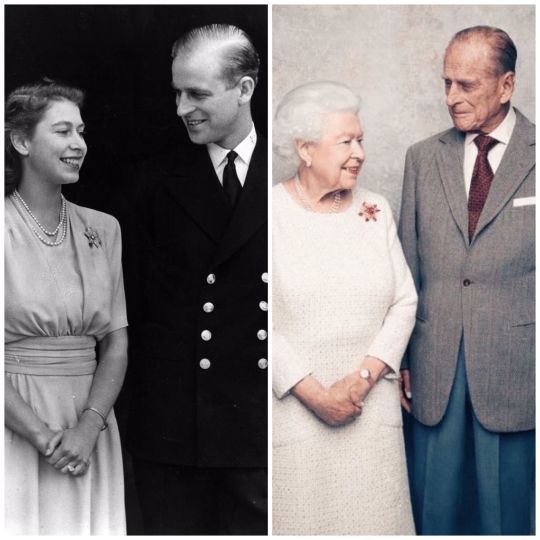
Above all he developed a way to be male that was both traditional and modern. He served one woman with chivalric devotion as his main task in life while fulfilling his public engagements in a bold and active spirit. He eventually embraced the opportunity to read and contemplate more. And yet, he remained loyal to the imperatives of his mentor Kurt Hahn in seeking to combine imagination with action and religious devotion with practical involvement.
Prince Philip took more pride in the roles he had accidentally inherited than in the personal gifts which he was never able fully to develop. He put companionship before self-realisation and acceptance of a sacred symbolic destiny before the mere influencing of events. In all these respects he implicitly rebuked our prevailing meritocracy which over-values officially accredited attainment, and our prevailing narcissism which valorises the assertion of discrete identities.
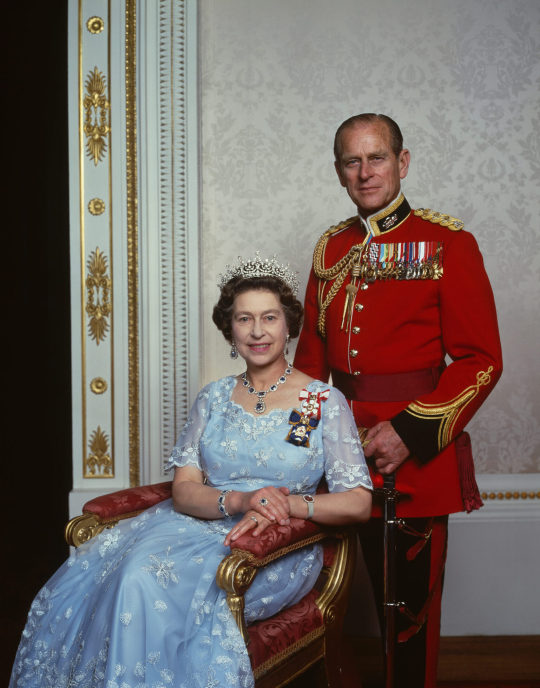
Prince Philip was Britain’s longest-serving consort. He was steadfast, duty driven, and a necessary adjunct to the continuity and stability of the Queen and the monarchy. Of all the institutions that have lost the faith of the British public in this period - the Church, Parliament, the media, the police - the Monarchy itself has surprisingly done better than most at surviving, curiously well-adapted to a period of societal change and moral anarchy. The House of Hanover and later Saxe-Coburg and Gotha (changed to Windsor), since their arrival in this country in 1714, have been noted above all for their ability to adapt. And just as they survived the Victorian age by transforming themselves into the bourgeoise, domestic ideal, so they have survived the new Elizabethan era (Harry-Meghan saga is just a passing blip like the Edward-Wallis Simpson saga of the 1930s).
There was once a time when the Royal’s German blood was a punchline for crude and xenophobic satirists. Now it is the royals who are deeply British while the country itself is increasingly cosmopolitan and globalised. British society has seen a greater demographic change than the preceding four or five thousand years combined, the second Elizabethan age has been characterised more than anything by a transformational movement of people. Prince Philip, the Greek-born, Danish-German persecuted and destitute wanderer who came to become one of the Greatest Britons of the past century, perhaps epitomised that era better than anyone else. And he got through it by making a joke of everything, and by being practical.
I hope I don’t exaggerate when I say that in our troubled times over identity, and our place and purpose in the world, we need to heed his selfless example more than ever.
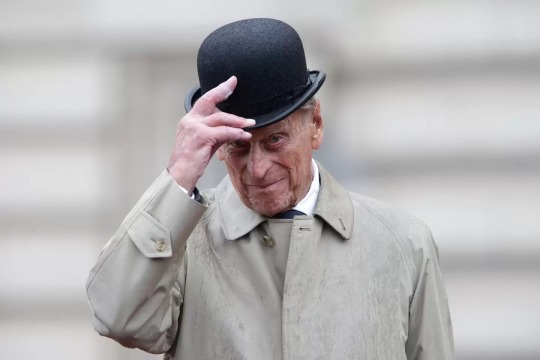
As Heraclitus wisely said, Ήθος ανθρώπω δαίμων (Character is destiny.)
RIP Prince Philip. You were my prince. God damn you, I miss you already.
Thanks for your question.
#question#ask#prince philip#duke of edinburgh#queen elizabeth II#the queen of spades#monarchy#britain#british#royalty#politics#history#culture#europe#crown#icon#great briton#society
284 notes
·
View notes
Note
uno reverse star trek aos bc im curious
i love aos with my whole entire heart (to the point that i’ve unfollowed otherwise good trek blogs bc i got tired of seeing so many posts ragging on aos rip). aos got me into trek and i’ll be thankful for it for that forever
like first off the casting is fucking perfect. you can tell all of them love star trek so much. like pegg wrote beyond (which was the most “trek like” of the aos movies imo) and put so many cute little nudges towards the originals in there that i loved. quinto and nimoy were good friends and it was obvious quinto just wanted to do right by nimoy’s legacy. any time i see karl urban as bones i think about that story of how nimoy got teary eyed watching him bc of how much he acted like de. john cho is a badass sulu, anton was a major part of the heart and soul in those movies, and i love just how dedicated zoe saldana is to showing off uhura’s incredible competency.
i haven’t mentioned pine yet, for good reason, and that is because, despite how a lot of trekkies i know feel, i love aos kirk. i love just about everything about who he is as a character. i’d even venture to say i love him more than tos kirk (though i love tos kirk more than life too). pine pours so much life into him as a character. here’s a kirk that’s every bit of the genius he is in tos, but he’s at his youngest, most reckless, most cocky. he’s a twenty something who’s spent his entire life being left behind (by his hero father who follows him everywhere he goes, by his mother who is reminded of her lost love every time she sees him, by his piece of shit uncle, and perhaps most importantly, by sam. we’ll come back to sam later.) he decides it’s easier to throw up a facade, a cocky devil may care attitude supplemented by his pretty blue eyes and his frankly ridiculous aptitude scores, and spends his life pissing people off from the get go so he never has to feel the hurt when they leave.
which brings me back to sam kirk. (this bit gets negative @ jj specifically despite the ask prompt, fair warning.) as both a trekkie and a star wars fan, there are many things i will never forgive jj abrams for, but at the top of that list is deleting the scene where sam leaves jim behind. because that, in my i’ve-spent-way-too-much-time-thinking-about-jim-kirk opinion, is what defines jim, even more so than the dead dad who died on his birthday. that’s the final straw. his big brother, the one who was supposed to be with him no matter what, tells him he’s leaving bc jim’ll be fine. he’s a goody two shoes with perfect grades who always follows orders, but sam’s a kirk. so he can’t stay where his uncle is. up until this point, jim’s done what he’s supposed to do. he listens, he does his chores, he minds, he does well in school. he keeps quiet as much as he can. until his brother leaves and so he decides to steal a car and drive it off a cliff. he decides to become what sam says is a kirk, and fuck the consequences. being good and mindful got him a family who didn’t want him, so he’s gonna be a delinquent instead, bc then at least he doesn’t have to worry about getting left behind again.
and despite whatever womanizer image jj was going for, chris pine got /this/. you can see it written all over his face: the wonder at looking up at the enterprise in the iowa shipyard, the dedication to beat a test to prove people didn’t always have to die, the way he looks so shocked when spock prime treats him with such kindness, tells him how much of a great man he is and will be, that he was such a fantastic captain. even in stid (which isn’t my favorite by a long shot) you can see kirk struggling with his own self worth, see how much he feels like he was just living up to everyone else’s shoddy expectations when he lost his captaincy. see how much he feels like martyring himself is the only way even though he doesn’t want to die, bc if he doesn’t someone else would have to. and his crew means more to him than he does.
most importantly though, we get to see kirk work through it. he relies on bones, to the point that uhura is basically holding him up when it looks like he might die via missile explosion in stid and to the point he trusts bones to just be there on his birthday in beyond. he openly admits to spock in beyond that he wouldn’t know what to do without him (despite never letting himself need anyone at all since sam). he jokes around with uhura, saves sulu. trusts chekov to take care of things when scotty quits. assures scotty he’ll take the blame if things go wrong in beyond. he is close and in sync enough with his crew by beyond that his security on the bridge know exactly when to hand him a phaser when he rushes off. he’s dropped his cocksure attitude and grown into the captain he was always born to be, that spock prime told him he was. for the first time since he was like nine years old, he’s let people in.
and that, more than anything, is why i love aos so much. the cast is wonderful and the storylines are (mostly) entertaining to watch, but more than anything, aos jim’s journey is just so relatable to watch. it’s heartbreaking in its infancy and so incredibly satisfying by its end. tos kirk seemed louder than life to me always, which is maybe why i gravitate to aos jim more. he’s got so much in him that he has to find a way to let out. and he does
#i am so sorry i did not mean for this to just be a ridiculously long meta around jim kirk#i promise i love aos for other reasons i just. kirk.#thanks for the ask teddy!!!!#ask#star trek#alternate original series#jim kirk#long post#aos#star trek aos#mak rants
106 notes
·
View notes
Text
This is similar to one of my previous posts, but it has some new elements so I’m copying it over. This is the second of my posts on the core themes of each book in The Stormlight Archive. The first, on Rhythm of War, is here.
This post contains Rhythm of War spoilers.
Stormlight Archive Themes - Redemption in Oathbringer
If I pretend I didn’t do those things, it means I can’t have grown to become someone else. It cannot be a journey if it doesn’t have a beginning.
Redemption is a theme running through the entirety of the Stormlight Archive, but it is strongest and most central in Oathbringer- not only in Dalinar’s character arc but also in Szeth’s, in the start of Venli’s redemption arc, and - in a negative manner - in the arcs of Moash and Amaram. Oathbringer also, to my mind, encapsulates the philosophy of the entire series regarding redemption in one scene of striking symbolism.
The idea of redemption is Oathbringer is often paired, in analyses, with that of accepting responsibility for your actions - indeed, I almost titled this essay “redemption and responsibility.” And that is absolutely a necessary element that distinguishes the successful redemption arcs from the failed ones. But in thinking about it I realized that I had things in the wrong order - for both Dalinar and Venli, mercy is is what enables them to take responsibility, not the result of them doing so. They are both able to grapple with their actions and take responsibility for them, and this is what enables their redemption arcs, but in both cases it is a consequence of them already having been shown grace before they exhibited any change in behaviour.
When Dalinar visits the Nightwatcher, he has been a brutal conqueror for 23 years and then a drunk for the last five and a half. His sole redeeming characteristic is that he knows in his soul what he needs and it isn’t power or strength or to return to the man he was before Evi’s death, or the ability to blame someone else for his deed. He knows he’s guilty, and he begs for forgiveness. And what Cultivation gives him is not precisely that, but the chance to become someone better. It is crucial to remember that, while he forgets his actions and forgets Evi, that is not what asked for; his goal was not to be free of the knowledge of what he did, but the chance for it not to be the end of his story; the chance to be something other than the monster he knew he was.
When he rejects Odium’s offer to take his pain, on the battlefield outside Thaylen City, it is without any expectation of forgiveness or of freedom from his crushing guilt. Evi’s forgiveness is not something he has remotely earned or deserved, by that action or any of his actions; it is pure grace. When we talk about redemption arcs, “deserving” has nothing to do with it. Dalinar didn’t remotely deserve his. He knows this, and it’s why he’s ready to hold out the possibility of redemption to Amaram and, in ROW, to Taravangian - because if Dalinar can be redeemed, then the door is not closed to anyone. The difference is not in worthiness of redemption, but willingness to accept it.
And this is also seen in the beginning of Venli’s redemption arc. Timbre finds her and stays with her long before she’s demonstrated any positive qualities that would subgest fitness for being a Radiant. In the context of ROW, knowing that Eshonai bonded Timbre just before her death, I believe it’s because Eshonai asked her spren to look out for her sister. As with Cultivation’s gift to Dalinar, it is Venli’s bond with Timbre that enables her to become a better person, to make herself accountable to her people for her actions, to begin taking personal risks to do what is right.
Something similar is also present in Elhokar’s arc. Kaladin saves him before he’s done anything substantive to change, when Elhokar has only shown the first beginnings of recognition that he is not the person or the king that he should be or wants to be. He is capable of the change he exhibits in Oathbringer, the genuine humility and desire to serve his people, because Kaladin’s rescue gave him the chance to become that person. It’s not truly a failed or prevented redemption arc. He died, but he died trying to be better, and that matters.
The difference with Amaram, that prevents his redemption arc, isn’t that he’s uniquely evil. (Dalinar has also killed his own men, in battle-lust rather than in cold blood.) What prevents it is the rejection of the truth he knows in his soul: that he has done something horrifically evil, that he is in the wrong.
“No, he’ll never forgive me.”
“The bridgeman?”
“Not him.” Amaram tapped his chest. “Him.”
Amaram’s rationalizations during his fight with Kaladin are the consequence of him refusing the knowledge of who he is, or trying to escape from it. Ironically, Amaram previously put up quite a good pretence of willingness to accept responsibility for his own actions - he told Dalinar that after the war was over he’d be willing to stand trial for what he did to Kaladin and his men. I believe he meant it - but what he wanted, like Taravangian, was to be seen as, or see himself as, some kind of martyr, sacrificing his morality for the greater good. Which is a very different thing from the recognition that you’re wrong.
Moash’s arc is also one away from accepting responsibility - in his first chapter in Oathbringer, he feels terribly guilty for betraying Kaladin and recognizes thst he was wrong, and then he moves further and further away from this in every subsequent chapter, until Odium’s whispered lies - What happened at the Shattered Plains wasn’t my fault. I was pushed into it. I can’t be blamed. - begin to take hold. When he gives up his pain to Odium, he remains driven by the desperate need to hide from his guilt, and his campaign in ROW to drive Kaladin to suicide is driven in large part by the need to prove to himself that giving up hus pain was the only possible decision by driving Kaladin to make the same one. As long as Kaladin lives, he is proof of an alternative path. (Yes, a twisted death wish that regards this as mercy is also part of it.)
Moash, like Amaram, and Dalinar, and Venli, does receive an offer of redemption undeserved, not in Oathbringer but in the first part of ROW, in Renarin’s vision of him as someone who protects rather than destroys. He responds with terror - it can’t be possible, it needs to not be possible, because if another course is possible then his actions are not inevitable and he is responsible for them. (I know this vision has been compared to part of the magic system the Mistborn books, but to me it’s far more intuitive for it to be the Surge of Illumination, which we’ve already seen used by Shallan in a similar way in her drawings of Bluth, Gaz, and Elhokar, among others.) He spends the rest of the book trying desperately, and unsuccessfully, to extinguish that possibility.
And finally we have Szeth’s redemption arc. Szeth has never been in doubt that he is morally responsible for his actions, even when he did not concieve of himself as having a choice about them. I see his arc in the prior books as something much more nuanced than “just following orders” - that’s an excuse used by people who want to get out of making hard decisions, who prefer comfort and complacency. Szeth very much did not want to be in his position as assassin - he loathed it, and himself, and was willing to do anything within his power to avoid it; after killing Gavilar, he actively seeks out a life in obscurity as menial slave, concealing his abilities as far as he can, because that means he won’t be used to kill. It’s a life Kaladin spent years trying to escape from, and it’s Szeth’s idea of a best-case scenario. Szeth is in the position of desperately wanting choice, but conceiving of it as a privilege that he no longer possesses. I thimk this is connected to the meaning of Truthless - the underlying concept/rationale for the oathstone seems to be that literally anyone - any random person in the world - is capable of malimg better choices than you, so they, and not you, get to decide what you should do with your life. It’s near the end of his arc in Oathbringer - But it had always been nothing more than a rock - that he at last recognizes that he did have a choice about his actions.
Szeth, in his arc in Oathbringer, is very much motivated by the desire to do what is right and make right decisions, thpugh he is very out of practice at making any decisions at all. In the first test of the Skybreakers, he perceives that there’s something more important going pn that just chasing after wretched criminals, and that the warden’s immiseration of them is the worst crime of all. But it’s the second Skybreaker training session, with the practice fight using the balls of coloured dye, that gives us what I think is the heart of the theme of redemption both in Oathbringer and in the Stormlight Archive as a whole.
The contest feels a little out of place and low-drama - the recruits’ first test is killing criminals, and their second one is a game? But I believe it is absolutely crucial via the metaphor it communicates. Szeth starts out diing very well in the game - no one has hit him yet - and is actually enjoying himself for the first time in many, many years. And then he thinks this: He could not be happy. He was only a tool of retribution. Not redemption, for he dared not believe in such. If he was to be forced to keep living, it should not be a live that anyone should ever envy.
Other characters either accept both responsibility and redemption, or reject both. Szeth accepts responsibility, accepts guilt, tries to do right, even without the belief that redemption is possible.
And immediately after thinking that, he gets hit with the dye for the first time. He was doing well in the game when he was enjoying himself; now, when he rejects the possibility of redemption, he stops doing so well, and ultimately loses. Almost as if the universe were trying to tell him something.
And then, when he is bombarded with dye, runs out of Stormlight, and falls into the Purelake at the end of the exercise, he realizes something. It’s not actually about how many stains you have. He washes them off in the Purelake. And he wins the game.
To me, especially knowing Brandon’s religious background (and being a Christian myself), this is extraordinarily powerful symbolism of baptism, of the washing away of sin and entry into new life. It is stating the theme of redemption for the whole series. How many stains you have, what you’ve done in the past, doesn’t matter for redemption; what matters is whether you’re willing to accept redemption, accept the mercy that is offered, choose to be a new person. There is no such thing as being beyond redemption. The heroes of the story are not some perfect ideal, not the ones who manage to pick up very few stains. They are the ones who are willing to recognize that they have them and to wash them off; to recognize the wrong they have done and to change.
#brandon sanderson#the stormlight archive#rhythm of war#row spoilers#rhythm of war spoilers#dalinar#szeth#venli#moash#elhokar#redemption
61 notes
·
View notes
Text
my ranking of the alex rider original series (stormbreaker through scorpia rising) from ‘book i least enjoy rereading’ to ‘book i most enjoy rereading’ let’s goooo
spoilers for all 9 books under the cut
9. Ark Angel
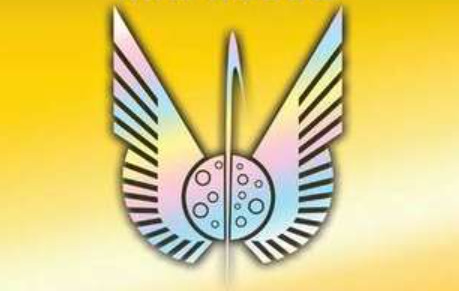
...He went to space. He went to space. Also the entire plot could have been avoided if Drevin had actually bothered to provide a photograph of his son. I’m sure he had one. I still like this book but it’s literally so insane that I just don’t know what to do with it.
It is however really funny that Webber just goes and gives a speech insulting this super high-profile ecoterrorist group and acts like it’s no big deal and then they kill him. Shock of shocks.
8. Skeleton Key
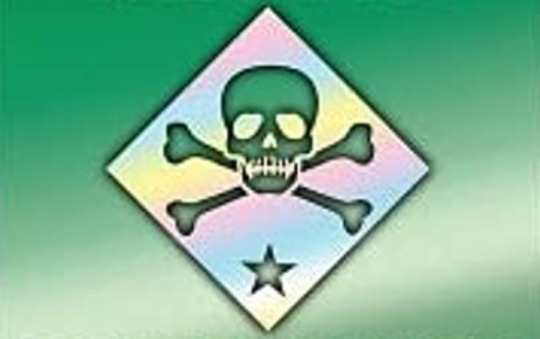
Okay, points to this book for terrifying the shit out of me. God damn it does that shark scene scare me. Also, points for making me feel a little bit bad for a man who wants to nuke his own country because he thinks it will fix the place up. I’m still not entirely sure how that’s supposed to work, but that’s probably a good thing. I feel like understanding his thought process would say bad things about me. Still, I actually did feel sorry for him, if only a little. Dude was clearly mentally unstable and I doubt his son’s death helped at all. I also got sad about what happened to Carver and Troy. (Yeah, yeah, I’m a cringe fail American who has the American release. So sue me.) What a nightmare that must’ve been to endure... Otherwise, though, I’m not super into this book. The opening is just kind of meh and the way it leads into the rest of the plot seems a little bit unbelievable. Also, this might be an unpopular opinion, but Sabina annoys me. I would not get along with her at all and I can’t imagine her as a girlfriend. Skeleton Key does, however, absolutely excel at the emotional scenes.
Also, why are all the spy agencies so comfortable with sending in a 14-year-old? Especially when they outright admit that the other attempts have all died horribly? Bureaucracy’s a bitch.
7. Point Blank
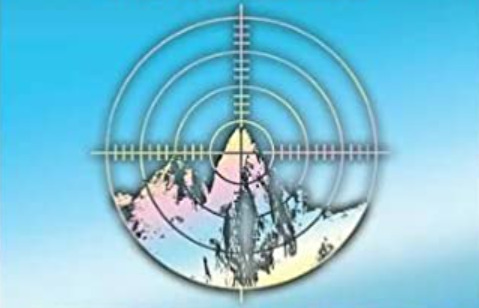
Boo, Dr. Grief! Boo! We hate your white supremacy! I’m so glad you got a snowmobile to the face, you deserved it. (Perks of books written by Jewish people--we aren’t afraid to give the neo-Nazis an unpleasant death.) Anyway, this book definitely isn’t bad, but I wouldn’t really say it stands out in the series. It definitely does hammer home the point of just how trapped Alex is, since MI6 isn’t going to just let him go after one mission, and let’s face it, the plot with the clones is creepy as hell, if highly improbable. But I’m largely just here to see the neo-Nazi get snowmobiled. That’s right, I just completely changed the definition of a pre-established word. I’m a rebel.
Also, I hate Fiona Friend so much and overall think she just didn’t need to be in the book, but the line about ‘I’d rather kiss the horse’ made me laugh so hard. Alex, you sass.
6. Snakehead
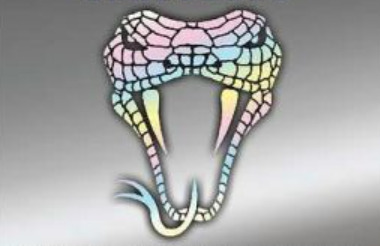
Okay, let’s talk about how genius the plan in this book is. I love it! I love how Yu wants to kill the people involved in the peace conference without making them into martyrs, so he comes up with this whole elaborate plan to stage a natural disaster. It’s incredible. This dude was thinking so far ahead. And he would’ve gotten away with it, too, if it weren’t for that meddling kid... But anyway, I don’t see a lot of books where the villain really acknowledges that killing their enemies could just cause more problems for them via turning them into martyrs for a cause. Also, the way he’s so polite and soft-spoken while also being a complete monster... This book genuinely gives me chills. Extra bonus points for the part in the hospital, the absolute nightmare of having all your organs slowly removed and sold off and everyone around you is being so nice about it? ‘Oh, don’t worry, Alex, it won’t be so bad. Here, take your medicine. Do you need anything?’ Literally just. What the fuck.
Also Ash can fucking fight me. You put your own godson in horrible danger on purpose! You killed your best friend! Bastard.
...And just in case the book wasn’t disturbing enough, Yu’s fate at the end lives in my mind rent-free and I think about it on a concerningly regular basis considering that the chances of that happening to me are so low they’re practically in the negatives. Damn you, Horowitz.
I would also be remiss if I did not mention just how much I love the tagline ‘once bitten, twice spy’.
5. Crocodile Tears

Ah yes, the book that kickstarted my drift away from the church... I kid, of course. I drifted away from the church for completely separate reasons. But Desmond McCain is always going to scare the shit out of me. The ability to kill countless innocent people while blissfully quoting Bible verses (that he takes wildly out of context and uses for his own self-serving means) is... well, I could actually say a lot about what that reminds me of, but I’m here to rate books, not religion. Moving on. This book has some really stellar antagonists, and the plot is chilling in a way that feels a lot more realistic than most of the other books. Even if some of it is a bit farfetched (sabotaging a nuclear power plant? Really?), the idea of using disasters for your own profit... well. I’m sure I don’t need to elaborate on why that is so believable. The Poison Dome is also a really cool and chilling scene--even Alex, who has the luck of the devil, can’t get out of that one unscathed. Further scares come in with the fate of Harold Bulman--imagine having your entire existence wiped and your identity changed while you were asleep! The breakdown he has over it is almost enough to make me feel sorry for him, even though he was ready to exploit a teenager and make his life a living hell just to turn a profit. Note the word almost.
Also. The opening makes me cry. Specifically the line talking about how Ravi’s kids would ‘never meet Mickey Mouse’. I lose my goddamn mind every single time I read it. That little personal touch turns the scene from a statistic to a tragedy. Once again: Damn you, Horowitz.
4. Stormbreaker

Yeah, this one gets the special cover shot. And why not? What we are looking at here is the birth of a legend. Move the fuck over, James Bond, Alex Rider is on the scene now. Anyway, yeah, this book is pretty damn spectacular. It has its stumbles, but as the first book in a series, that’s to be expected. Still, it pulls you in from quite literally the first line and keeps you going right up until the end. (If you came here from my post of memes, you know how much the line ‘Killing is for grownups, and you’re still a child’ destroys me.) It has the debut of much-beloved characters such as, of course, Alex--but also Jack Starbright, and of course, the best MI6 agent of them all, which is to say Smithers. Hell, even Yassen Gregorovich, especially once you get through Russian Roulette... Man, that was a rough one.
Seriously, though. This is a really good book. The scene with the Portuguese man-o’-war still gives me the chills to think about. (Have you ever looked up pictures of those things? They’re beautiful, but holy shit will they make you regret being born. Nature is funny like that.)
We also get the introduction of, of course, Alex’s patented sass (his response to Sayle saying he relates to the man-o’-war is HILARIOUS) and we get the inherent humor of Alex screwing up an alias one time and then just going by Alex for the rest of the series so he doesn’t do that again. Really, kid, I know you’re not a trained spy or anything but did you never play pretend growing up? Ever? You can’t pretend your name is Felix for a little while? That sounds like a you problem.
3. Scorpia Rising

I distinctly remember when this book came out, actually. I was on vacation at the time, and I remember my brother annoying the hell out of the poor workers at a bookstore we frequented there to see if/when they were going to get it in. They did, finally, and we bought it immediately, and I was of course absolutely desperate to read it. He got to read it first, though. -_-
This is a great book, an absolute emotional rollercoaster all the way through. The way Blunt tricks Alex back into service by staging a shooting was exactly the kind of cold, brutal behavior I’d expect from him. Seeing Julius come back was shocking, but very exciting, too. And Razim makes an incredibly chilling villain, with his absolute disregard for human life and his desire to measure pain. Also, seeing Smithers’s house was so much fun. Smithers in this book was just really fun in general, but he’s really fun in every book, so... nothing unusual there. But also, I want an unwelcome mat. Please?
2. Eagle Strike
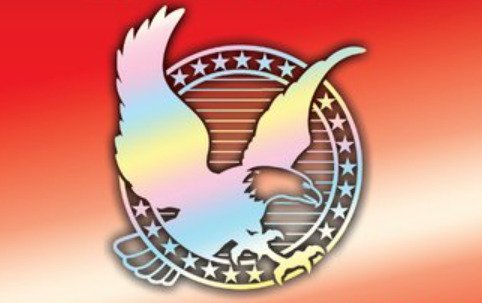
‘But Penny,’ you might ask, ‘why is this book so high on your list? It has so much of Sabina in it, and you said she annoys you.’ That is true. What does not annoy me, however, is basically the entire rest of the book. I love the tense opening, and then reading through Alex’s real-life ‘playthrough’ of Feathered Serpent is still one of my favorite scenes. Cray is absolutely incredible as a villain, with the way that he truly believes in his cause--which is undoubtedly a good one! Yet the extremes to which he will go for that cause, and the fact that he very nearly succeeds, are what elevate him to one of the most dangerous villains in the series. That scene with Charlie Roper and the nickels is something I can never seem to stop thinking about. Actually, I think about it basically whenever I think about large amounts of money paid in small increments...
Also, I really enjoy how he gets into the whole plot in the first place, and I really enjoy Smithers saying ‘ah, fuck it’ and helping him out anyway. Go, Smithers. You once again prove me right in saying that you’re the coolest adult in MI6.
The revelation that Yassen knew Alex’s father is one that absolutely blew my mind first time around. The way his life was threaded into the lives of the Rider family--he worked with John Rider, was saved by him, killed Ian Rider, and then died for refusing to kill Alex Rider--wow. Wow. It gets to me. It really gets to me. This book is a masterpiece. I heard that it’s going to be what the second season of the TV series is based off of, and I’m so hyped for that. We love to see it, we really do.
1. Scorpia
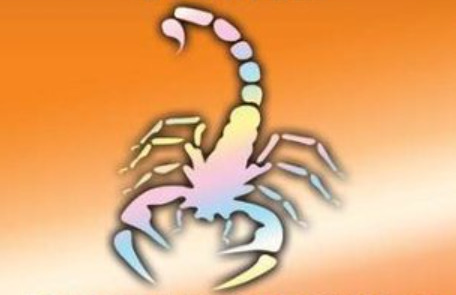
I don’t believe anyone who says this book didn’t get to them at all. I just think they are lying. I don’t think it’s humanly possible to not be affected by this book. God. Just thinking about it reminds me of why I don’t think it’s possible. I mean, come on. We get all this backstory about Alex’s parents, we get tricked along with him into thinking MI6 killed his father, then bam, that was a lie, and Alex may have just fucked himself over big time. Also, that plot is terrifying! (And I bet anti-vaxxers had a field day with it, huh.) Julia Rothman is a really great antagonist, one of the only ones who didn’t go and explain her plan in great detail to Alex--the fact that she didn’t actually being a plot point was something I personally found pretty clever. In general, this book is... I tend to hate when people say they ‘can’t put it down’ because it’s usually an obvious exaggeration, but that really is how I feel reading it.
And again. If that ending didn’t get to you... Well, I just think you are lying.
33 notes
·
View notes
Text
Alright so I have some brain droppings about the 4th Bioshock game. (Keep in mind I haven't fully fleshed out the exact ideas on how the game should go. I am merely basing it on some fanfics and other Bioshock theories people in the community have shared.)
I think the time period will be based between Bioshock 1 and 2 (soo, maybe between the years 1961-1967). The setting would be, of course, in Rapture.
Despite what Ken has done to Elizabeth, I think the people at Cloud Chamber would be willing to rewrite her arc by bringing her back via the prototype Vita Chamber in Suchong's Lab (how, who, and why she was brought back to life would be a mystery up until we get to the end of the game).
I'll admit, the main reason why I wanted Elizabeth to be raised back from the dead was for jackabeth shipping reasons (since I've read some fanfics and currently reading one now called: The Lion and the Lamb on AO3), but after a few months of replaying the bioshock collection, doing some more research on the franchise, and reading other people's opinions on here, my reasoning has gone deeper than that.
I don't think it's right how Ken Levine wrote off Elizabeth as a martyr at the end of Burial at Sea since 1. She let's Atlas and his bandits go and start a civil war. 2. She didn't even try to save Sally from Atlas's clutches. She literally just stood there and let Atlas kill her without even trying to get Sally away from him because reasons. And finally, 3. SHE DESTROYED AN ENTIRE CITY AND WAS THE CAUSE OF THE MANY DEATHS IN RAPTURE. All for one little sister, which in turn, killed other little sisters in the process (that is, if they didn't die or get rescued, waited until they get turned into Big Sisters). She doesn't deserve to die a martyr, unless, she is forced to face the consequences of her actions.
I think Elizabeth should go back to being the main character in the game so that she can explore Rapture in its post-civil war state, so that she can truly see what she has done to all the innocents that were turned into splicers, so that she could see the pain she has caused Jack and the other little sisters, so that she can truly try to reconcile with them and make things right.
I saw a couple of posts by @something-in-the-seas about how Burial at Sea should've ended, like how Elizabeth and Eleanor's story should've intertwined with each other, and I thought, "Hey why don't we do that, but with Bioshock 4!" Cloud Chamber could make a story about how Jack and Elizabeth could try and save the rest of the innocents in Rapture and try to help a young Eleanor bring Subject Delta back to life. I know it has been stated near the end of Bioshock 2 that Eleanor was able to bring Subject Delta via his DNA (hair samples), but they never really explained how the Vita Chambers were able to reverse from Jack's DNA to Delta's, so maybe in the next game they will touch upon that.
If something-in-the-seas sees this/reads this post, I just wanted to let you know that I'm not trying to steal/take credit for your ideas. I simply got inspired by them and wanted to expand upon them.
Despite Infinite and Burial at Sea being a royal mess to the franchise, I still enjoyed Elizabeth as a character; she wasn't by all means perfect, but she was still a fun character to explore and grow fond with, and I absolutely hate how Ken destroyed all of her interesting character traits and turned her into a former shell of herself. All because he got salty with the fact that 2k wanted to expand upon her story after Infinite was done.
Anyways I'm done rambling, what do y'all think about the next Bioshock coming out soon. Do you agree with what I have said or do you think that my ideas are stupid? Let me know y'all's thoughts since I like to interact with the fandom.
One more thing to add: Cloud Chamber, please redesign Jack's character model. No one wants to reference that wrinkly-ass, disproportionate model that the designers had lazily created in blender 3d a few years ago.
#bioshock#give elizabeth a second chance 2k#bioshock jack#bioshock jackabeth#bioshock elizabeth#bioshock 2#bioshock infinite#bioshock 2 subject delta#bioshock 2 eleanor#jackabeth
34 notes
·
View notes
Note
You think characters ever get tired of the 'Just like your parent' trope? Like, all those times where they're told that everything they do is the same thing their parents do has gotta get a little dehumanizing at some point. "I like to think that was a very ME thing to do, not a very Dad/Mom thing to do!"
I literally thought this all through reading Harry Potter. Yeah, it’s different when the character is an orphan due to tragic circumstances, desperate to have known his parents, but it can still be cruel to frame what they’ve done as an inevitably result of those who came before them. Every time someone went on about how Harry looks and how he acts just like his father, has his mother’s eyes and her kindness, is the perfect balance between these two people... I’m thinking, but this is Harry. He’s just like himself.
Which made Sirius’ arc that much more compelling/tragic for me. Say what we will about JKR’s series and her subsequent bigotry (and there is a lot to say), there are still aspects of the HP books that I adore and the complicated relationship between Harry and the previous generation is one of them. There are parallels between Snape and Sirius in how they view Harry. Obviously one treats Harry far more horrendously than the other, but both struggle to see Harry as his own person, rather than as a James stand-in. Snape looks at him and sees another arrogant bully, someone out to take what he perceives as his right to certain things in life, things he assumes will make him happy. Sirius, meanwhile, sees his lost best friend. He didn’t have the chance to see Harry grow up, essentially halted development in his early 20s by being sent to Azkaban, and then is suddenly thrust into a life where a near replica of James in looks and (he presumes) personality is beside him. They may as well be 15 again, fighting side-by-side in another war. Sirius is suitably chided for it by Molly - "He's not James, Sirius!" - and the film cranks this up a notch by having Sirius’ last words be “Nice one, James!” Given the time constraints, they took a drawn out and complicated relationship and reduced it to the most tragic outcome: there are literally times when Sirius thinks Harry is his dad.
Meanwhile Harry, of course, is the one who suffers for this. He grows up with the Dursleys who give him one extreme in the form of his dad being a no good drunk who got himself and his wife killed. Then he moves into the wizarding world where people like Sirius, Remus, and the world at large give him another extreme in the form of a father who was the best ever and died a flawless hero. James was on the Quidditch team. Harry is on the Quidditch them. James was a part of the Order. Harry is a part of the Order. James dated the brilliant redhead and had a Slytherin enemy in school. Now Harry starts falling for another brilliant redhead and is continually dealing with Malfoy. There are parallels everyone beyond just his looks. Problem is, Harry is an actual person rather than the memory of a man put on a pedestal due to grief. His life has complications that the image of a martyr never has to deal with. Did Dad struggle to balance normal school life with a war? Feel for his presumed enemy because they’re both just kids? I bet no one ever told Dad he was too young to fight. He certainly never thought he was going bad... These are things that no one talks about when discussing a dead loved one + war hero, so Harry is constantly trying to live up to a person who didn’t exist. Two people who didn’t exist. “You look just like your father, but with your mother’s eyes.” They’re comforting words for an abused orphan who so desperately wants a family, but in time those comparisons become something he tries - and inevitably fails - to live up to. The only person who provides a different perspective is Snape and 1. That’s another extreme like the Dursleys gave him and 2. Why would he believe Snape to begin with? Obviously his view of James is just an outright lie... So when Harry gets proof via memories that his dad did do bad things he freaks out about it. Because no one bothered to talk about James as a human being who did wonderful things and made mistakes. The concept of James needing to grow up is a revelation. Harry doesn’t have to be ‘perfect’ this instant and, more importantly, he doesn’t - and can’t - be James at all.
All of this is why the scene at the lake is one of my favorites. Harry has heard for three years now how wonderful and perfect his dad was. A hero incarnate. So of course when he sees a James-like figure in the distance it must be James. Forget pesky problems like the fact that he’s dead, that’s his Dad acting precisely as he’s supposed to: standing tall with impressive magic, saving Harry’s life. It takes until the very last moment for Harry to realize that’s him. As Dumbledore says, James might live on through Harry, but Harry himself is his own, individual person capable of doing these amazing things - saving Sirius and saving himself. He’s also capable of making terrible mistakes. The ability to finally look and see someone who is literally himself and not presume that’s James is huge. Harry looked in a (time travel) mirror and "it hit him--he understood. He hadn't seen his father--he had seen himself.”
Me:

30 notes
·
View notes
Note
Ruby could get kidnapped in V8 but with everything going on V9 will need to be something less stressful. Still I would be down for Oscar and Ruby reuniting and THEN talking about the trauma together. V8 though I do want self-reflection since Oscar is basically back in V4 status(all alone with Ozpin). Along with Ruby wondering what more she has to sacrifice whether it be Oscar or her life like her mom.
On the contrary Ghost; with the way things are going now with the events of the Atlas Trilogy, I feel like the showrunners are just going to keep upping the stakes. So perhaps Ruby being kidnapped for the next volume wouldn't be too bad of an occurrence.
I mean I've been an advocate for Ruby becoming a prisoner of Salem along with Oscar since V5. Salem has been interested in capturing Ruby since V4 and it wouldn't surprise me if she'll have her eyes set on capturing Oscar too; especially since she knows that Oz has been reincarnated.
As I was telling @crystalandbrass, what if…in V8, as a reverse parallel to V4, Tyrian Callows is once again sent to retrieve Ruby. In my interpretation of this hunch, I imagined Tyrian leading his own faction of Winged Beringels to ambush and overpower an unsuspecting Ruby who just happened to be out alone in Mantle with only Qrow as her company.
In the Wizard of Oz story, it was said that the Scarecrow was almost destroyed by the flying monkeys when they came to capture Dorothy Gale. So what if…we got a RWBY equivalent to that moment in which Qrow is overpowered by Winged Beringels and forced to look on helplessly as Tyrian relinquishes an unconscious Ruby Rose over to a Winged Beringel which takes her away to Salem.
Meanwhile, Tyrian stays behind to finish off Qrow only for the Branwen man to be saved in the nick of time by Jaune, Nora and Ren arriving to aid him; much like how he had come to their aid back in Anima in V4.
I quite like the concept of Ruby becoming Salem’s prisoner by the conclusion of V8. Perhaps this could lead into what some of Rosegardening Pineheads and Rosegardeners have been itching to see---a scene in which Oscar comes to Ruby’s rescue to parallel all the times she has protected and looked out for him over the past few seasons. I think it could be a neat moment for Oscar if he ended up challenging Salem to save Ruby.
Perhaps…we could even see my ole Oscar the Golden Cap Pinehead headcanon coming to fruition too with Oscar becoming so great and powerful in his magical abilities that he’s able to use his power to take control of Salem’s Winged Beringels (see my Oscar’s Luxx Pinehead headcanon right here)
In the Wizard of Oz story, the Wicked Witch was only able to control the flying monkeys through the power of the Golden Cap---a cursed magical artifact that allowed its wielder to control the flying monkeys at least three times.
Although Salem is the creator of the Winged Beringels on the RWBY universe, she did so via the power of the Grimm Pools and her own magic.
Therefore, this squiggle meister thinks it would be a really neatorrific magic trick to see Oscar use the power he inherited from Ozma that he has come to make his own during his time with Ozpin to take control of the Winged Beringels; making him the RWBY version of the Golden Cap.
Gold is in his name after all and much like the Golden Cap from Oz, Oscar is a vessel of magic. Just saying.
I mean, I doubt we’d actually see anything like that for V8 but it would’ve been something cool. As a Rosegardening Pinehead, I really love the thought of Oscar immediately daring to challenge Salem on his own upon learning that she has Ruby.
I can definitely see this being a possibility, particularly in the event that part of Oscar’s story and development for V8 would be the young huntsman coming to terms with the importance of Ruby to him; mimicking how his fairy tale counterpart---the little prince---came to revere his beloved true rose.
Perhaps it’s even a case where Salem uses Ruby to lure out Oscar. Imagine if… Salem ends up capturing Oscar by forcing him to surrender himself over to her as a means of protecting Ruby.
Or…as an alternative to that, imagine if…Oscar sacrifices himself for Ruby’s sake. Like it’s a case in which Oscar gives Salem an ultimatum in which he trades his life and freedom to become Salem’s willing prisoner in exchange for Ruby’s salvation. Basically picture a moment in which Oscar boldly proposes for Salem to imprison him and do whatever she desires to him--- torture him for the rest of his days, even kill him---in that moment, the little prince was willing to lay his life at the mercy of the wicked witch so long as no harm came to his rose as part of their deal or exchange.
Equivalent exchange, am I right?
Kind of like how Azlan surrendered himself to be “killed” by the Ice Queen in place of Edmund Pevensie in the Chronicles of Narnia: The Lion, the Witch and the Wardrobe,
Bruh, imagine if…we got a scenario where Ruby is left unconscious for most of the finale after being poisoned by Tyrian and by the time the Silver Eyed Rose regains consciousness, she awakens to her allies begrudgingly informing her of Oscar’s sacrifice for her. Imagine a scenario in which for the majority of V8, Ruby and Oscar never truly reunite. Even though we spent more of the story with Oscar fighting to get back to his friends and Ruby; in the end it’s a case where they still don’t get to see each other or rather; Ruby never gets to see Oscar again since he gave himself to Salem for her sake. Thus, Ruby has to live with Oscar making that sacrifice for her and her mistakes this time.
Y’know what I realized---much like Ozpin (and by extension Ozma and all the Wizards in his cycle), Oscar has become the proverbial martyr to constantly pay the price for others actions even when he attempts to rectify them.
Between V5-V7, Oscar was mainly chastised because of Ozpin’s actions and past mistakes. He became an immediate foe to Hazel Rainart who he was forced to combat due to his beef with Ozpin concerning his sister. He was punched by Qrow (technically while Oz was in control but Oscar still felt the aftermath of that) out of the bird man’s anger and frustration towards Oz for the lies he told him and others. And just last season, Oscar literally got shot and sent to his presumed death by Ironwood for trying to correct mistakes made by both his predecessor and his allies.
And what’s worse about that is that Oscar had no say in any of that. He more or less just has to accept punishment for the actions of others whether he liked it or not.
So imagine if…for another time---presumably the last time--- Oscar makes himself a martyr; paying the price for Ruby---only this time, it’s his choice to give himself up for the girl he loves.
Doesn’t that sound like an interesting plot point to see? Perhaps this could be another way for Ruby to see the weight of her own actions and mistakes in a way.
In the Lost Princess of Oz story, I recall Princess Ozma being captured with her best friend (and closest confidant) Dorothy Gale being the one to lead a rescue party to save her. This is why I’ve been more inclined towards Oscar becoming Salem’s prisoner with Ruby the one to ultimately save him as his closest companion and potential love interest. I still like this possibility very much.
Then again, this could also easily go the the opposite direction in which both Ruby and Oscar become unwilling prisoners of Salem. While in captivity, Salem makes sure to keep both smaller, more honest souls apart in order to play off of their bond and devotion to one another and sort of maliciously manipulate and torment them into submitting to her will. That’s another possibility that I like.
The way how I see it, V9 could potentially be a standalone Dark Domain season where either Oscar is captured by Salem after sacrificing himself for Ruby leading to her leading their allies into the Land of Darkness in order to rescue the imprisoned little prince or….it could be about Ruby and Oscar dealing with being prisoners of Salem.
For me, my money will always more be on Oscar becoming Salem’s prisoner especially if he does it in Ruby’s place because I still love my headcanon of Oscar becoming the Boy in the Lonely Tower with Salem imprisoning him in a castle of solitude like how she was first locked away before Ozma found her. I still love that theory.
But who knows. Neither of this ideas could become a thing, as far as I know. Even if the CRWBY Writers mentioned something along the lines of reading fan’s comments for certain things to happen for certain characters, I highly doubt any of em would lend to any of this squiggly Pinehead’s million and one headcanons. As always, these are only my theories, thoughts and ideas for things for RWBY.
Either way, I will say that I do think that something big could potentially go down for both Ruby and Oscar respectively next volume.
I do think we could get that self-reflection on Oscar’s part like you want Ghost---I’m just unsure how it will work given the whole 1-2 days’ timeline. Given the fact that Oz has been gone for probably a month or some weeks since the heroes got to Atlas, it would’ve been better to see more time pass in the story in order to make Oscar and Oz’s bond growing within that time more believable, y’know what I mean? At least for me. This is just my opinion here.
I mean I guess I can look at it from the perspective for their bond being forced to grow faster due to the emergency of Salem’s arrival OR….perhaps V8 could only be the start of Oscar and Oz finally learning to coexist with one another and in the event that Oscar does indeed become Salem’s prisoner---if he’s captured, that will prove the PLOT more time to have Oscar bond with Oz since for a second time, the young boy will be all alone with only Oz as his companion. That could be something.
But who knows, y;know? I guess we’ll only know once more news of the next season drops, I suppose. In the meantime, I hope I was able to answer you, Ghost. Let me know if I did, please.
~LittleMissSquiggles (2020)
#squiggles answers: rwby#oscar pine#ruby rose#oscar and ruby#rwby rosegarden#rwby theories#rwby volume 8 theories#ghostpegasus#squiggles answers
19 notes
·
View notes
Text
Octavian in The Tyrant’s Tomb
Or rather, the lack thereof. You all know I’m salty about this, so here’s the official rant.
First, let’s look at where he was mentioned. Exactly twice.
“The legion had no high priest, no pontifex maximus. Their former augur, my descendant Octavian, had died in the battle against Gaia. (Which I had a hard time feeling sad about, but that’s another story.)”
This one really hit me because it’s primarily just another instance of Apollo’s unnecessary sass. In The Hidden Oracle, he seemed to at least recognize his own fault in the matter for a split second: “A voice whispered in the back of my mind. This time I thought it might be my conscience: Who was the stupid boy? It wasn’t Octavian.” What happened to that? I get it, Rick knows that most fans hate Octavian. Ha ha. What’s important is that Apollo also thinks this way about Gaius Caligula and Nero, who are also his descendants. For all his character development, and for all the similarities between himself and these people he despises, Apollo can’t seem to wrap his head around the fact that yeah, they all got this from him. It’s one of the last bastions of Apollo’s ego and hypocrisy, and I don’t think it’s ever going to be addressed.
It’s half-heartedly joked that there are no “adults in the room” in New Rome anymore. Reyna notices a difference in the dynamic of the Senate. Apollo is expected to do all the ceremonial duties regarding Jason’s funeral. Beyond this, the book never once directly admits that Octavian’s absence has otherwise impacted New Rome. Or how his family reacted to his death. Sure the chaotic state of the community may play a role in this, but more on it later.
Apollo has mentioned in ToA that, of all his godly memories, he specifically remembers his talks with Octavian. I for one am very interested in this “other story” that Rick refuses to explore.
““Praetors often partner up. In power. But also romantically, I mean. I thought Jason. Then for a hot minute, Percy Jackson. Gods help me, I even considered Octavian.” [Reyna] shuddered.”
This mention is purely throwaway; it’s meant to show how truly desperate Reyna was feeling. For the record, I respect Reyna’s subplot, for all I care about it at all. I think it’s hilarious how clearly repulsed she sounds at herself for even considering dating Octavian. Let’s be clear: this isn’t her admitting she ever liked him, or - gods forbid - had a crush. This is Reyna commenting on how oppressive the expectations of society are on single women. What’s funnier to me is that Octavian would have 100% turned her down, and her self esteem would have been toast. Good for her for sticking to her heart and not letting the world tell her what to do.
Moving on, what’s more important is how Octavian wasn’t mentioned. I've said before that Riordan’s decision to flat out ignore Octavian has led to some minor but annoying continuity issues.
On a purely practical note, Octavian was a prominent, active member of a religion, a government, and a military. New Rome doesn’t have an augur. As Jason’s funeral shows, Apollo had to take up the associated religious duties. But how did New Rome handle honoring those who died in the war with Gaia? Or those who were more recently lost, in the fighting with Tarquin? How has the operation of the legion and senate shifted? Who replaced him as centurion of the first? What is it like to not be able to seek the gods’ approval via augury? Who approves new recruits, checks their credentials and assigns them to cohorts, and eventually gives them their tattoos? Who awards mural crowns and other military distinctions? New Rome has been without an augur before, as it’s a rare gift, but these questions still need to be answered for the community to operate.
Back to Octavian’s family! His family is said to have been the oldest, richest, and most influential family in New Rome. Octavian is at least a 3rd generation camper, his family going back a hundred years or more. This is stressed in HoO because it’s used to show just how “entitled” and stuck up he is, but now? It’s not mentioned at all. No mourning, no help in Rome’s time of crisis, nothing. Unless by Octavian’s “family” Riordan was solely referring to the Triumvirate and Octavian was a member of an Imperial Household the whole time, this is ridiculous. I need to write a whole post about this, because Octavian’s life is fascinating when you consider what implications this has.
As Gaius and Commodus are attacking New Rome with their fleet of yachts, New Rome’s navy gets brought up. I know Apollo isn’t the best narrator on this point, but all that’s mentioned is the sad boat Percy used for the Alaska quest. That small fleet of very nice speedboats that Octavian funded for the attack on Camp Half-Blood? Nope. Is this just Apollo being out of the loop? What happened to New Rome’s fleet?
With New Rome in chaos, this last point is really more of a nit pick, but can we please remember that Octavian led a very willing camp to war? Even before the Argo II disaster, even before Octavian spoke out at the Senate, the lares and legionnaires in the streets showed anti-Greek sentiment. The 5th cohort was “Greeks and geeks.” When Octavian proposed war, he had the legion on his side. As soon as Reyna left to go help with the Athena Parthenos, the centurions were ready to disobey her and follow Octavian. Even in the final battle of HoO, only the 4th and 5th cohorts really start to turn against him. All of this backs a very important, but largely ignored, point: you can lead a horse to the Senate, but you can’t make it vote. We see none of that tension in New Rome now. I get that most of the legion is dead, and that’s a huge part of it, but no one spoke out at all. We don’t see anyone with the opinion that Octavian did save Rome and defeat Gaia. We don’t see him get any funerary honors (which makes the book’s message concerning death all the more hypocritical). When Gaius confronts Frank - “Praetor Zhang, you are duty-bound to recognize Roman authority, and we are it! Together, we can rebuild this camp and raise your legion to glory!” - he’s right. But we don’t see a single legionnaire hesitate.
I get that New Rome isn’t Riordan’s favorite, and that to develop the Romans would require a whole series of its own, but the sheer shallowness of New Rome just felt lazy. Even mentioning Octavian’s legacy would have done so much to show us more about Camp Jupiter. How is he remembered? A hero? A tyrant? A martyr? A fraud?
83 notes
·
View notes
Text
Legacy: Arrow 7x12 Review (Emerald Archer)
Spoiler alert: I loved the 100th episode. I know this is a controversial opinion because it is universally hated in the fandom (I think), but I truly loved the episode for where Oliver was at in his story. So, I didn’t go into the 150th with a lot of expectations. The 150th didn’t need to fix anything for me. Were there some misfires? Yeah and we’ll get into those, but overall I enjoyed this episode.
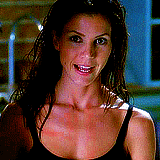
Let’s dig in…
Queen Family
William is home and our Queen family is reunited. FINALLY.
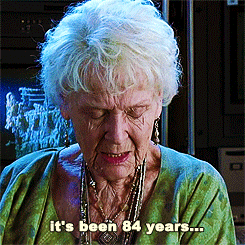
Yes, I know it’s technically the Queen-Smoak-Clayton family, but nobody is really expecting me to hyphenate three names over a dozen times? If you are then that’s crazy. I won’t do it.

Oliver and Felicity are overjoyed to see William,
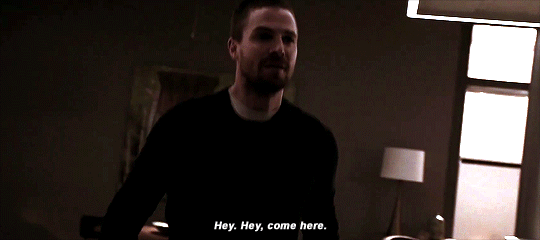
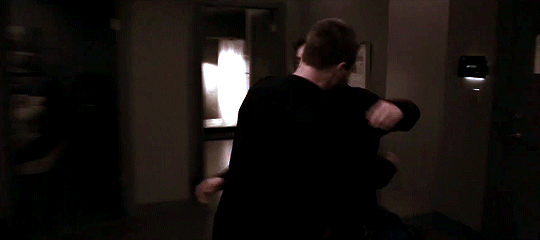
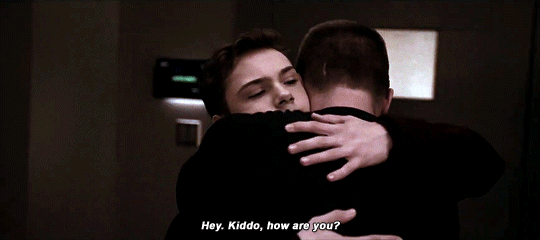
but unfortunately the sentiment is not returned.
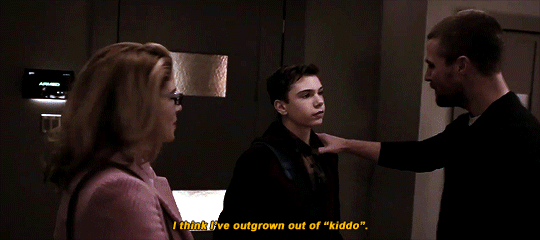
Source: olicitygifs
“Emerald Archer” introduces us to William’s alter ego: THE MOODY TEENAGER.
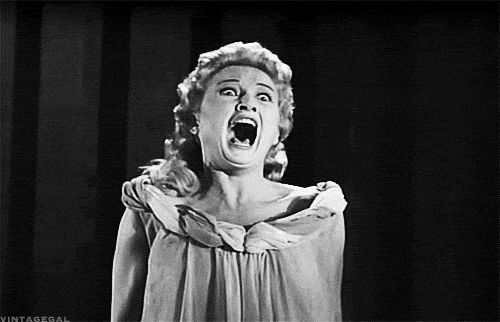
This may be the toughest foe Oliver and Felicity have ever faced.
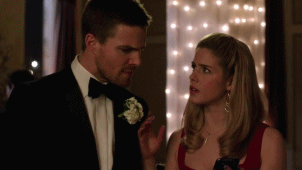
Kidding. Not really. I’m knee deep in preteen years and the teenage ones are barreling at me with lightning speed, so I identity with this storyline A LOT.
Felicity deftly navigates the creature otherwise known as MOODY TEEN by complimenting his ability to find her virus (our budding computer genius. I am so proud.)
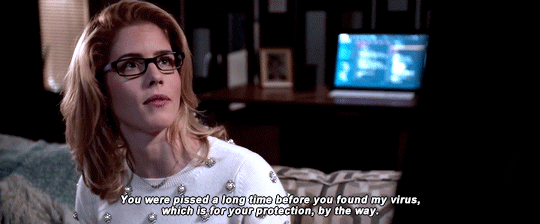
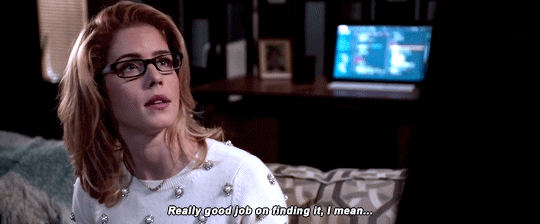
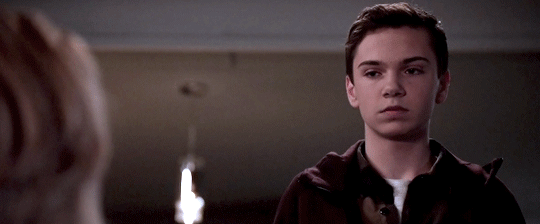
and then lovingly prodding William into discussing whatever is bothering him
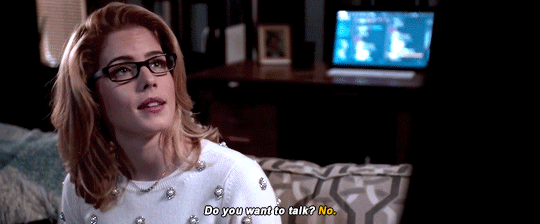
by threatening grounding (for a rude & sassy attitude).
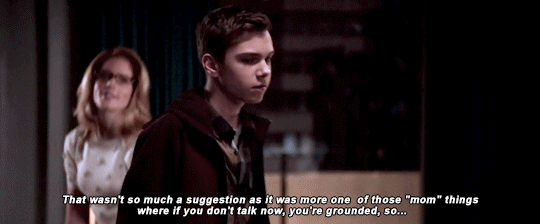
Source: felicitysmoakgifs
Y’all I am taking notes. MOM ICON AT WORK.
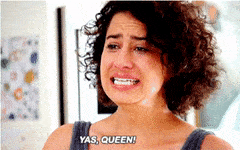
William is ticked because his parents didn’t bring him home for Christmas. Is that what happened?

It’s so hard to figure out what holidays Arrow is acknowledging. Oliver said in 7x08, “Christmas vacation seems like 20 years from now,” so I assumed William came home sometime after 7x09, but I guess not.
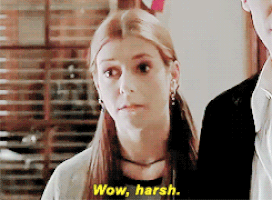
Yeah, I get it kid. That sucks. #TeamWilliam.
In your parents’ defense they were hashing out the emotional evolution of their marriage while Oliver was body swapping with Bart. But that’s just a regular Monday for Arrow, so I understand the kid’s beef.
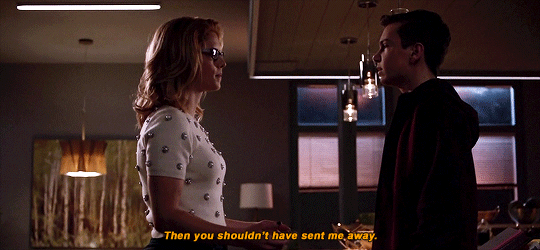
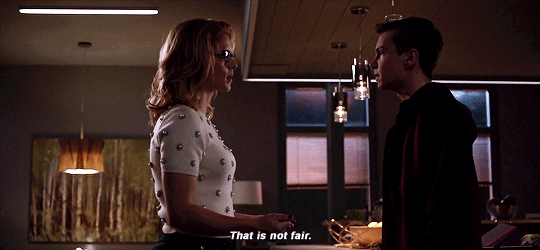
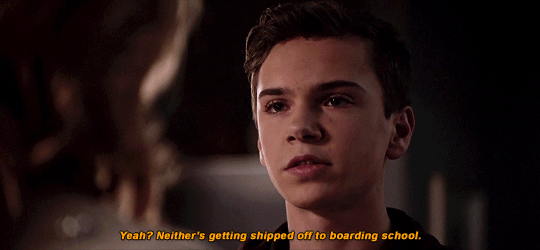
Source: ebett
Oliver playing television star (hehehe SO META) via this documentary doesn’t exactly scream crisis to William either. But-but-but all the shaky camera shots for gritty realism are cool though right honey? Yeah, William doesn’t care.
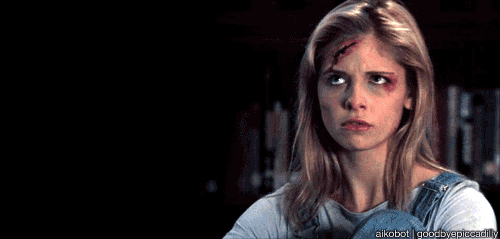
HOWEVER, if I spoke to my mother the way William spoke to Felicity and violently shoved an electronic device she paid for in her face while making demands regarding the wifi security (which she also pays for), I would be taking my life into my hands. My mother would have removed me from this earth, which is her right.
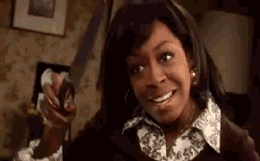
Same goes for my kid. I once asked my child during a temper tantrum if she wanted to do this the nice way or the nasty way. She put her little hands on her hips, all of age 3, and said with absolute conviction while glaring at me, “NASTY.” She is now 11, going on 12, and I assure you she has never made that mistake again. So, I commend Felicity’s reserve. I’m afraid I do not share that level of parenting patience.
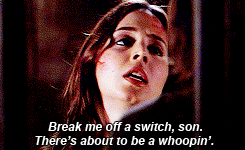
Why is Felicity taking all the heat when it was Oliver who screwed the pooch by going to prison in the first place? Well, yes one can always trace the source of the problem back to the biggest pine tree to ever live,
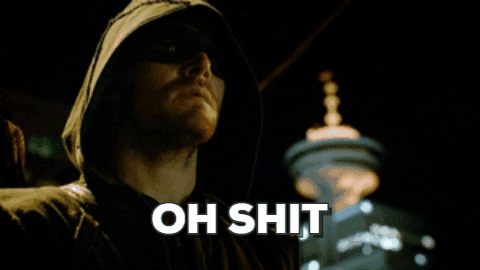
but in this particular circumstance I agree with William. It was Felicity’s decision to send him away to boarding school. I’m not saying she shouldn’t have done it. Felicity had extremely good reasons to send William away.
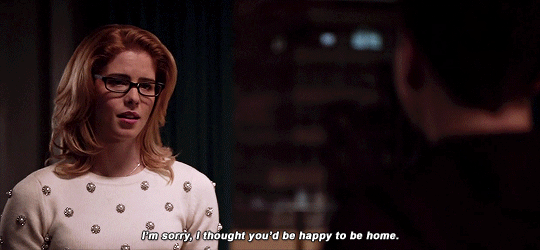
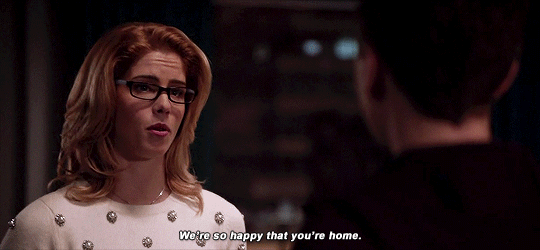
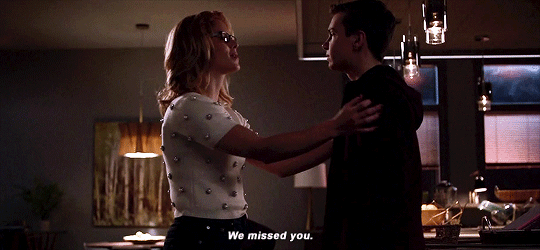
Source: ebett
However, a large part of Felicity’s beef with Oliver after his release from prison was his constant Monday morning quarterbacking of her decisions. Oliver can hero however he wants, but he doesn’t get to question how Felicity deals with the consequences of his heroism. That was the agreement right? RIGHT. Felicity said the buck stops with her. So, the buck stops with her. Sending William away was her call, so now she’s dealing with some fallout.
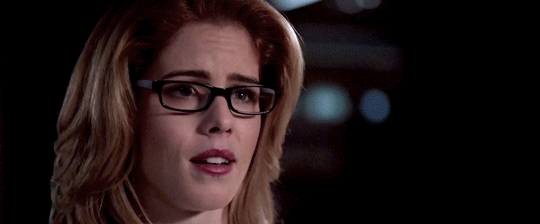
Source: felicitysmoakgifs
Don’t worry, I fully expect Daddy to get looped in, but I like how they are focusing on William and Felicity first. It’s rare to run into problems with your child when both parents are in the room. One or the other fields the play first and then you loop your partner in. At least, that’s how it works in my house. (Seriously, I don’t know how single parents do it. Y’all are kings and queens among peasants.)
Side note: you never ever contradict your partner’s parenting decisions in front of the little human. It shows weakness. The wee nugget can smell it like fear and it gives them a tactical advantage. These are tools of the trade. Get a pen. Write it down.
It was just William and Felicity for six months. They built their own family without Oliver together. Of course, Oliver was still a part of the family and they missed him like crazy, but the day to day was just the two of them. Some of those decisions are coming home to roost, so it makes sense to me Felicity is taking the parenting lead. She was William’s only parent for quite some time.
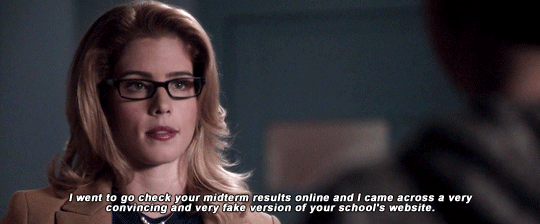
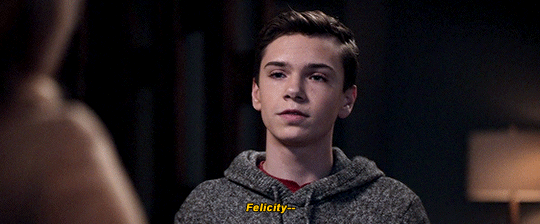
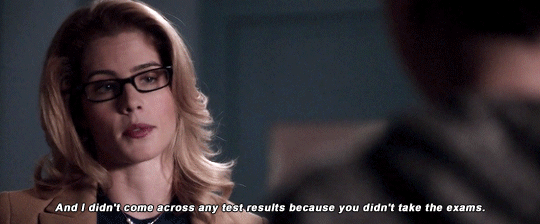
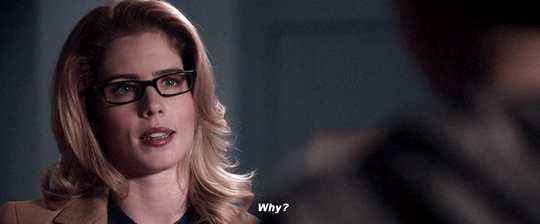
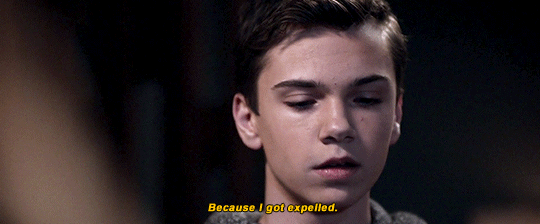
Felicity, being the super hacker mom that she is, figures out what is really going on – William is lying to her. It seems he has been expelled from school. Oops.

The reason for his expulsion will be revealed to us next week I am sure, but I would say now is the time to loop Dad in.
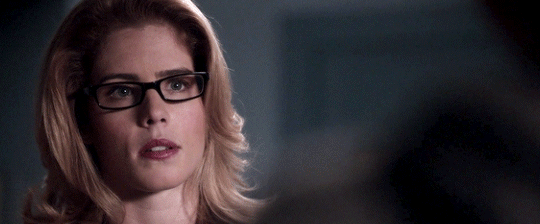
Source: felicitysmoakgifs
These scenes between William and Felicity were the best in the episode and it never ceases to amaze me how far their relationship has progressed in such a short amount of time. There is nothing Felicity can’t do and no man she cannot smoak. Life with a teenage William is going to become more complicated and the parenting more challenging. But William will be a better person for having Felicity in his life. No matter where this story goes that’s a solid fact.
Olicity
It’s been 150 episodes and we’ve come a looooong way with Oliver Queen.
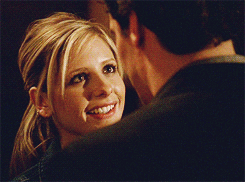
He’s so at peace with himself in these interviews.

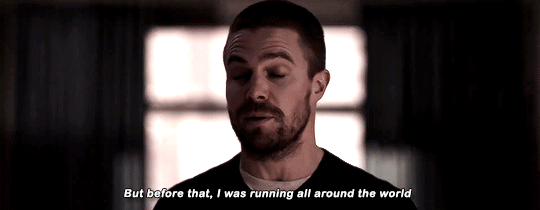
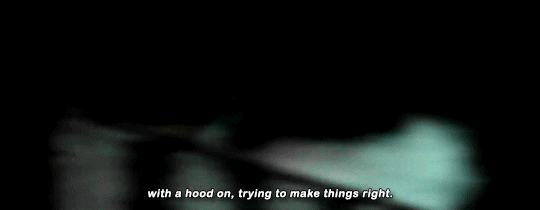
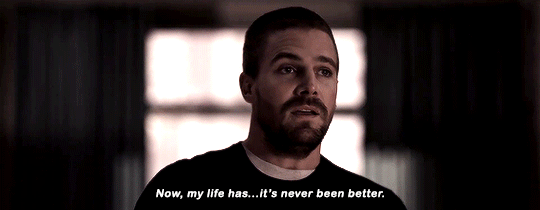
Oliver has merged both personas, the hood is down, mask is off, he's married to the love of his life, his boy is home, and his life is filled with purpose.
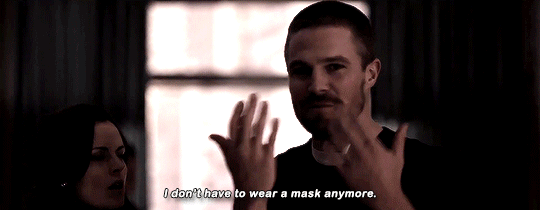
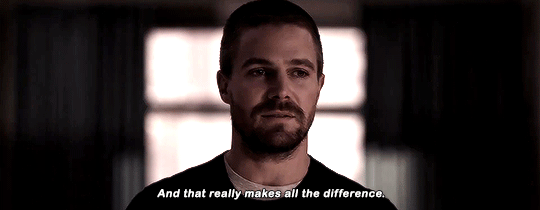
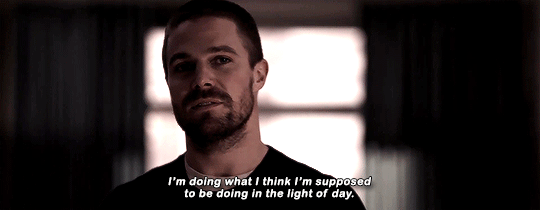
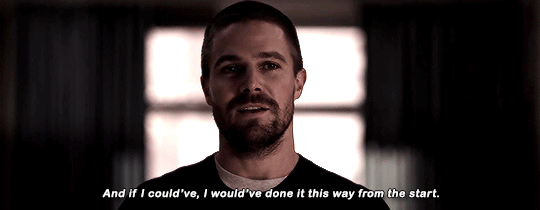
Source: smoakmonster
This man was snapping necks in the pilot and now he’s the softest teddy bear to ever exist because his son is home from school. MY HEART IS FULL.
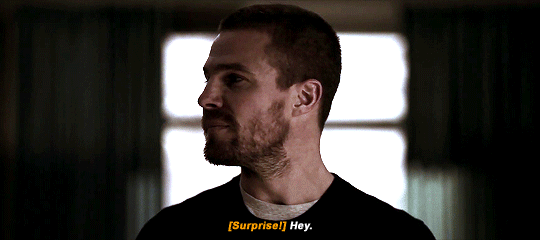
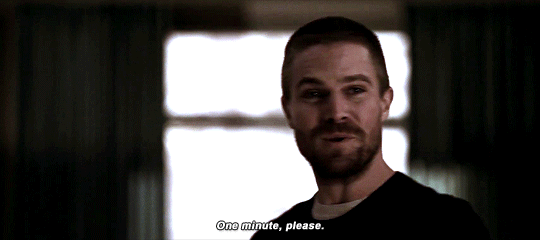
Source: olicitygifs
To begin where Oliver began, and to be where he is now, is nothing short of miraculous. He may not be a saint, as Curtis notes later, but that’s exactly where he is headed. That’s who fully realized superheroes are.
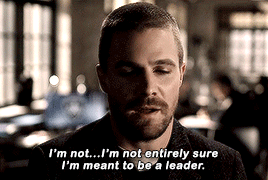
But we still have some road to travel. Oliver’s only real area of doubt is his leadership abilities. I still don’t understand what mistakes Oliver made with Team Arrow.
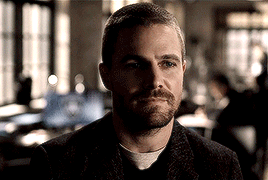
Source: smoakmonster
He’s constantly referencing these “mistakes” particularly in “Emerald Archer.” This is a failing of Season 6. I truly think the writers believe the NTA versus OTA storyline was evenly handled, but in reality Oliver was completely in the right and the Newbies were acting like spoiled toddlers.
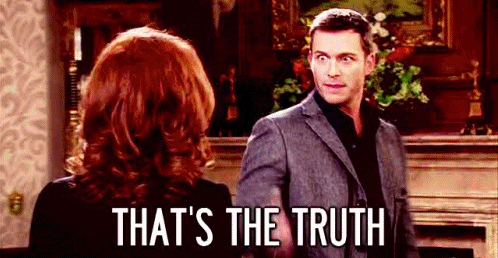
Oliver went to jail in some part to atone for his sins, but I do not feel any of those sins happened in Season 6. I view Oliver’s stint at Slabside as atonement for killing.
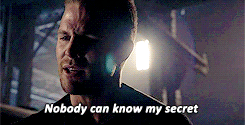
We can debate the necessities of that atonement, but this season feels like an ultimate purging of Oliver’s sins – venial and/or mortal. Whatever debt Oliver owed society, he paid it and then some. This only makes his soul more pure. If you don’t believe Oliver deserved to go to prison at all then it just adds more fuel to the martyr fire - all good things in the evolution of a saint.
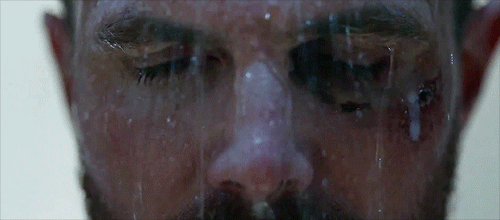
However, now Oliver is questioning his ability to lead because of these so called “mistakes.” Based on statements Oliver has made in previous episodes, those mistakes would be lack of trust and lying.
I’m with him on the lying. Time to nip that in the bud, but that doesn’t mean Oliver owes everyone the truth immediately. He’s perfectly within his rights to take some time, yes even a month, to process the introduction of a new sister in his life. The man still has a right to some privacy and space.
Oliver’s guilt over not trusting the Newbies is fairly ridiculous since they gave him very good reasons not to trust them.
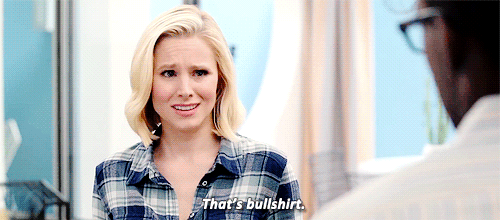
In case Oliver has forgotten, Dinah had a secret criminal boyfriend and Rene sold him out to the Feds. These are untrustworthy actions and they have consequences. I can’t remember what Curtis did, if anything. His crime is unceasing uselessness, so Oliver can and should ignore the man.
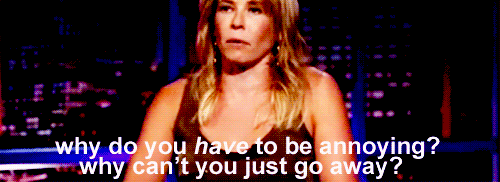
Oliver is not sure he’s meant to lead, which of course means he is absolutely the right person for the job. Only true leaders question their worthiness.
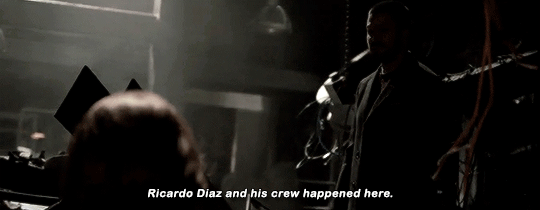
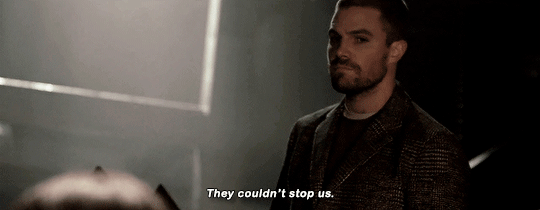
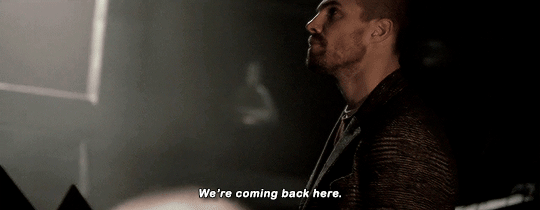
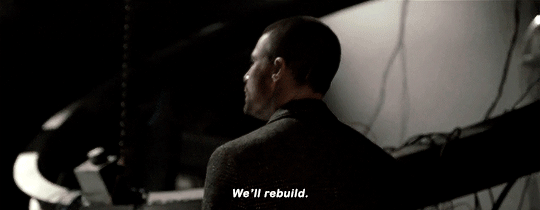
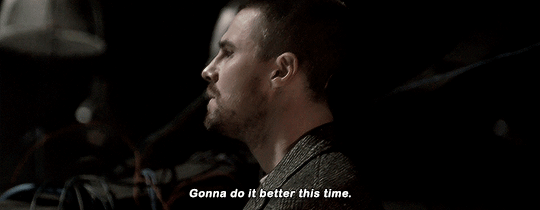
Source: smoakmonster
He returns to the destroyed bunker with a renewed commitment to rebuild the bunker
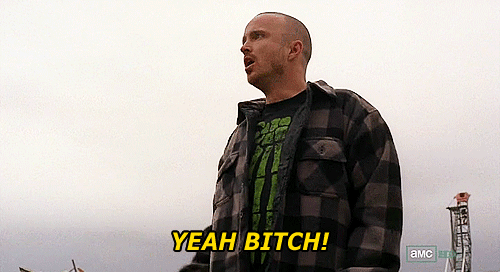
(with handy dandy deputy badges for the team) and learn from his mistakes.
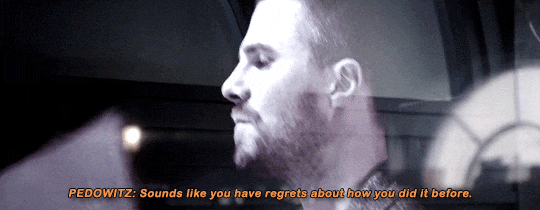
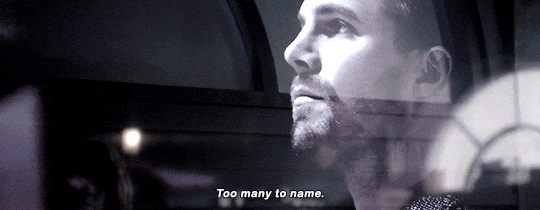
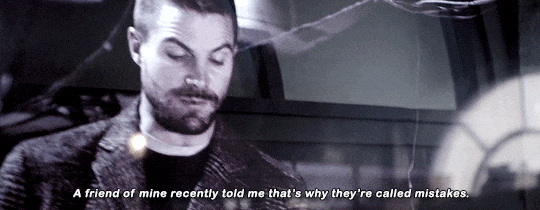
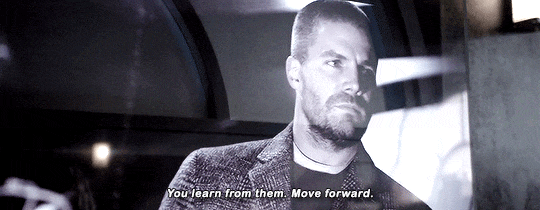
Source: smoakmonster
I imagine Oliver’s new leadership style will be more trusting and democratic, but inclusion only gets you so far. Team Arrow may be the kindling in the Star City fire, but the citizens need Oliver Queen to set it ablaze.
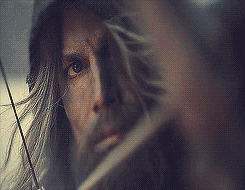
The Team Arrow table is round both in the destroyed present and flash forward bunkers. It gives it a very Knights of the Round Table feel. Everyone can have an opinion and equal say, but in the end it was King Arthur’s kingdom. He pulled the sword from the stone, built Camelot and paid the ultimate price for his dream.
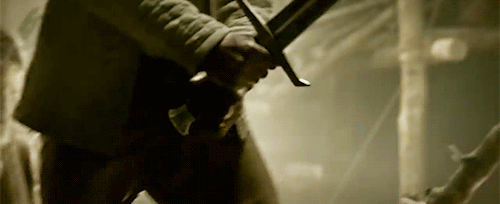
Oliver is King Arthur and Star City is his Camelot – or what he dreams Star City may one day become. He may pay the ultimate price for that dream like Arthur, but ultimately the loss of the hero teaches us the dream isn’t possible without the hero. Oliver may need Team Arrow, but the team and the city will soon discover they need him even more.

Source: ebett
This is something Felicity Smoak has always understood. Her belief in Oliver Queen and crystal clear understanding of who he is has never wavered in seven years. Even when they were separated romantically, Felicity saw Oliver as the man who would save Star City.
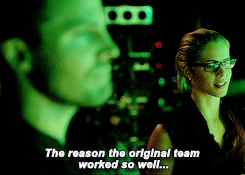
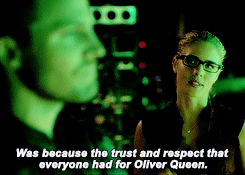
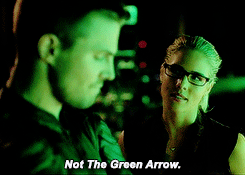
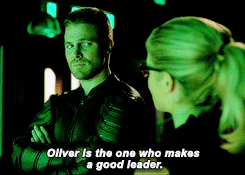
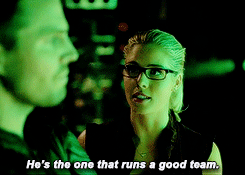
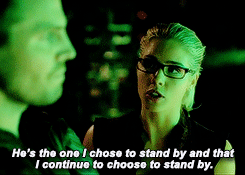
This belief became a compass for Oliver- his North Star. Felicity became the voice in Oliver’s head guiding him on his hero’s journey.
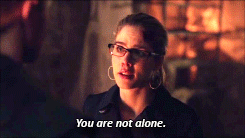
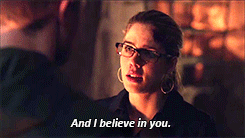
Her belief made Oliver believe and thus became a self fulfilling prophecy.
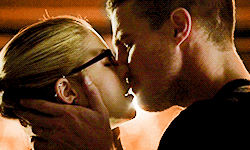
Edward: So what happens after he climbs up and rescues her?
Vivian: She rescues him right back. (Pretty Woman)
There is no Green Arrow without Felicity Smoak and there is no Felicity Smoak without Green Arrow. Each is dependent on the other. Their love is amalgamation of give and take & push and pull. Oliver and Felicity never cease in their pursuit to become their best selves, yet remain a beautiful example of unconditional love, acceptance and forgiveness.
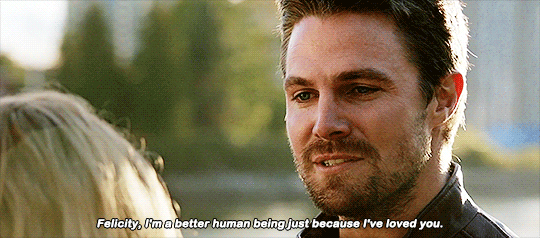
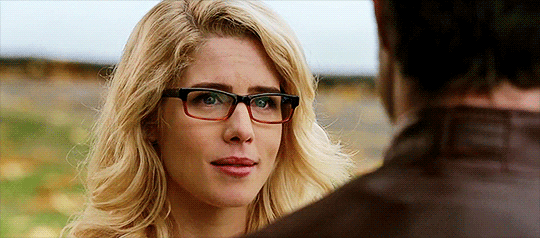
Love changes us and it cements who we are. It is a constant drive of two diametrically opposed forces working in perfect cohesion. We find clarity in the swirl of finding love, falling in love and then settling into love. Oliver and Felicity found themselves in each other. It’s how we all do, regardless of whom or what you love.
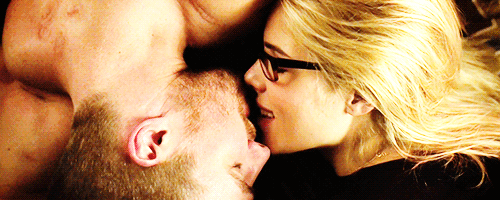
All it took was one sweet and simple smile for Felicity to know exactly who Oliver Queen is.
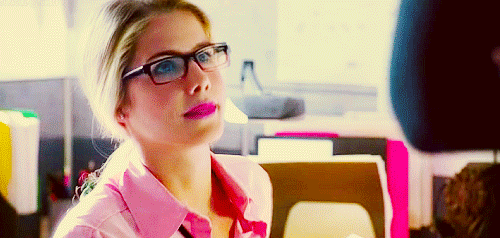
Yet, who is he is equally about who they became together. Felicity saw Oliver’s light because of how brightly hers shined. Their heroic evolution is perfectly entwined.
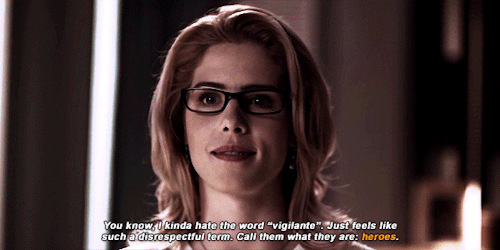
Source: @olicitygifs
So, there is no better person to speak on this topic. The word vigilante falls woefully short. It cannot encompass everything her husband is or what their love has built together. It barely hints at the goodness Felicity saw hiding behind a ridiculous lie and a bullet ridden computer.
Felicity’s interview doesn’t shine a big enough spot light on her own contributions, but I think that’s primarily because she hasn’t been outed as Overwatch to the city. However, she has always been the truthsayer of Arrow and that’s her role in the documentary as well.
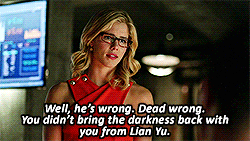
Felicity understands who Oliver is because she is his equal in every way.
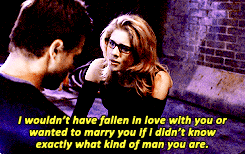
Recognition of his heroism is recognition of hers as well. And someday the world will see everything Felicity sees with unwavering
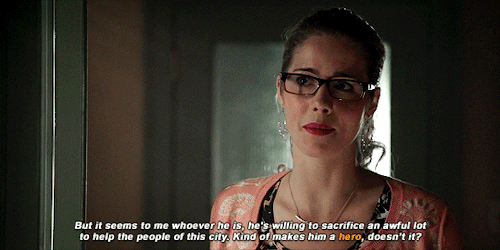
clarity.
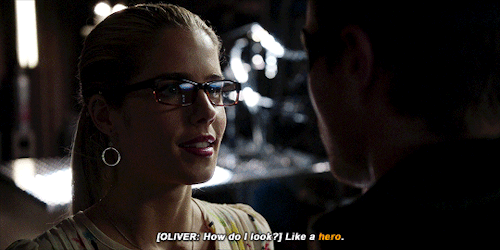
Source: @olicitygifs
Should there have been more of Felicity and Olicity in "Emerald Archer”? Yes, absolutely.
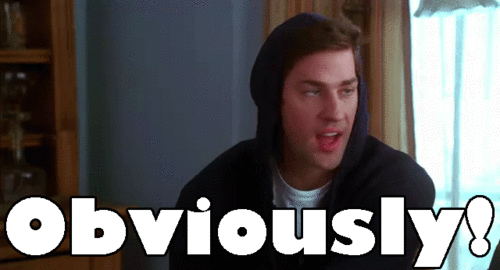
My thirst will never be satiated, but I’ve long since acclimated myself to quality over quantity. This was Felicity as she’s always been. I love whenever this show showcases her ability to cut through the bullshit and shine a light on the truth. The scenes between her and William were the best in the episode too. That said, an Olicity kiss and/or joint interview wouldn’t have killed them.
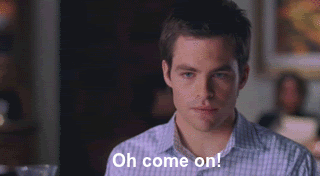
Welcome Back Guest Stars!
A good returning guest star angle works for me 99.999% of the time on any television show. What can I say? I’m nostalgic. Let us wile away the dull hours and spin a tale or two about the days of old.
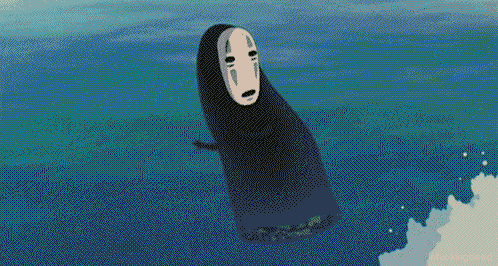
Nostalgia in these types of retrospective episodes can get a little tricky. You need a good reason to bring back five or six actors who’ve left the show and we’ve heard almost nothing from for a few years, particularly the dead characters. Arrow’s documentary film idea for the 150th episode really works for me. It gives a legitimate reason to bring all of these characters back, but not necessarily keep them around. It’s not aliens so right there we’re already light years ahead.
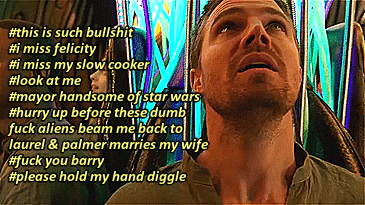
HA! Get it? Light years? Yeah, you might not be laughing now but you’ll realize how funny that is later on.
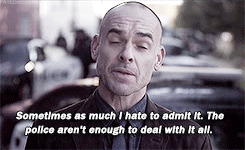
Source: fatedxdestiny
Arrow starts with Quentin and boy is that ever the right call. This documentary is very pro vigilante. It was put on the shelf because Star City became anti vigilante, so who better to advocate for the masked heroes than the man who ran the SCPD for the last twenty odd years?
Quentin was always the touchstone to the real world. He was the bridge between Oliver and the citizens of Star City. He was also someone Oliver wanted to earn the respect of and that’s what he’s trying to do now. He’s trying to earn Star City’s respect EVEN THOUGH THESE UNGRATEFUL TWATS SHOULD ALREADY RESPECT HIM. Even though I believe it was time to let Quentin Lance go, I still miss him and whenever Paul Blackthorne comes on my television screen I cry big baby dumbo tears.
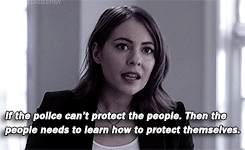
Source: fatedxdestiny
Then we roll right into the reason Oliver began this mission in the first place: FAMILY. Family for Oliver is and will always be Thea Queen. I shrieked when I saw her. I officially take back my “We’ll never see Willa Holland again” prediction. I was happy to be wrong.
Thea being the representative for all her dead family members is the most Thea thing this show has ever done. Kid is a walking poster child for bereavement. I think it’s really important to remember Starling City was a hot mess before Oliver showed up. This city wasn’t hitting anyone’s nifty top fifty places to raise a family. There was a serious cost to all the violence and Thea’s interview is a powerful reminder.
Oliver is seldom given his due. The newbies, Star City, officials, villains, and other superheroes are always ragging on him. But when Thea found out Oliver was the Arrow she thanked him. She was one of the few people who understood right from the start the good Oliver was doing. (Felicity is the other few people).
Oliver started this fight for many reasons, but chief among them was his love for his family. Thea has always returned that love tenfold. She is ride or die for her big bro and even though we had AMAZING Queen sibling scenes in the 100th it’s nice to see them honor their relationship no matter how far away Thea is. They do lose points for zero Queen sibling interaction though.
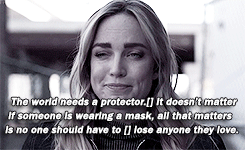
Source: fatedxdestiny
Sara gives one hell of a speech doesn’t she? It’s in a similar vein as Thea’s – reminding Star City of the cost of unchecked crime. She acknowledges it doesn’t matter whether or not a person is wearing a mask. This is a classy way of calling out Star City’s double standard. Honestly, who cares if it’s a cop or a guy dressed in leather saving your ass? What matters is someone stepped up to save your life.
It’s also a nice subtle acknowledgement of Felicity’s contributions. Sara has worn a mask as the Canary and fought without one as White Canary. She knows what matters is a person’s heart and not what they wear. Sara has always understood the importance of the unmasked in this line of work.
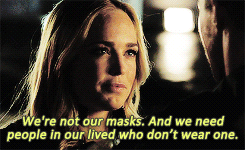
This feels like a not so subtle way of sticking it to anti Felicity fans, but that’s just me.
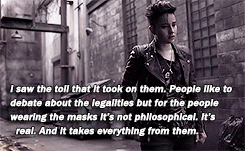
Source: fatedxdestiny
SIN!!!!!!!!!!!!!!!!!!!!!!!! WHERE YOU BEEN BABY GIRL? Honestly, my biggest annoyance with these return guest star scenes is we didn’t get much of an update on where the characters are at. Does Sin have a home now? Does she know Sara is alive? I have questions.
Sin was a fairly minor character in Season 2 and even more so in Season 3, but seeing her brings back all those Season 2 memories.
Memories, Like the corners of my mind Misty water-colored memories
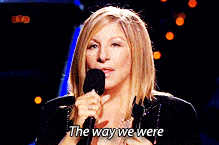
Sorry. Sidetracked by Barbara Streisand.
Again, the use of Sin is brilliant because she represents the people Team Arrow has saved. We spend a lot of time on Oliver’s mistakes. We remember all the people Oliver couldn’t save and how deep those losses cut him. However, we seldom talk about those he has saved and Oliver has saved THOUSANDS – maybe even millions. The man deserves a cookie at the very least. Sin is a box of double chocolate chip.

Oliver is not the only unmasked vigilante – Ragman is too. He’s out doing good, but the people know he’s Ragman. We don’t know if he unmasked before or after Oliver, but I would bet after. Oliver is always the first domino to fall in this universe.
Rory’s interview is super short and is therefore criminally underused. He is primarily used to set up the Star City Slayer. Ragman’s mask is among the first Oliver found. Even the angles on his documentary interview have an artistic/retrospective/forlorn feel to it like we are seeing someone who is gone. I swear to God if this serial killer killed my Rory I am going to light things on fire and throw them. I’m not even sure killing Curtis will ease my pain (but it’ll help).
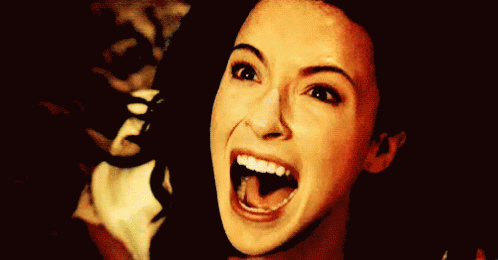
Rory’s albeit short message is pretty simple as is the premise of this show.
“People need help.”
What matters is there are those in the city willing to help the helpless (NAME THAT SHOW). Their methods matter less. Rene, Curtis and Dinah COMBINED still do not compare to Rory Regan. How we ended up with those three louts and lost that beautiful sparkling jewel of a character remains a mystery and still chaps my ass.
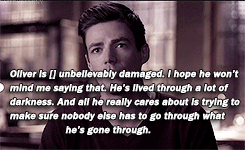
Source: fatedxdestiny
Who invited Bart? I am only tolerating his appearance because he needs to pay his respects, but – UNBELIEVABLY DAMAGED??? ARE YOU KIDDING ME? YOU BETTER COME UP WITH SOMETHING BETTER THAN THAT YOU LITTLE DICKHEAD BECAUSE YOU WOULDN’T HAVE A SHOW WITHOUT THE UNBELIEVABLY DAMAGED OLIVER QUEEN. Oh wait he’s still talking. Rewind... alright, Barry said some nice stuff. I’m better now.
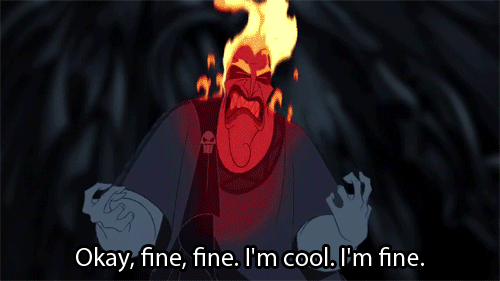
Honestly, just the way this scene played it’s like the writers anticipated all my yelling after “unbelievably damaged.” They wrote the rest of the scene like Barry was reacting to my yelling as he cleaned up his statement. HAHAHA. That’s damn right fool. I’ll come for your ass. You better run.
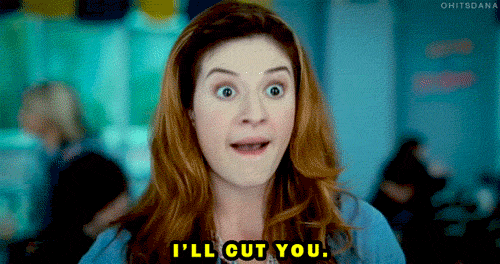
If you’re going to pick a character among the four shows Arrow has launched I guess you go B*rry All*n. It makes a statement about Arrow’s influence on the DCTV universe, which I appreciate for the 150th episode. This was something extremely lacking in the 100th episode. Arrow is the reason a whole lot of people have jobs, so it’s an apropos time to pay due respect.
We’re constantly stuck in this Barry is light and Oliver is dark comparison and it annoys me to no end because I don’t believe either character is that clear cut. Both men have light and dark. But I do love how Barry acknowledges that the darkness Oliver survived also fuels his light.
Oliver Queen is incredibly protective. He doesn’t want anyone to suffer like he did, which includes not only his family and friends but strangers. Oliver uses his pain for good. He finds the light in the darkness, which why I love him so much.
Barry isn’t saying anything Felicity or Diggle haven’t already said for years. However, as the likely pass-the-torch candidate, Barry is commending the essence of Oliver in a way the insanely disrespectful crossover failed to do. Of course, we all know there is a reason for this disrespect – Oliver must be persecuted even by those who “know” him before he can be seen as the Messiah of superheroes.
But we are Arrow fans. We know the truth. We see Oliver for who he truly is and for just one moment, in this 150th episode milestone, the comic f*ckboys’ fuzzy bunny, rainbow puking superhero acknowledged the truth.
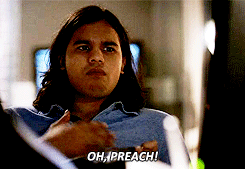
Also his faux shock about Oliver being the Green Arrow was hilarious.
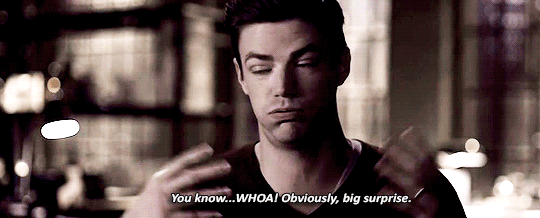
Source: flashallens
Diggle and the Newbies
Sweet holy Moses. There are times this show is so tone deaf it truly blows my mind. It’s sort of like watching Wile E Coyote barrel off the mountain top. Does he see the ledge or does he simply not care there is a ledge? These are my deep thoughts for the day.

Diggle didn’t even know Emiko was Oliver’s sister. That’s where we’re at folks! These two brothers could finish each other’s sentences and predict one another’s movements at one point, but now they are like strangers. Ugh, I hate this. FIX IT NOW.
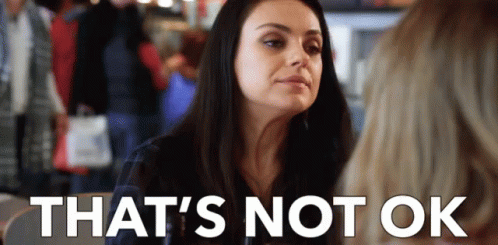
Arrow is going to fix Diggle in an extremely Arrow way. Anyone who has listened to Watchover with Jen & Calli knows this is what we said would happen. The writers are never going to dive deep like I do in these reviews. For one, they aren’t crazy and two it just ain’t the show fam. The Arrow way of fixing a problem is:
1. Pretending it never happened.
2. Slap a bow on it and call it fixed without doing any of the actual character development to earn the moment.
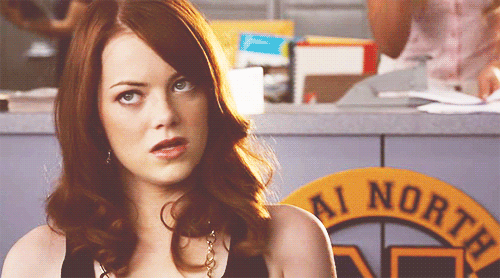
Annnnd that’s what we got. Things are a little tense between Diggle and Oliver. John is put out Oliver didn’t clue him in about Emiko, even though he’s known for about a month. Oliver correctly points out Diggle hasn’t run in his circle for the better part of a year, so he gets the info when he gets it. YASS! PREACH IT SON.
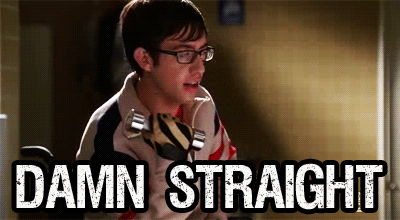
John at least has the good sense to admit what Oliver said was true. He also decides this superhero slayer is too much for the SCPD to handle (isn’t everything though?) and it’s time to get the band back together.
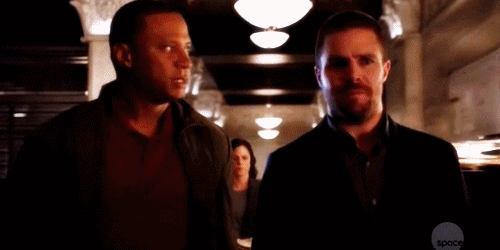
Source: legends-of-today
There’s some back and forth between the two men about the other team members risking jail, but Oliver going to prison never sat right with Diggle.
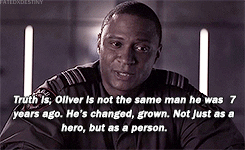
Source: fatedxdestiny
It is good John is acting honorably, steadfastly having Oliver’s back, and just generally dispensing some good old fashioned Yoda wisdom.
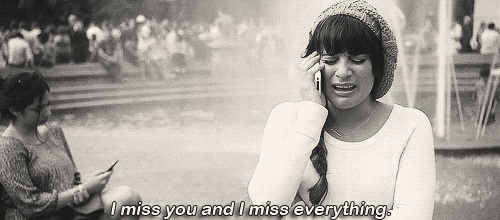
However, he says what has to be the most ridiculous line I have heard on this show in a loooong time.
“Oliver when you were in jail we had each other’s backs.”
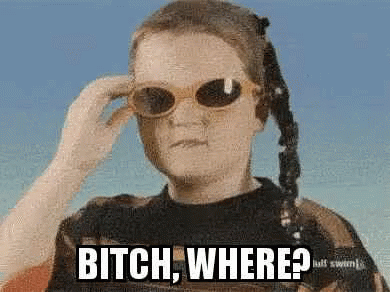
I swear to God I screamed. And then I fell off the chair laughing because NONSENSE.
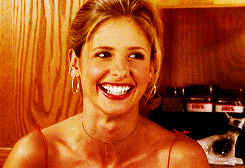
Arrow ignores its own storyline when it doesn’t fit with the goals of the episode. It’s so blatantly obstinate and counter to what their audience wants, hell I almost admire them a little for it.
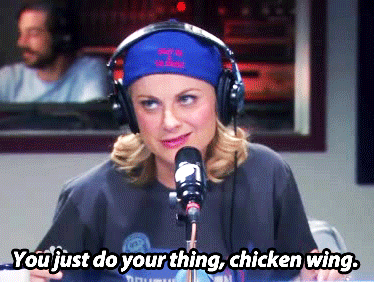
Writers: The storyline is not what you’ve witnessed on screen. The storyline is what we tell you and that will change week to week.
Us: Umm that’s not how television works but okay. Have at it.
Obviously, the writers wanted to reunite Team Arrow in a very “Ra Ra Go Team!” way, but haven’t done any of the leg work so the moment feels earned or makes any sense at all.
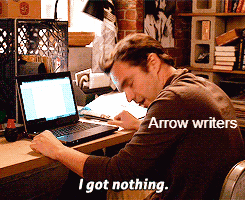
Of course, the team didn’t have each other’s backs.
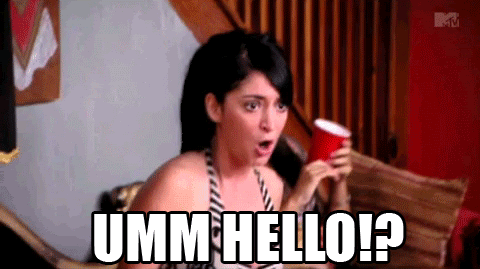
Diggle abandoned Felicity and was upset when any of her attempts to free her husband interfered with his useless A.R.G.U.S. soldiering. His annoyance, admonishments, refusals of help and threats weren’t limited to Felicity. It also included anyone who helped Felicity like Rene, Bl*ck S*ren and Emiko. He also did bupkis to help free Oliver from prison. But okay, you had their backs John.
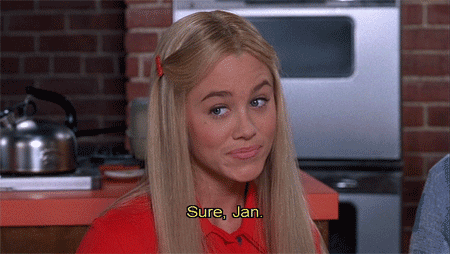
Maybe he’s speaking about Curtis who joined A.R.G.U.S. John seemed okay with Dinah policing. Perhaps he has a highly compartmentalized way of looking at team support. Regardless, it’s a ludicrous statement and is one that makes you wonder if the Arrow writers actually watch Arrow.
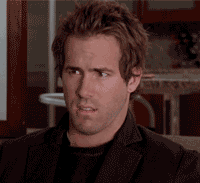
But as I said, we were expecting this because this is typically what Arrow does. Sometimes they force the story even when its counter to everything we’ve seen for weeks on end. That’s what happened in “Emerald Archer.” The writers are done with the team fighting. They want everyone to reunite and rebuild the team, so it has to begin with Oliver and Diggle.
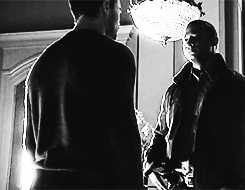
Team Arrow started with the two of them, which is why they repeated their iconic handshake basked in the sunlight. And yes, to a certain extent what Diggle said is true. They are family and families fight, but it doesn’t mean you stop being a family.
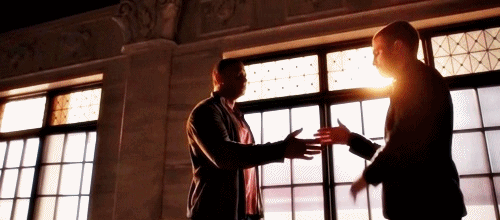
Source: legends-of-today
But you also don’t get to act like a selfish jackass for the better part of a year and then sweep it all away by playing the family card. Families have to work through their issues by 1) being honest about what those issues are 2) talking about the issues 3) and apologizing. The writers missed steps 1 through 3.
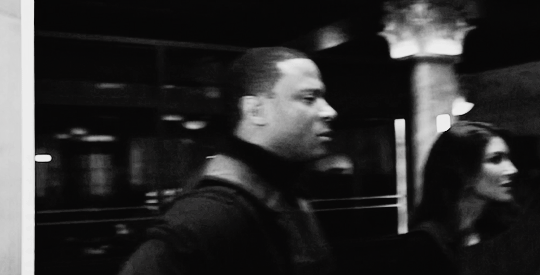
The scene felt like Oliver was apologizing to Diggle when really it should be the other way around. When did this become about Oliver’s mistakes and not John’s? Am I watching the right show? Let’s not forget in the midst of all this bromance healing the one who really needs an apology is Felicity.
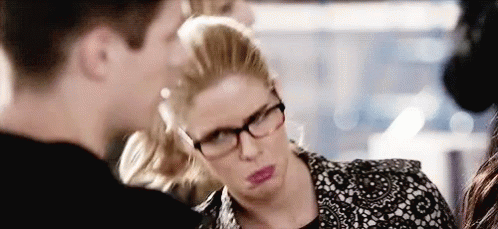
I’m not too mad because I don’t think this is the end of the conversation. I think Arrow put the cart before the horse and reunited Oliver & Diggle before they actually dealt with their issues, but what else is new? They decided it was time for the reunion because it was the 150th episode. Uhhh... okay then.

It’s entirely possible additional conversations are coming though. Hopefully ones including Felicity. Diggle still has to confess about Diaz, which he was about to do but was interrupted. It should drop a bomb on OTA and kick up some very much needed, no holds bar, come to Jesus style drama. We have ten episodes to go which is a lot of season left. I haven’t given up completely on Diggle’s arc for this year.

But also, I’m tired y’all. If they aren’t going to examine John’s actions with a modicum of reflection then I’d prefer for it to be over as quickly and painlessly as possible because this is terrible storyline. I’m sick of Pod Diggle. I miss his friendship with Oliver and Felicity. I hate whatever the hell he’s doing at A.R.G.U.S. I’m tired of everyone doing their own thing. I miss OTA. I want the show to go back to vigilantes hunting bad guys.
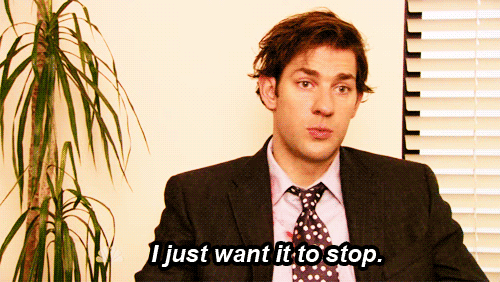
And yes, that goes for the Newbies too. They aren’t going away – well two of them aren’t. Arrow is completely ignoring all of their horrible behavior in Season 6, so fine. They will never resolve this storyline to my satisfaction so let’s just be done with it. Does the reunion fall flat because Arrow refuses to deal with the consequences of the Newbies’ actions in a truthful way? Yes. But I can’t care more than the writers do. So, I’m done. Moving on.
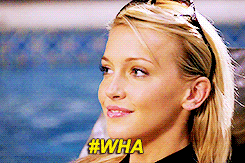
This will not preclude me from snarking however. Nothing ever will stop the snark. Dinah and Rene were in rare form in “Emerald Archer.” Both were pretty snotty.
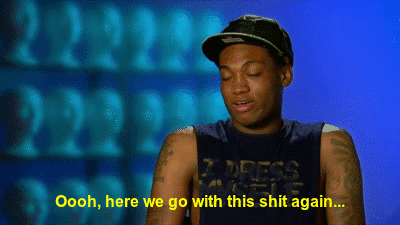
I actually liked Rene’s interview, but then he has the nerve to cop an attitude with Oliver. Apparently, Oliver didn’t fawn over Rene enough. This is their first conversation since Oliver’s release and Rene is bitching about Oliver not asking how he is. FOR REAL???? There is only one person who should be asking how the other is doing and it’s the one who turned state’s evidence.
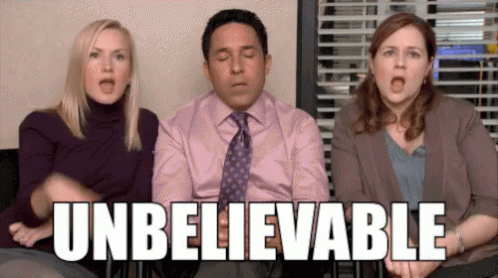
He’s also annoyed Oliver has gainful employment with the police department while Rene “I Can’t Go Down That Road With You Hoss” Ramirez is left out in the vigilante cold. POOR BABY. Maybe if you hadn’t sold Oliver out to the feds the team could have stayed together.
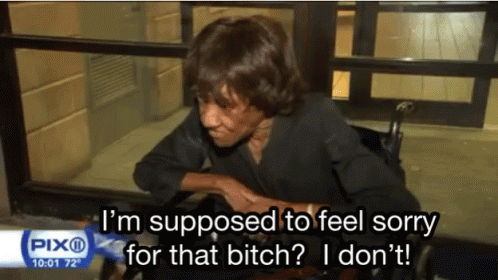
Dinah cops an attitude as well (pun intended). Oliver is about to share deeply personal information with her and admits he’s had the information for some time. Dinah says it’s par for the course with him. ANY NEW SECRET BOYFRIENDS DINAH? I do not know where the Newbies got the idea they were on the moral high ground, but this horrific writing keeps perpetuating that myth. For the love of God writers REWATCH SEASON 6.
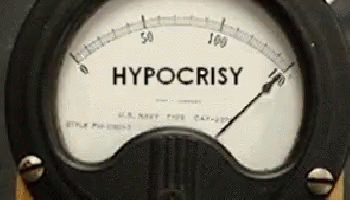
On to happier developments.
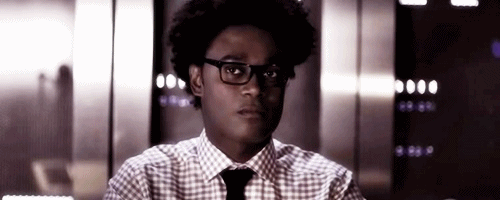
Source: legends-of-today
Curtis called Oliver a hero, had a cool moment with his T-spheres and remarked about being a team “even if it was for one last time.” Cue close up and Oliver looking fondly at him as if Curtis was already a ghost. Of course, he’s talking their impending jail sentences for breaking the anti vigilante laws, but we know different. CURTIS IS GONNA DIIIIIIIIIIIE.
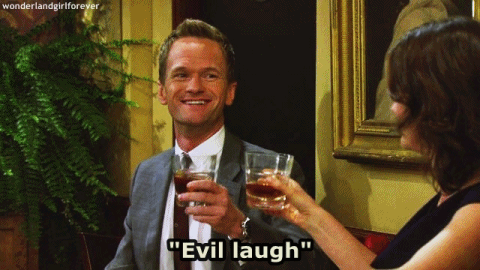
I was supposed to be pressed when Diggle, Curtis and Rene were arrested, but they all were annoying me so they can go to prison.
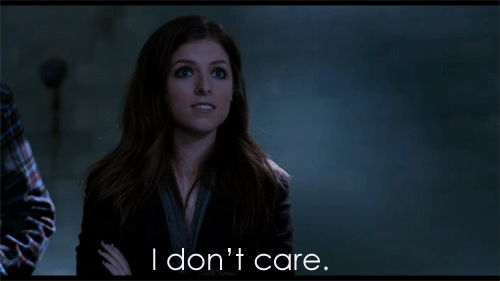
Finally the show does away with one of their more ridiculous plot holes. The mayor deputizes all of Team Arrow so they can fight crime in leather, but legally. Did she not see all the other times Team Arrow saved lives? They are only worthwhile if they are saving her life? They are friends with the DA too. BS is not going to press charges. So, why even have a law the DA won’t enforce? You know what? I’m not even gonna go there. Whatever.
It took Dinah several episodes to show some loyalty, but she was prepared to resign if her friends went to jail. Of course, Oliver “I’m Trying To Be Jesus” Queen puts his head on the chopping block again for these dinks too.
“After speaking with my family, I’m here to turn myself in.”
YOU SEE HOW EASY THAT WAS OLIVER? NOT SO HARD IS IT BIG BOY? THY NAME IS CHARACTER GROWTH!

Here’s something I’ve been mulling over. Clearly some of the Newbies are here to stay and a great deal of the 150th episode was devoted to this concept of legacy.
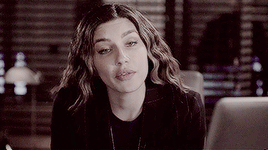
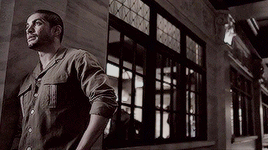
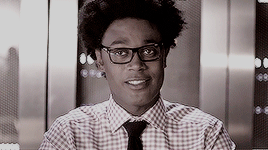
Source: 1-crazy-dreamer
These characters exist so what Oliver has built can live on beyond him. It doesn’t automatically equate to Dinah, Rene and Curtis being good characters, but Arrow is incredibly invested in the idea of Oliver Queen’s legacy.
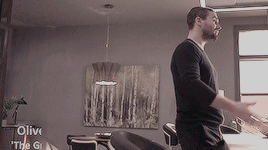
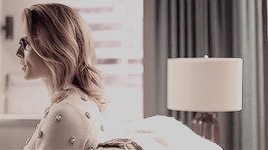
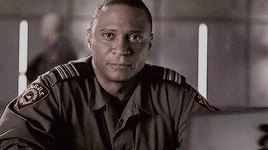
Source: 1-crazy-dreamer
We want the show to be about Oliver, Felicity and Diggle. They want the show to be about more than Oliver, Felicity and Diggle. And thus an immovable force meets an unstoppable object.
The problem is Arrow, once again, is putting the cart before the horse. They are focusing on Oliver’s legacy (and all the superhero characters he’s launched), but he hasn’t achieved what he set out to do. Camelot doesn’t exist yet! Oliver’s legacy can’t be built until the dream is achieved. There’s still work to be done. We need to focus on Oliver, Felicity and Diggle before worrying about the next generation. I wish Arrow could do both at the same time, but they can’t.
Do I think we’ll ever get that kind of focus? Nope. Arrow is committed to these new characters and their definition of legacy. It is what it is my friends. Either I make my peace with it or turn the channel, I guess.
Flash Forwards
Blackstar’s name is Mia. I couldn’t be happier.
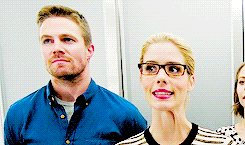
I still think it could be a nickname for Moira, but they aren’t going to cough up that golden nugget yet. Obviously, yes all the comic f*ckboys are going to think she’s Mia Dearden and Oliver’s ward. Go ahead and keep thinkin’ that. We’ll see who lands on top.
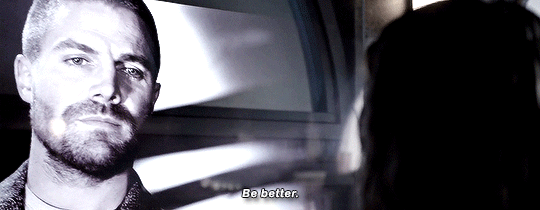
Source: smoakmonster
Mia obtained a bootleg copy of the outlawed vigilante documentary and she practically bored holes into the television watching her father speak. There is no other reason to shoot the scene like that, with Oliver reflecting in Mia’s eyes, if she’s not his child. The shot clearly communicates a connection to OLIVER. She wants to find the location of Team Arrow’s bunker and the video provides the necessary clues.
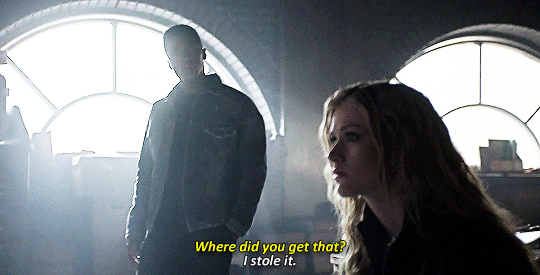
Source: amunetblack
JJ, Diggle and Lyla’s son, makes his flash forward debut and he tags along with Mia. I felt a protective vibe from him. I think Mia gets into trouble all the time and JJ tries to keep her out of it, but absolutely they are ride or die. I may have been picking out wedding dresses for her during the scene. If Arrow does not put Diggle’s son and Oliver’s daughter together and make OTA in-laws then it is a crime against humanity.
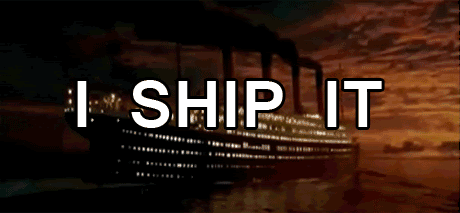
I don’t know why JJ is going by Connor Hawke. He adopted the moniker in the Legends alternate future because he didn’t feel worth of the name John Diggle Jr. Frankly, I think Connor Hawke is a code name similar to Blackstar and the sole function of it is to make us think John is dead. But we know Diggle is alive because David let the cat out of the bag. *blows kisses to that beautiful man*
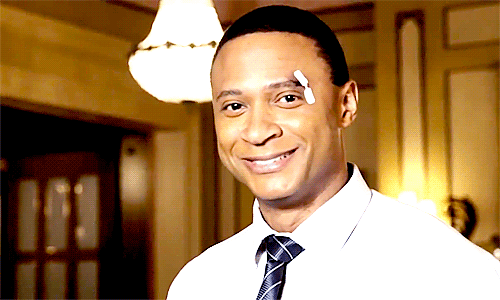
Mia hates vigilantes because the vigilante lifestyle stole her father and childhood. Simple is that.
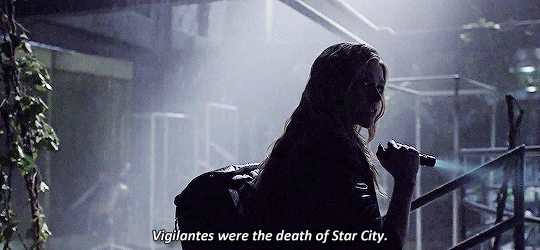
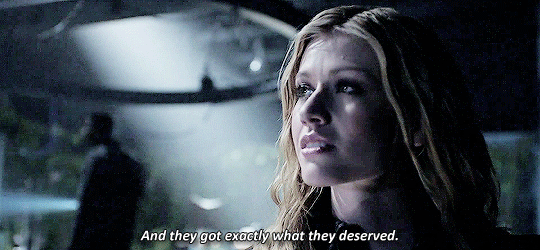
Source: amunetblack
I don’t have all the answers yet. I don’t know what happened. I don’t know how the Queen family was separated. I don’t know why William doesn’t know his own sister, but I certainly wasn’t expecting Mia to call Oliver “Dad” anymore than she would call Felicity "Mom” at this point. Answers lead to more questions and I am perfectly content with Arrow revealing the truth when they are good and ready.
If you refuse to believe Mia is Oliver and Felicity’s daughter, fine. If you are convinced she’s Bl*ck S*ren’s daughter, fine.
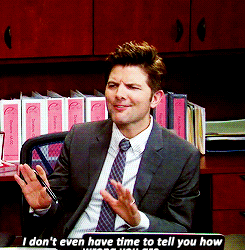
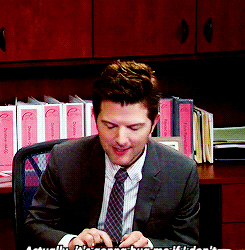
There is literally no evidence they hired the lead of Shadowhunters to play a supporting character’s daughter, but go off I guess. And no, Oliver is not cheating on Felicity with BS. Take that nonsense somewhere else.

They held off on introducing JJ because Diggle is one of the three main characters, but sure they’re keeping Bl*ck Si*en’s kid a secret. Not Oliver and Felicity’s kid, ya know, the characters who are the male and female leads of the show. Nope. Bl*ck S*ren’s daughter is the big surprise.

It doesn’t automatically make them mother and daughter simply because Bl*ck S*ren was singing the anti vigilante party line and Mia hates vigilantes. By that logic, Diaz, Quentin and the Mayor all have a shot at Mia being their progeny. If BS was as anti vigilante as she said then she would have pressed charges against Diggle, Curtis and Rene. She didn’t. Thank you. Next.
My point is I am convinced she is their daughter. Every episode just adds more evidence. My belief is unwavering. You won’t convince me otherwise, so save yourself the energy. You believe what you want and I’ll believe what I want. Then we’ll see how it shakes out in the end.
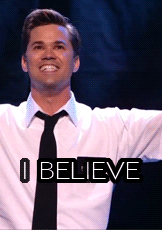
Stray Thoughts
Director Pedowitz might be one step over the meta line, but also hahaha.
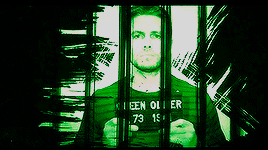
Documentary intro was sweet. Can we make that the permanent one? Source: 1-crazy-dreamer
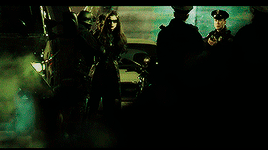
Did they reshoot old fight scenes for the documentary? That feels like a lot of work. I wonder if it was film they had on hand but didn’t use from the old episodes. Either way it looked legit and I was impressed. Source: 1-crazy-dreamer
Slightly odd how Oliver or anyone else on Team Arrow never mentioned they are being followed around by a camera. That’s just details. Imma let it go.
It is official. Star City knows Oliver is the Hood, the Arrow and the Green Arrow. We can stop debating. This means these thankless twiddle twits know he saved them from Merlyn, Slade, Ra’s Al Ghul and Damien Darhk. HOW MANY MORE TIMES DOES HE NEED TO SAVE YOUR SORRY ASSES TO GET SOME RESPECT?
Why does no one ever remember the undertaking on this show? Moira Queen admitted to a long term plan, led by Malcolm Merlyn, to destroy the Glades. This plan was hatched while Oliver Queen was on the island. No wait BEFORE the island. There was a freaking trial! How the hell does this make the Undertaking Oliver’s fault Madame Mayor?
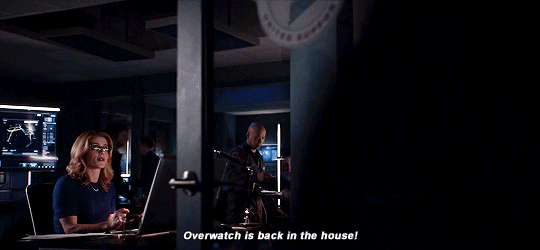
Overwatch is back and the world makes sense again. Source: arrowdaily
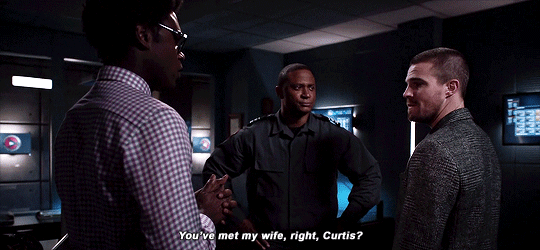
Oliver shading Curtis with Felicity's superior abilities is LIFE AFFIRMING. Source: olicitygifs
Bl*ck C*nary fighting looks equally as ridiculous on documentary film as she does on regular film, so that question is answered and we can go on with our lives.
I really can't listen to Bl*ck S*ren pretending to be E1 L*urel Lnce. It's too annoying. Zip it fishnets.
I can’t pin point what “season” Thea’s interview was filmed during and it’s kind of bugging me, so hit the comments with your guess.
I’m not talking about Diaz. I cannot even believe they included him in the documentary. He’s gone here for a minute.
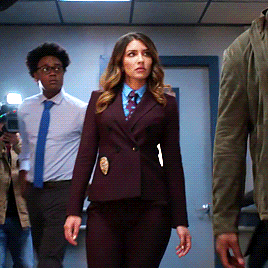
Didn’t love the Annie Hall look on Dinah. Misfire. Source: redfield5x5
One of the reasons why writers choose to film a faux documentary is so their characters can constantly tell the camera operator to turn the camera off. It’s a trademark of the trope.
“We need to come up with a better name immediately.” PREACH IT SON.
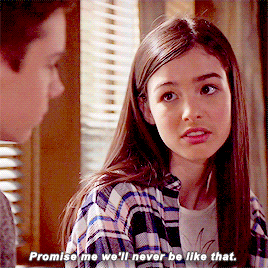
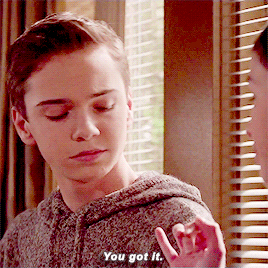
Baby William and Baby Zoe making friends is adorbs. Rene is all worried William is gonna make a move on Zoe. First of all, they are like 14. Calm down. Second of all, William is a short stop for the other team, but feel free to twist yourself into a pretzel Rene. The wasted energy will amuse me enormously. Source: feilcityqueen
This serial killer seems to collect masks regardless of whether or not the vigilante is actually dead, so I’m holding out hope Rory Regan is alive.
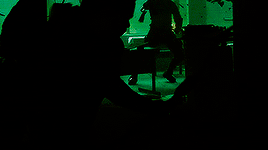
The documentary film shots of the fight scene were AMAZING. The last action scene was pretty sweet. It was nice seeing the team work together cohesively again. Source: 1-crazy-dreamer
I know I’ve said this before but Rene and Emiko are so happening.
“Fans have a strange way of showing their affection.” Oh yeah this guy was a hired gun by Stan the Fan. Kevin Meltzer was recently released from a psychiatric hospital which I am sure Stan has seen the inside of a time or two. No way is that line a coincidence. Or it’s a commentary on fandom. One or the other.
I had no idea Dinah’s vigilante identity was still secret.
Hahaha. Rene didn't know Emiko was related to Oliver. He's the new L*urel. I just decided.
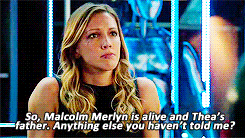
Bl*ck S*ren agrees to give an interview for the documentary, but later on acts like she didn't agree to be on the documentary and threatens the camera operator. Yeah, that sounds about right.
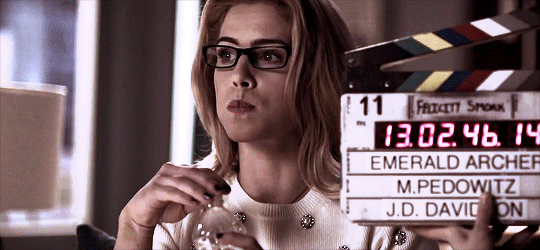
This cupcake owns my heart. Source: ebett
Disclaimer: Any gifs on the blog are not mine. If you would like a gif removed from my reviews, please message me. 7x12 gifs credited.
If you’d like to support the blog, please buy me a cup of tea!
#arrow#arrow 7x12#arrow 150th#arrow reviews#olicity#queen family#oliver felicity and william#oliver felicity diggle#ota#original team arrow#nta#anti newbies#anti black siren#anti john diggle#felicity smoak#oliver queen#william clayton#arrow season 7#arrow season 7 episode reviews#arrow season 7 episode review#season 7 episode reviews#arrow spoilers#sara lance#cindy simone#rory regan#quentin lance#anti barry allen#season 7 episode review
118 notes
·
View notes
Text
✕ — wasn’t that raven darkholme wandering the streets of new york, 1973? civilians know them as mystique and see them as a villain. as far as i know, the one hundred and fifty+ year old stands with the x-men (sometimes), and are rumoured to be pretty deceptive & misanthropic. ( julianne moore / gender-fluid / typically she/her )
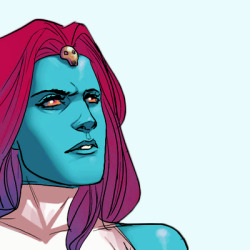
{ trigger warnings : mental illness, suicide, sexual abuse, drugs, terrorism, murder }
hey everyone, i’m sophia!! i’m trash and neglected the intros for all my babies soooo i’m finally getting to them now!! anyways, i’m super excited to be here at 1973hq & i hope we can all be good friends!! <3 sooo. more about my first baby aka my murder!baby under the cut
LEVEL 1: INTRODUCTORY INFORMATION ABOUT MY MYSTIQUE //
im not even gonna touch the mceu version of mystique ok thx therefore shes gonna be combination of comics mystique and a bunch of my own headcanons — soooo
LEVEL 2: SURFACE LEVEL MYSTIQUE — THE GOOD, THE BAD, THE UGLY //
( skip this part if youre familiar with the mcu its basically a shortened version of her bio )
the binch is oLD ok??/ old af. probably several centuries old. i’d say 200 years old at minimum but its never really been disclosed
don’t even get me started on wtf i think happened to her to fight just to survive at age 12 when her mutation kicked in bcus,,, yike
her entire life has been characterized by betrayals. whether it be mystique betraying someone else (most likely) or her being betrayed by someone else (in the case of destiny)
her n destiny met in the early 20th century. destiny asked her to help decode her prophecies and to stop the terrifying ones from being fulfilled. they fell in Luv. they are partners. gay ass partners. (the original idea for mystique n destiny was for nightcrawler to be their canon kid. via mystique in a males body. but this was retconned bcus of homophobia thx but i’d personally love this hc if we get a kurt & it’s ok w/ them anyway )
anyway after ww2 she met sabertooth n had her first (canonically recorded) kid, graydon. who. lo n behold, she abandoned.
that’ll be a trend, fyi, better watch out for that
but graydon turned out to be a mutant hating human so thats fun
then mystique from our time went back in time in attempt to assassinate graydon (which doesnt, in the end, work),,,, also fun
then she gets married to a wealthy german count,,, uses her power to start seducing other people, when she meets azael who manipulates and seduces her. has nightcrawler via azael ,, its cool
raven murdered her husband and was then regarded by her townsfolk n as a demon. she escaped but abandoned kurt,,, also cool
she adopts raven then. and actually genuinely loves her. (more on this in the next section)
she founds the 3rd version of the brotherhood n they do more terrorist shit good job mystique #magnetowasright
sike mystique betrayed magneto and turned him into the government, turned the brotherhood into the freedom force, n started working for the gov. working for freedom force is when destiny died and that triggered one of mystiques many breakdowns (also more on this below)
she was v depressed at this time and taken advantage of by the shadow king. raven let herself be brainwashed by the government into thinking she was her own government handler to take down the shadow king. didnt work. he torments her the rest of her life. yike.
she had nanotech put into her head so the government could force her to work for x-factor, while with them she finds out destiny during their partnership had other partners and kids she didnt know about and one was a mutant
graydon has this mutant savagely beaten. before mystique can kill graydon for this, hs followers kill him n turn him into a martyr. super fun. cue operation zero tolerance.
mystique went undercover as the senators wife for a while n used her connections to the fbi to do shadier shit
she then ran away and took some random chicks form and became a model and made a ton of cash — u go girl
except this kinda sucked for her because she moved into a penthouse suite which in the neighbouring building had skulls plotting to take down mankind. they framed her for a murder, her powers stopped working, n she was arrested
the government eased all her alternate identities and froze all her assets and access to the money she and destiny saved up for decades. cue another mental breakdown
then she finds out destiny was responsible for founding the anti-mutant conspiracy mystique spent her whole life trying to stop, and that destiny also didnt give medical attention to mutant kids who were deformed from their mutations
long story short she has an even worse breakdown n goes completely nihilistic, realizing she cant change the world for the better, she remakes the brotherhood and impersonates moira mctaggert to get her research on the legacy virus
a bunch more shit happens with raven ending up in the care of homeland security. xavier makes a deal with her and breaks her out. everyont thought she tried to kill xavier,,, when she didnt actually,,, because xaviers a shady fuck,,, but oh well. rogue disowns her for it. leads to another mental breakdown.
because of this she decides fuq u xavier and creates a mutant kid identity for herself known as foxx and joins the xmen to stop rogue and remy’s relationship
she helped the x-men during this time n also helped save rogue’s life via the messiah baby. but once again her intentions are misconstrued
she snaps again and impersonates bobby drake’s girlfriend & gets the poor boy hospitalized
norman osborn then recruited her to the dark x-men, injected her with nanites, then helped logans soul to hell, but then changed her mind and helped get him back. when he got back tho he uh. well. killed her. her and sabretooth were both resurrected by the hand (more on this later)
mystique then rejoined the brotherhood, impersonated alison, and took her place as mutant liaison for shield, harvesting her DNA to make MGH (mutant growth hormone)
LEVEL 2.5: MYSTIQUE’S PLACE IN THIS VERSE
i imagine she went back in time to 1973 under the guise of helping people & being “reformed” but in reality she was also doing shady mystique shit on the side and probably trying to tie up some loose ends, whether it be with graydon, the shadow king, destiny, or someone else. or probably a combination
anyways now shes staying w/ the x-men part time and playing Good Girl for now. she wants to show everyone that shes reformed n better n just wants to do things for the betterment of mutant kind. wants 2 get their trust too
shes pretty. level headed right now i’d say. betsy braddock helped her during one of her mental breakdowns by telepathically realigning her fragmented psyche — she’s still mystique n still awful but not as chaotic anymore. and less prone to attack rogue or other people aimlessly. it’s much more goal oriented now.
LEVEL 3: MYSTIQUES PSYCHE //
ok so she identifies as gender fluid bcus she shape shifts forms but also because i imagine shes so sick of having sexualized herself all these decades to get what she wants that shes just fed up with gender norms and thinks theyre bullshit. she’s fine to go by she/her pronouns but she doesnt really identify as a specific gender in my head
she drinks but mostly absinthe and only w/ people she trusts. along those lines it’s similar for drugs but she loves a good high and a good hallucination
she has bouts of psychosis that her wiki defines as schizophrenia. it manifests in much more anger and aggression. hallucinations. delusions — especially presecutory and grandiose delusions — lack of pleasure (hence the nihilism), social withdrawal, and poverty of speech. her sense of identity becomes so fractured that she cant keep herself consistently in one body without it taking all of her concentration — and sometimes that isn’t even enough. she gets lots of mood and cognitive changes during these episodes — and completely loses her sense of self
despite her grandiose ego she’s actually very self conscious and refuses to look in a mirror. actually she’s scared of her appearance. she cant look at herself normally in fear of seeing a monster look back
this is also the reason she was so easily deceived by azael. he looked like a monster, too, and embraced her for how she is. he didnt make her change to fit another appearance that couldve been “more beautiful”
lastly, her motives for doing things??? are always for the betterment of mutantkind. over time this got very skewed and her belief became that the only way for mutants to actually live is for all humans to die. shes a terrorist through and through, but she loves mutants. she just has a personal vendetta against the x-men that’s grown over the years — her constantly being betrayed by people during her episodes of psychosis and the x-men never actually believing the real story (but also like. why would they??? shes often so awful too)
shes attempted suicide canonically in the past. she loses control of herself. it’s also heavily implied she’s been assaulted in the past. anyways shes a sad baby too
— so thats about it for my murder baby! yike this got a lot longer than i expected it to but anyways i cant wait to write her with all of you!! <3
8 notes
·
View notes
Note
What would you think if Varian was killed off in the series? Personally, I think if he was to be killed off, it should be a redeeming death. One where he saves another character’s life, but it shouldn’t be depicted as that character being utterly helpless. They’d probably put up a fight with nervous determination, but Varian would still futilely throw himself down to save them even if he obviously has no chance.

Sorry, I just- Uh-uh.I can’t even consider that as a possibility. I would NOT be cool with that, not in the slightest.
And it’s not just because I love Varian (even though, obviously, I do), it’s mostly because I just…I think it would be a bad move. For a multitude of reasons:
A.) (Possibly the biggest reason-) It would be a cop-out of him having to take responsibility for his actions. He’d become like another J.D. from Heathers; tries to kill everybody, and then when he realizes he was wrong, becomes a martyr in an attempt to fix it. That would be brutal misuse of his character.
B.) It wouldn’t make sense for him to be in that positionVarian’s key strengths are his intellect and his alchemical prowess. If he and the main gang do team up (and I truly believe they probably will, given the foreshadowing in QFAD), I don’t think it’s going to be by throwing himself in front of an opponent. He’s not a frontlines kind of fighter, he’s better behind the controls. That being said, it’s possible he’s gained some combat skills over the time they’ve been separated. I could see him possibly saving someone else’s life, thus cementing his position as a reformed ally and regaining their trust, but I don’t think he’ll be killed-off in the process.
C.) Generally when a show decides to kill-off a character for emotional impact, they’ll pick one that plays a pinnacle role either in the series itself, or in the life of one of the main cast. (See: Stoic in HTTYD2) Or, one whose character arc would be brought full circle through this action. (See: Jet in ATLA)
Since Varian is currently still an antagonist, and wasn’t particularly close to the main gang before QFAD, they’d first need to spend awhile rebuilding his connection with the group. It wouldn’t make sense for him to just turn on a dime to protect someone that he has already tried to kill once, himself. If he was willing to do it then, after only a few days of planning, he’d only be more willing to do it after approx. 2 years (give-or-take.) There needs to be a definitive reason for him to put his life at risk.
Varian also doesn’t really stand to gain much in terms of character growth via death. Giving something up, maybe, but not flat-out dying. Unlike Eugene/Flynn in the original movie, Varian is not an inherently selfish character. He’s already shown that he’s willing to go to extremes to save the people he loves (i.e. his dad and his entire village.)
The only way I could see him sacrificing himself is by calculated choice - one person has to do some dangerous stunt in order for everybody else to be saved, and he decides that if anybody is going to do it, it should be him. ‘Cause that’s the kind of thing he would do (though this is also something that I could see Cass doing.)
But honestly… even though I adore Varian with my whole heart, I don’t really want him to be the martyred hero???
Raps is the heroine of this story, Varian’s part is yet to be determined. I’d rather him live to make amends for his actions, I want to see him grow as a character.
If they do end up pulling a “dramatic death” with him at all, I think it will probably be a fake-out. Something like the “Hiccup narrowly gets burned alive” type of tease. But then Rapunzel, Eugene, or someone else will be there to rescue him (sort of bringing the whole QFAD fiasco full-circle.)
And then when he comes to/heals/what-have-you, he’ll still have to face the elephant in the room: that it was never Rapunzel’s fault and he never truly blamed her for any of it so much as himself.
There are, admittedly, a few character deaths I could see happening (assuming they even have one) but Varian just doesn’t seem like a good choice to me.
Just to clarify: I’m not saying it WON’T be the case, because we really don’t know that as of yet, but - for the reasons stated above - I personally hope it isn’t.
#I'M SO SORRY THIS IS SO LONG I TRIED TO SHORTEN IT AH#I hope you know - I'm not trying to squash your idea I swear. I just don't see it happening in the series. In fanfics? Go for it!#varian#asked and answered#character analysis
31 notes
·
View notes
Text
I’m beginning to develop belief in a secular/existentialist edict of not worshipping false idols...and by “worshipping false idols” I mean “chasing after something because you believe that it will save you”.
I’ve also been reading a lot of r/MarriedRedPill lately, and I promise this is relevant, just bear with me for a second.
Married Red Pill is a bit less frothing-at-the-mouth bleak and misogynistic than the other Red Pill communities, because the men in them, for the most part, want to remain married to their partners and have healthy relationships that are not utterly sex-based.
They’re often very sexist people who are programming themselves to become more manipulative, and it is still toxic, but they have limits. They want to set a strong example of a healthy relationship for their children. They want to get physically and financially more strong. The want to reduce the number of fights in their marriages. They want to reduce the amount of anger they display. They’re still pretty fucked up people, but they’re not sociopaths, so it’s a bearable, interesting read.
Anyway, in the Red Pill world, there is this concept of not having covert contracts. A covert contract is behaving in a particular, usually self-sacrificing way, with the unspoken expectation of a reward. When this (unarticulated) expectation of a reward is left unmet, it foments resentment. For example, being a “nice guy” in the hope that a woman will sleep with you is a covert contract. One guy on Married Red Pill realized he was creating a covert contract by offering to massage his wife, hoping it would turn into sex immediately after. A bunch of guys shot him down for that right away.
“Give her a massage if you want to give her a massage,” one commenter said. “But don’t do it because you want it to turn into sex.”
This is actually pretty healthy advice. Don’t go around offering to do things, or sacrificing things you don’t actually want to sacrifice, with the hope that it will magically pay off via some outcome or quid pro quo you didn’t even have the courage to ask for. Don’t undermine your own desires by doing things you don’t enjoy, simply because you hope you’ll get something you do want.
This is kind of advice is partially why toxic environments like Red Pill and Men Going Their Own Way attract and take hold of so many people. A shred of their advice is actually psychologically rooted, and useful. If you don’t want to feel like a pathetic, manipulated beta male (ugh), stop being self-sacrificing and resentful.
Do the things you actually enjoy. Articulate the desires you actually have. Don’t make yourself a martyr doing things nobody asked you to do. That is genuinely useful, empowering advice for anyone. It kinda blew my mind to realize these sexist, neanderthal communities dealt in this kind of logic. It’s actually anti-manipulative advice. Kinda blew my mind. I’m writing an essay about it, but that’s for later.
Anyway, this deep dive into the Red Pill world has got me thinking, hilariously enough, about instances of covert contracts in my own life. Usually it’s not as simple as offering to give someone a massage hoping they’ll roll over afterward and bang me. I mean, sometimes it is that simple. But usually it’s larger, and more amorphous. If I am nice to this person, will they agree to help me later on? If I go to this person’s birthday party, will they go to mine? If I listen to this long, irritating story, for hours at an Olive Garden, will this person be there for me when I’m feeling depressed? If I do this work, complete this project, have this hilarious charming social media platform, and never ask too much, will people make me feel loved? Will I be saved? Will somebody save me? Will this degree save me? Will this piece of writing save me? Will the approval of this group of people save me? Will this job save me?
It never pans out. The person I spend hours listening to is rarely available to listen to me when I need it. The social groups that I pour hours of patience and effort into do not necessarily have the ability, time, or interest in pouring time back into something I care about. Birthday party attendance is not a quid pro quo. Getting likes on a Facebook post doesn’t mean I’m actually beloved by anyone. Being the best little hard working, money saving, creatively productive, uncomplaining little angel doesn’t mean people are going to love me. When I give up time, effort, patience, and emotional energy that I don’t genuinely want to give up, I’m just hurting myself.
I should only do these things if I genuinely want to, and find them rewarding in their pure form. I shouldn’t do them because I see my effort as investment to be cashed in later. That is not gonna happen.
And many times, my little “covert contracts” have nothing to do with an individual person. I make covert contracts with the entire universe, with my own mental health, with my identity. If I just complete this dissertation, I will love myself. If I always look presentable, I won’t feel insecure in public. If I am a good enough activist, people will admire me and respect me. If I write something beautiful enough, I won’t ever feel like my life lacks meaning again. If I do a great job in this show, I won’t feel alone or disconnected from other people ever again. If I express this part of myself more fully, I won’t have to deal with this other part that I hate.
I’m not actually naive enough to believe such absolutes, but a lot of times there’s an implicit, unspoken expectation of reward lurking in the back of my mind, and I have to find it and excise it before I end up disappointing myself. There is no being saved. No friend is going to always be there for me. Having a relationship doesn’t change or fix anything about me. Being productive isn’t going to save me. Being creative isn’t going to save me. Being easy to deal with isn’t going to save me. Being funny online isn’t going to save me. Nothing is, nothing is, nothing is ever going to save me, there is no being saved, there is no feeling right and loved and special all the time, or even all that often. I will never get to cash in on the pain I choose to endure for no good reason other than feeling like a martyr. There is no great reward waiting a few steps ahead. There is no being done feeling lonely or lacking.
The solution to this is not apathy. There is such a thing as moving *closer* toward feeling well, and loved, and accomplished, and happy. I know that because there absolutely is a way to feel more bleak, more alone, more hopeless than I do. It’s like identity, in a way -- there is no pure, unalloyed “authentic” self that we can fully actualize, but there sure as hell are false selves that feel wrong and inauthentic to embody. A lot of having a self is just moving as far the fuck away from that inauthentic self as you possibly can. You’ll never reach the real you. But it’s still worth heading in that direction.
I’m never gonna be saved, no project or person or activity that I devote myself to will ever do that, but I sure as fuck can get away from the things that make me feel less saved and more lost. And that means doing the things I genuinely love, and locating all the things I do for resentful, entitled, covert-contract-y reasons, and eradicating as many of them as I can from my life.
#writing#stay tuned for my medium post about things i've learned from married red pill#lolololololololol
47 notes
·
View notes
Text
LOTOR AND THE ALTEANS: A SEASON SIX META
[YARRR THERE BE SPOILERS AHEAD!!! YE HAVE BEEN WARNED]
I WISH NETFLIX WOULD LET ME TAKE SCREENSHOTS!!! So I apologize for the lousy quality because all my pictures I had to either find elsewhere or take with my phone.
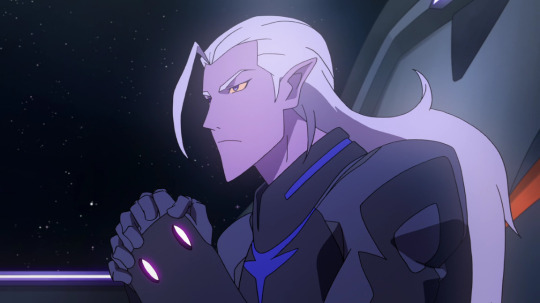
Basically I think there’s a lot more to Lotor’s story, and we may find that everything is different than what we are lead to believe. If interested, delve into the madness below the cut. (there’s also a tl;dr at the end)
Let’s start at the beginning - Krolia’s mission.
Kolivan: This base was, until recently, run by a Galra commander named Ranveig, who was developing a super weapon of some sort. We’re not sure of the weapon’s specs, but we do know that it is incredibly powerful.
Keith: How did we learn all this?
Kolivan: We have a spy in Ranveig’s camp who’s managed to acquire high-level security clearance. Since Ranveig’s departure, it’s possible she assumed control of the base, but we can’t be sure.
Keith: Why not?
Kolivan: We’re not the only ones who know of the weapon. Two Galra factions, led by Commanders Trugg and Ladnok, are at war over the territory. Since their fighting began, all communication has been cut off. We need you to infiltrate the base, extract our spy, and destroy Ranveig’s weapon.
Krolia explains further:
Keith: What is the weapon exactly?
Krolia: Warlord Ranveig intercepted an undocumented shipment of quintessence traveling through his territory. He took it for his own and began experimenting with it. It’s more powerful than any quintessence we’ve received from the empire, and it has some very unexpected effects.
Krolia: We’re going after the enriched quintessence that created Ranveig’s super weapon. I was with Ranveig when an unmarked cargo ship passed into his region. When we checked it out there was no crew aboard. The ship had been nearly torn to pieces, but inside, a single vat of quintessence remained. It was unlike any other quintessence we’ve seen.
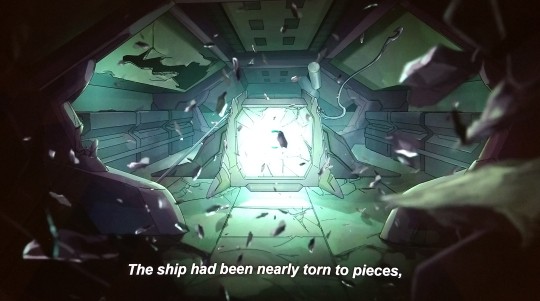
I’m guessing this was a ship of Alteans who were trying to escape or one of Lotor’s crews that helped with the Altean project (there were other Galra present, at least in Romelle’s recount). I believe the void tore the ship apart, and probably destroyed whoever was on board due to the stretching of space time. This ship could have been from thousands of years ago, or just from a week ago when Krolia discovered it. It’s impossible to tell.
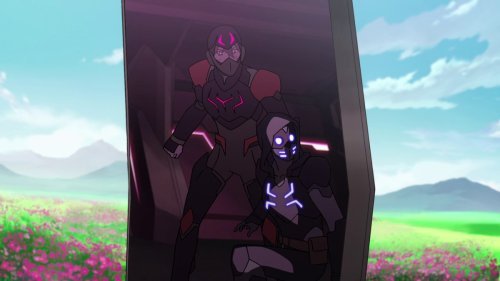
The Altean colony is sketch from the get-go. It’s a synthetic environment (terribly similar looking to Allura’s simulation room where she would speak with her father - who was not real, it was a projection of his memories) within a dusty, abandoned-looking station. If Lotor came to this colony frequently, wouldn’t the station be in better shape? Wouldn’t he have some Galra soldiers stationed there? In Romelle’s flashbacks it shows other Galra assisting Lotor in moving Alteans to the other colony, so we know he didn’t work alone.
Keith also immediately says “What is this place??” When they first enter.
They walk for a little ways (or maybe a good distance? It’s hard to tell) when Keith stops and says he hears something, and it’s Romelle humming. A convenient way to draw them towards her since she wasn’t sitting right next to the door.
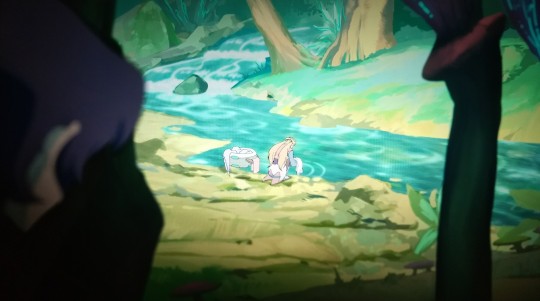
The first we see of Romelle she’s cleaning clothes in the river - something that seems very routine and normal in a real environment. But if this is a synthetic environment like it appears to be, Romelle being there is a major red herring. The ONE Altean who doubted Lotor and the ONE Altean who knew the truth (part of the truth?) happened to be the ONE and ONLY Altean that Keith and Krolia see?
Either the writers wanted to get to the point and keep the story concise, or Romelle is a conveniently placed trap.
Also convenient that NO ONE was around the hangar where they took the Altean pod? And again, no one was on the moon colony either. Keith and Krolia make moves to stealthily enter as if they’re expecting guards or alarms or something, but it seems abandoned.
Lance: Once they reach the quintessence field, then what? The last time anyone got in there, it turned Zarkon evil.
Shiro: Zarkon fell prey to his own evil instincts. The quintesence field didn’t create them, it revealed them.
This is important to remember that the first time Lotor went into the quintessence field he didn’t turn evil. He seemed like the normal Lotor we know both when he was in the field and when he returned with Allura. Lotor didn’t snap until his second time in the quintessence field AFTER everyone called him a monster and wouldn’t even pause for one second to hear his side of the story.
In fact, Allura even mentions how quintessence can’t fall into the wrong hands for evil intentions, and Lotor agrees with her.

Lotor: Readings are beyond anything I could’ve imagined. What we do here today will change the course of the universe forever.
Allura: In the hands of the wrong person, this power could easily corrupt.
Lotor: Together, we’ll see that it never does, and continue the work your father started so long ago.
If the quintessence field is supposed to reveal one’s evil intentions, all it did was reveal Lotor’s good intentions. He also brings this back to Altean Alchemy (mentioning Alfor), which I’ll talk about in a bit.
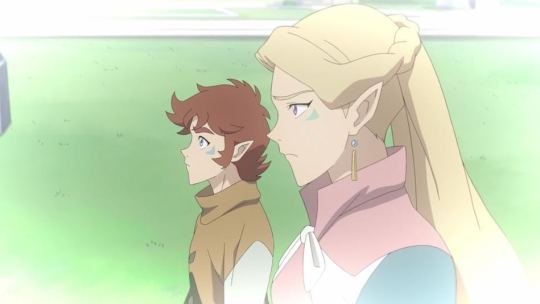
Let’s hear Romelle’s side of the story:
I come from a planet where there are thousands of Alteans. We have lived there since the war with Zarkon began. ... Every Altean child knows the story of how Lotor saved us from destruction. When Zarkon attacked, many were off-planet on trading expeditions. When news spread about the destruction of our home, those of us who remained went into hiding for deca-phoebs. But Lotor, with his deep knowledge of Altean culture, managed to track some of them down. ... To keep the Alteans secure, Lotor hid them on a remote planet beyond the quantum abyss. ... And over time, the Alteans came to worship Lotor as their savior. Generations ago, in an effort to increase our odds of survival, Lotor announced that he was creating another colony far from our own. But in order to do so, he needed to assess which Alteans were viable candidates to survive the journey. One by one, every Altean in the colony was given a series of tests. Those who were deemed fit for the journey were loaded onto a cargo ship and taken to the second colony. It was considered the highest honor. Any communication between the colonies was strictly prohibited for fear it would compromise the other’s location. This was the world I was born into, one of unquestioning devotion to a supposed messiah. My brother Bandor was always faithful, but I had questions. ... Eventually, Bandor grew old enough to be assessed for the journey to the other colony, and he was selected to leave mmediately. ... My brother was dead. I knew the truth, or at least part of it. But I also knew that no one would believe me without proof.

Let’s hear Bandor’s side of the story:
Bandor: Romelle, you were right. Lotor... the other colony... it’s all a lie...
The only thing we can rule out for Bandor’s statement is that the Alteans on the second colony weren’t there/doing things as Lotor explained. What exactly happened with the colony is still a mystery.
Let’s hear Lotor’s side of the story:
Romelle: Lotor is a monster and has been harvesting Altean quintessence for generations!
Allura: An Altean!
Romelle: [Lotor] killed my brother and thousands of others!
Pidge: Lotor has been lying to us the whole time. He’s a murderer, just like his father!
Lotor: You know nothing about what you speak.
Allura: What are they talking about?
Lotor: Allura, listen to me. I’ve dedicated my life to preserving Altean culture. Now that we have unlocked the quintessence field, all of your people, who would have been hunted down long ago had it not been for my intervention, can live in peace. Were some lives lost in the process? Yes. But they were martyrs to a noble cause. I sacrificed a few to preserve the future for millions. Allura, do not let this ruin everything we’ve worked for. Think of what we experienced in the quintessence field.
Lotor doesn’t deny Romelle’s accusations. He admits that lives were lost, but he emphasizes that it was for preserving Altean culture, and preserving the future for millions. It’s also interesting that he says “I sacrificed a few” as opposed to “a few Alteans died” as a result of failed experimentation or whatever. I think if you were trying to preserve a species and ran tests on them and a few died from random variables, I don’t think you would use the word sacrifice.
When Lotor first sees Romelle, it’s a strange look:
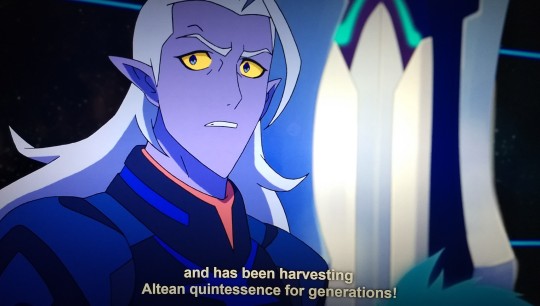
He looks more confused than he does shocked. Even a tad fearful. Keith and Krolia didn’t see any other Alteans besides Romelle. The place where they found her looked abandoned, the inside world looked like a simulation. There might not be any living Alteans left, only the ones left in the cryo-tubes that started to resemble Honerva. If this is the case, Lotor would be wondering who the heck Romelle is supposed to be.
Apparently in the 80s version, Haggar disguised herself as Romelle:
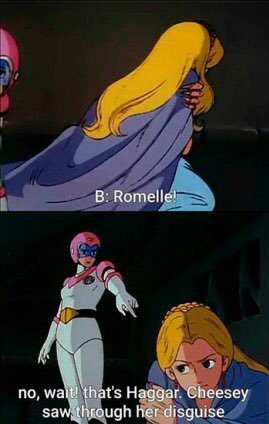
And Romelle may not be like Kuron, a puppet so to speak. She could simply be an Altean from this colony as she so claims, but Haggar could have given her false memories the way she did with clone Shiro. Or she might have been preserved via cryotube from back when there WERE Alteans living in the colony, and was just woken up now that the only Alteans left are the ones on the moon in their weakened near-dead state. She could be telling the complete truth as she knows it, but from what we’ve seen I would say there are no Alteans living at the colony. (I’ll address this more further down)
Also interesting that IMMEDIATELY after Romelle confronts Lotor, there is an alert that his generals (who are now working for Haggar) are attacking and then Shiro gets taken over by none other than Haggar.
Again, either the writers wanted to keep the story concise, or somehow Romelle was used to time the attack perfectly.
Honerva: You’ve continued the work I started all that time ago and have indeed seen it to heights I could have only imagined.
Is she referring to his search for knowledge on quintessence, or did she have something to do with the Altean colony as well? This statement is so vague that it opens many possibilities regarding Honerva’s involvement. The conversation that continues is also interesting:
Lotor: My mother ceased to exist when Honerva drew her last breath. Do not believe for a moment that I would ever accept you as kin. You are an abomination. A twisted perversion of what was once so pure and beautiful. The end is near, witch. I know you can sense it. If you beg for your life now, maybe I will take pity on you when the time comes.

Is Lotor being poetic, or did Honerva actually die? What if she was in the same ill-state as Bandor and all the other Alteans and died, and became the “witch” as she is called - and Lotor started or picked up the project of the Altean colony as a way to figure out why Honerva became the way she is? Maybe even as a way to figure out how to return her back to being Altean?
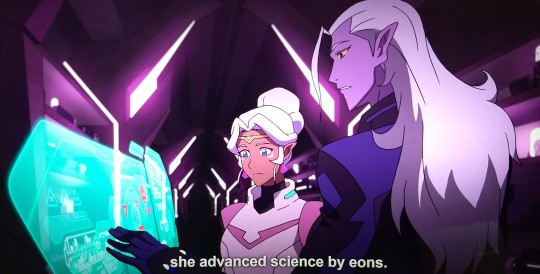
Allura: Then you’re... half Altean?
Lotor: Yes. It was something the Galra considered a weakness, but I consider it a strength. The union between Zarkon and Honerva sparked a technological revolution within the empire. Even back then, Altean culture was remarkably advanced. The kinds of experiments she was conducting she advanced science by eons.
Allura: How did Haggar get her hands on this?
Lotor: She was constantly seeking Altean magical knowledge that she could pervert for her own power. There must have been things that she was unable to access.
I think it’s safe to say that it’s possible Honerva started the Altean colony. Perhaps Lotor was trying to right her wrongs. Allura even asks how she got her hands on scientific knowledge, and I think it may be more than simply she was once Altean 10k years ago. She probably learned more from the Altean colony.
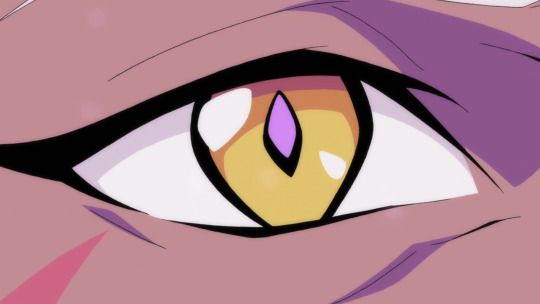
I think the Altean colony somehow ties back to Honerva, in one shape or another. Whether she started it or Lotor started it because of what happened to her. I think we’re going to learn more about her and how she ties into all of this, since they focused greatly on her trip to Oriande and how she’s reverting back to her Altean form (I don’t think they would have focused on this unless it was important - course it could just be symbolic that Honerva is gaining more power).
I think this all ties back to Altean Alchemy.

Lotor: I know you have the power within.
Allura: What if I don’t? ... Coran doesn’t have it, Honerva didn’t have it... The truth is, I may not have his abilities either.
Lotor: You must. There must be a way to carry on the tradition of Altean alchemy.
Allura: That tradition died along with my planet 10,000 years ago. I’ll never be the alchemist my father was.
Why is Lotor so desperate to have Altean Alchemy? I think it ties into the Altean colony, whether he needs the alchemy to save the Alteans or if he needs the alchemy to further his goal, whatever it may be. At the moment it seems Allura is the only hope for there being Altean Alchemy.
Back to the quintessence Krolia discovered.
What if the quintessence Krolia describes as “more powerful than any quintessence we’ve received from the empire [with] some very unexpected effects” is somehow a form of Altean Alchemy? Sounds kind of like Voltron when Alfor created it - Voltron was more powerful than anything in the universe, and it had the unexpected side effects of the Lions each having their own life force of sorts.
What if Lotor figured out how to turn Altean Alchemy into pure quintessence?
He picked out Alteans on the colony based on “certain requirements” - I’m betting it was based on whether the individual had the potential for alchemy. As we’ve seen with Allura and Coran, some Alteans have it while others don’t. Whatever Lotor did with the second colony is still uncertain, but whatever it involved it caused them to have this “Altean sickness” (what I shall call the near-dead state with the elongated markings). I think all the Alteans on the moon colony are still alive, however, merely being preserved.

Romelle is a victim.
I suspect that she doesn’t have the whole story but everything she knows - albeit limited - is truth. I think Honerva is using her to further her agenda. Honerva could have even sought Romelle out, seeing that she had doubts about Lotor and thus would be the perfect one to turn Voltron against Lotor.
I’m speculating that Romelle is the last living Altean from the colony (without the Altean sickness) and that she either:
Was kept in cryosleep and recently woken and placed in the colony for Keith and Krolia to find (Honerva could have tabs on Krolia because she was technically working in the empire).
Is a clone of the original Romelle.
Knowing that Honerva was the one who started project Kuron in the first place, it’s not too much of a stretch to say she cloned Romelle as well.

Considering this was a thing that Voltron deleted shortly after, it may be a hint towards this theory. The binary translated to “Kuron.” Some speculated that this might mean that clone Shiro might come back, or that Lotor might even be cloned (apparently he was in the original), but I think it might relate to Romelle.
TL;DR
In summation, I think that:
The Altean colony is dead (possibly has been for many years now), save for the ones preserved on the moon colony.
There is more to Lotor’s story.
Honerva is tied to all of this.
The quintessence has something to do with Altean alchemy, and both have ties to both Lotor and Honerva’s goals.
Romelle is not a spy, but a victim of Honerva (and possibly a clone).
#voltron#vld#voltron meta#voltron theory#vld meta#vld theory#voltron s7 predictions#vld s7 predictions#my meta#lotor#romelle#alteans#altean colony#quintessence
165 notes
·
View notes
Text
Chosen Children ZOdiac
Here is my own headcanons about the Chosen Children and the Zodiac signs they are. I know most people like to put one zodiac sign per kid. But I just couldn’t do that.
Taichi - Aries -
Strengths: Courageous, determined, confident, enthusiastic, optimistic, honest, passionate
Weaknesses: Impatient, moody, short-tempered, impulsive, aggressive
Aries likes: Comfortable clothes, taking on leadership roles, physical challenges, individual sports
“ Aries rules the head and leads with the head, often literally walking head first, leaning forwards for speed and focus. Its representatives are naturally brave and rarely afraid of trial and risk. They possess youthful strength and energy, regardless of their age and quickly perform any given tasks. “
Taichi was shown a lot in Adventuer to be reckless and go head first into things without a second thought. Like when Sora is kidnapped by Nanomon, only then does that start his journey to think things through. But he still has the determination to finish things. Like in the latest movie, Symbiosis, he came to the decision to save Meicoomon, eveen if that meant killing her. Because he trusted Meiko’s word. Despite protest from Yamato, he was driven to accomplish that.
Yamato - Scorpio
Strengths: Resourceful, brave, passionate, stubborn, a true friend
Weaknesses: Distrusting, jealous, secretive, violent
Scorpio likes: Truth, facts, being right, longtime friends, teasing, a grand passion
Scorpio dislikes: Dishonesty, revealing secrets, passive people
“ Scorpio-born are passionate and assertive people. They are determined and decisive, and will research until they find out the truth. Scorpio is a great leader, always aware of the situation and also features prominently in resourcefulness. “
Taichi and Yamato commonly butt heads because they are so passionate in their beliefs. Yamato always tried to be rational and more realistic, while Taichi thought more emotionally what was best for everyone.
Yamato was shown to get so jealous of Taichi that it caused a rift between the team later in Adventure. Yet, it was what brought them together. Yamato still looks to take care of everyone when Taichi ‘dies’ in the end of Symbiosis. He is very much leader #2 in the group.
Sora - Cancer
Strengths: Tenacious, highly imaginative, loyal, emotional, sympathetic, persuasive
Weaknesses: Moody, pessimistic, suspicious, manipulative, insecure
Cancer likes: Art, home-based hobbies, relaxing near or in water, helping loved ones, a good meal with friends
Cancer dislikes: Strangers, any criticism of Mom, revealing of personal life” As children, they don't have enough coping and defensive mechanisms for the outer world, and have to be approached with care and understanding, for that is what they give in return.
“ As children, they don't have enough coping and defensive mechanisms for the outer world, and have to be approached with care and understanding, for that is what they give in return. “
Sora is a hard person to read. She keeps all of her feelings to herself and it eventually consumes her, via the dark cave. As she grew to understand her Mom and Piyomon, she was able to help others in return. Even in tri. she is seen helping others get through their hard moments (Meiko and Mimi) and making sure everyone is happy, making food for everyone in the Digital world. Also calling everyone in Confession to make sure everyone is taking care of themselves.
Mimi - Aquarius
Strengths: Progressive, original, independent, humanitarian
Weaknesses: Runs from emotional expression, temperamental, uncompromising, aloof
Aquarius likes: Fun with friends, helping others, fighting for causes, intellectual conversation, a good listener
Aquarius dislikes: Limitations, broken promises, being lonely, dull or boring situations, people who disagree with them
“ The biggest problem for Aquarius-born is the feeling that they are limited or constrained. Because of the desire for freedom and equality for all, they will always strive to ensure freedom of speech and movement. Aquarius-born have a reputation for being cold and insensitive persons, but this is just their defence mechanism against premature intimacy. They need to learn to trust others and express their emotions in a healthy way. “
In Adventure, Mimi hated having to fight, watching comrades die one after another. She even needed to leave the group to clear her head. But in the end she found her will to fight and even brought an army with her to help fight the Dark Masters.
In tri. she is much more carefree and expressive. But it comes off as selfish because she’s not taking everyone’s thoughts into consideration. Feeling like she was being constrained bothered her to the point she wasn’t motivated to do the cafe anymore and didn't want to trust her instincts to fight to get Meicoomon back.
After realizing it’s ok to be a little loud, she continues to wow the group with her food creations. and wild bikini party ideas
Koushirou - Virgo
Strengths: Loyal, analytical, kind, hardworking, practical
Weaknesses: Shyness, worry, overly critical of self and others, all work and no play
Virgo likes: Animals, healthy food, books, nature, cleanliness
Virgo dislikes: Rudeness, asking for help, taking center stage
“ Virgos are always paying attention to the smallest details and their deep sense of humanity makes them one of the most careful signs of the zodiac. Their methodical approach to life ensures that nothing is left to chance, and although they are often tender, their heart might be closed for the outer world. This is a sign often misunderstood, not because they lack the ability to express, but because they won’t accept their feelings as valid, true, or even relevant when opposed to reason. The symbolism behind the name speaks well of their nature, born with a feeling they are experiencing everything for the first time. “
Koushirou has always been lost in his own thoughts, continuing to ramble on even if no one was listening. He takes pride in being able to find the answer to any solution. But loses face when he couldn’t find one.
He is also very loyal to his friends, even putting himself below them. He calls everyone with “-san” even if they are younger than him. He has grown out of this and learn to even see people’s emotions and react to them more. But in tri., it was evident he struggled with giving himself some credit.
Jou - Taurus
Strengths: Reliable, patient, practical, devoted, responsible, stable
Weaknesses: Stubborn, possessive, uncompromising
Taurus likes: Gardening, cooking, music, romance, high quality clothes, working with hands
“ Practical and well-grounded, Taurus is the sign that harvests the fruits of labor. They feel the need to always be surrounded by love and beauty, turned to the material world, hedonism, and physical pleasures. People born with their Sun in Taurus are sensual and tactile, considering touch and taste the most important of all senses. Stable and conservative, this is one of the most reliable signs of the zodiac, ready to endure and stick to their choices until they reach the point of personal satisfaction. “
Good ol’ Reliable Jou. He is the papa to the group like Sora is the Mama. Taking people’s health and safety into consideration, and even more so when he’s the oldest and must take responsibility.
In tri. especially, he struggled to not see things from a realistic stance. Why couldn’t the other Chosen take care of the Digimon? Why did it have to be them again, when it was time ot be an adult? Jou learned to not be so strict with materialistic views.
Takeru - Strengths: Generous, idealistic, great sense of humor
Weaknesses: Promises more than can deliver, very impatient, will say anything no matter how undiplomatic
Sagittarius likes: Freedom, travel, philosophy, being outdoors
Sagittarius dislikes: Clingy people, being constrained, off-the-wall theories, details
“Sagittarius is extrovert, optimistic and enthusiastic, and likes changes. Sagittarius-born are able to transform their thoughts into concrete actions and they will do anything to achieve their goals.Like the other fire signs, Sagittarius needs to be constantly in touch with the world to experience as much as possible. The ruling planet of Sagittarius is Jupiter, the largest planet of the zodiac. Their enthusiasm has no bounds, and therefore people born under the Sagittarius sign possess a great sense of humor and an intense curiosity.“
Takeru may be young in Adventure, but it didn’t stop him from being maniplutive and playful when he had to. To get away from Puppetmon, it was a great show of his quick thinking and playful behavior. Then in 02 he disliked Daisuke’s ideas that they couldn’t possibly hurt MetalGreymon. Takeru understood there was no other way.
In tri. his sense of humor and teasing is showcased. He always says inappropriate things at inappropriate times. It’s to change the subject, but let’s be honest, he’s a little shit. Even so, he is still to help and give a hand. Still trying to protect Hikari all these years.
Hikari - Pisces
Strengths: Compassionate, artistic, intuitive, gentle, wise, musical
Weaknesses: Fearful, overly trusting, sad, desire to escape reality, can be a victim or a martyr
Pisces likes: Being alone, sleeping, music, romance, visual media, swimming, spiritual themes
Pisces dislikes: Know-it-all, being criticized, the past coming back to haunt, cruelty of any kind
“Pisces are very friendly, so they often find themselves in a company of very different people. Pisces are selfless, they are always willing to help others, without hoping to get anything back.”
Hikari has always been the one to harbor bad feelings onto herself. Even when it’s not her fault, HIkari always blames herself. Something that Taichi knows of and destroys him knowing he almost killer her once.
Her soft and altruistic is what causes her to be so vulnerable, so much so that it’s taken advantage of in tri. to create a monster and target the real world. Her vulnerability in 02 led her to the Dark Ocean, and her anguish escalated in seeing her brother die, creating a fusion to destroy the real world.
Daisuke - Leo
Strengths: Creative, passionate, generous, warm-hearted, cheerful, humorous
Weaknesses: Arrogant, stubborn, self-centered, lazy, inflexible
Leo likes: Theater, taking holidays, being admired, expensive things, bright colors, fun with friends
Leo dislikes: Being ignored, facing difficult reality, not being treated like a king or queen
“People born under the sign of Leo are natural born leaders. They are dramatic, creative, self-confident, dominant and extremely difficult to resist, able to achieve anything they want to in any area of life they commit to. There is a specific strength to a Leo and their "king of the jungle" status. Leo often has many friends for they are generous and loyal. Self-confident and attractive, this is a Sun sign capable of uniting different groups of people and leading them as one towards a shared cause, and their healthy sense of humor makes collaboration with other people even easier. “
Daisuke strives for Hikari’s heart and Taichi’s admiration. When the group gets beat down, it’s him that picks the pieces up and comes back stronger than before. He knows how to cheer his friends up and cheer them on. He does have his down times, losing face when people ignore him and laugh at him. But it doesn’t take long her him to make a come back.
He learned to be patient with Ken, that trying to force him into the group wouldn’t work. That Ken needed time. There were times that he refused to listen to anyone else, that his way was the only way. His stubbornness has been good and bad. He almost got Vmon killed because he didn’t want to fight an infected MetalGreymon, but on the flip side. He refused to back down against BelialVamdemon, which led to victory in the end.
Miyako - Gemini
Strengths: Gentle, affectionate, curious, adaptable, ability to learn quickly and exchange ideas
Weaknesses: Nervous, inconsistent, indecisive
Gemini likes: Music, books, magazines, chats with nearly anyone, short trips around the town
Gemini dislikes: Being alone, being confined, repetition and routine\
“ Expressive and quick-witted, Gemini represents two different personalities in one and you will never be sure which one you will face. They are sociable, communicative and ready for fun, with a tendency to suddenly get serious, thoughtful and restless. They are fascinated with the world itself, extremely curious, with a constant feeling that there is not enough time to experience everything they want to see. “
Miyako quick witted mind has saved the kids in several situations. The Big House Episode with Arukenimon is a great demonstration of that. She was able to use a big computer to switch the audio around to make the Digimon go back to normal.
But she has had her moments where she got a head of herself and almost got herself killed. She had to learn to slow down a little and think things through. She wasn’t sure how to feel about Ken after he turned good. Or even to beat him when they found out Ken was the Kaiser in the first place. ]
Iori - Capricorn
Strengths: Responsible, disciplined, self-control, good managers
Weaknesses: Know-it-all, unforgiving, condescending, expecting the worst
Capricorn likes: Family, tradition, music, understated status, quality craftsmanship
Capricorn dislikes: Almost everything at some point
“ Capricorn is a sign that represents time and responsibility, and its representatives are traditional and often very serious by nature. These individuals possess an inner state of independence that enables significant progress both in their personal and professional lives. They are masters of self-control and have the ability to lead the way, make solid and realistic plans, and manage many people who work for them at any time. They will learn from their mistakes and get to the top based solely on their experience and expertise. “
Iori was always the serious one even at such a young age. Determined to follow every word that his late Dad taught him and follow his lead. He saw the world as black and white. All good was good and all evil was evil.
But he grew to learn there was a difference. That even though Ken once did so many awful things, he could still be a good person. Or that his dad was friends with Oikawa who was now doing terrible things. It showed him there was a lot of grey in that world of black and white.
Ken - Scorpio
Strengths – Although it can sometimes be hard even for Scorpios to accept this fact, their greatest strength is their sensitivity. While many Scorpios hide from their own emotions, not knowing what to do with their intensity and depth, when they find a way to regenerate and forgive those that hurt them, they become amazing healers, psychologists, partners and friends.
Weaknesses – Once they do get hurt, this pain goes too deep and they have the urge to turn to vengeance, often becoming filled with hate and anger. These emotions can get destructive, to others and themselves, and their true challenge is to accept them as normal and usual, in order to set free and turn to the future instead of staying buried in the past.
Ken was faced with hatred of his brother when people constantly praised Osamu, but never recognized his accomplishments. He soon grew vengeful and wished for his brother to disappear, when it actually happened it affected him greatly, to the point the dark spore and influence from Oikwawa made him into a different person.
After Ken comes to his senses, he is greeted with such grief that he even wants to end his life at one point. The whole second half of the series is him learning to forgive himself and not let his past ruin him.
Meiko - Virgo
Strengths – Virgo is considered the most intelligent sign in the zodiac, as the place where Mercury is exalted. They are in fact truly practical and smart when it comes to everyday issues. Analytical and deep, their greatest strength is their mind at they should use it to resolve matters of life that obviously present to them for a reason. Clean and thorough, a Virgo will make everything that was broken, tainted or spoiled, clean, fixed and working again. This is why they are often found as healers, for some Virgos have a talent to fix broken hearts, souls, egos or bodies.
Weaknesses – the greatest weakness of any Virgo hides in their emotional world. While they rely on their mind to give them all the answers they seek, lack of understanding can lead them to hurtful, irrational experiences that they simply don’t understand. They need to accept their fragility, sensitivity and approach matters of the heart as valid, important and sensible. The other weakness these individuals have to face is lack of awareness of their self-worth, shown through their need to always think less of themselves, as if they cannot do anything that is satisfying enough.
For years Meiko had been hiding shame and resentment of herself under a veil of shyness. She thought she could control Meicoomon, as long she was there, Meicoomon wouldn’t go berserk.
When she realized Meicoomon was the source of the infection that caused her friends so much suffering, she kept blaming herself, even running away. She felt she had no right to be around the DIgimon or her friends.
Even with the reassurance of the others, it was hard to have faith in herself and to think good things about herself. To see what was good in her.
Meiko has shown to use what she learned from everyone else to help in her goals. Reiterating SOra’s words back to her, and having to come to the conclusion that ultimately, her partner would have to die in order to save both worlds. Despite the harshness of the decision, Meiko still very much loves Meicoomon
Daigo - Sagittarius
Strengths – Sagittarius is an adventurer, both physically and mentally. People born in this Sun sign have a broad mind and they are able to change perspective with ease, until they find the right version of words spoken, events or reasons for anything they want to examine. Highly adjustable and with a deep understanding for different people, nations, countries, governments and in general – ways of life, they blend in perfectly with the natives, wherever they are. They need enough space, don’t want to be contained in their home, by their partner or in any other way. Movement will fill up their batteries, energize them and make them confident and strong. Independent, optimistic and sincere, this is a friend you want in your life, especially if you need someone to help you find hope or a purpose to anything that troubles you.
Weakness – The greatest weakness of Sagittarius is their inability to find focus. With such a broad vision, it is not easy to pay too much attention to details, be practical and narrow down their sentences to be understandable and unambiguous. As a consequence of their faith in the goodness of human kind, these individuals will often end up disappointed or challenged, and their faith has to be built up from a point of deep understanding, or they have a tendency to turn into inflexible, grumpy people who had high hopes, once.
Daigo is very laid back and cares deeply for the people around him. So deeply he doesn’t see the big picture and how destructive Maki’s suffering actually was. He tried to be the hope she desperately needed, but couldn’t help her.
As his time as a Chosen Child, he was the leader of the group, and probably was their hope in many desperate situations.
He teaches Calligraphy as his part time job and helps Taichi to find a good career path for him to take.
Maki - Capricorn
Strengths – The greatest strengths of a Capricorn are his ambition, discipline and patience. With their ability to plan ahead and think of all necessary steps in their chase for a certain goal, they are often successful in their career path. Reliable and dedicated, these individuals often have trouble opening up to other people, but become trustworthy and stable in a relationship once they decide to be a part of it. With their endurance and patience, there is hardly anything that seems impossible.
Weaknesses – While they set extremely high goals for themselves, they often do so without the proper basis in their hearts. If they separate from their emotional needs and stay focused mainly on the image they will show to the rest of the world, they easily become unsatisfied, grumpy, and even angry at their circumstances, however successful they might get. The lack of compassion that comes as a product of their own, personal lack of satisfaction, leads to them becoming cold, distant and detached from others, while selfishly pursuing their goals with no regard to other people along the way. Their direction needs to be founded in their true personality, creativity and their hearts, in order for the rest of their life to have true quality.
Maki had plans of a reboot since University years and saw an opportunity to turn her plan into action with Meicoomon and eventually “Gennai’s” help. She carefully thought of the plans and actions in hand in order for the plan to work.
But one thing she didn’t foresee was what the reboot could mean other than reviving perma dead Digimon. Bakumon not remembering her then running away caused her to snap. The circumstances caused her to have an emotional break and end up in the Dark Ocean, begging for Bakumon to come back to her.
#digimon#taichi yagami#yamato ishida#sora takenouchi#mimi tachikawa#koushiro izumi#jou kido#ken ichijouji#daisuke motomiya#iori hida#takeru takaishi#hikari yagami#miyako inoue#meiko mochizuki#maki himekawa#daigo nishijima#zodiac#astrology#astronomy#headcanons
70 notes
·
View notes